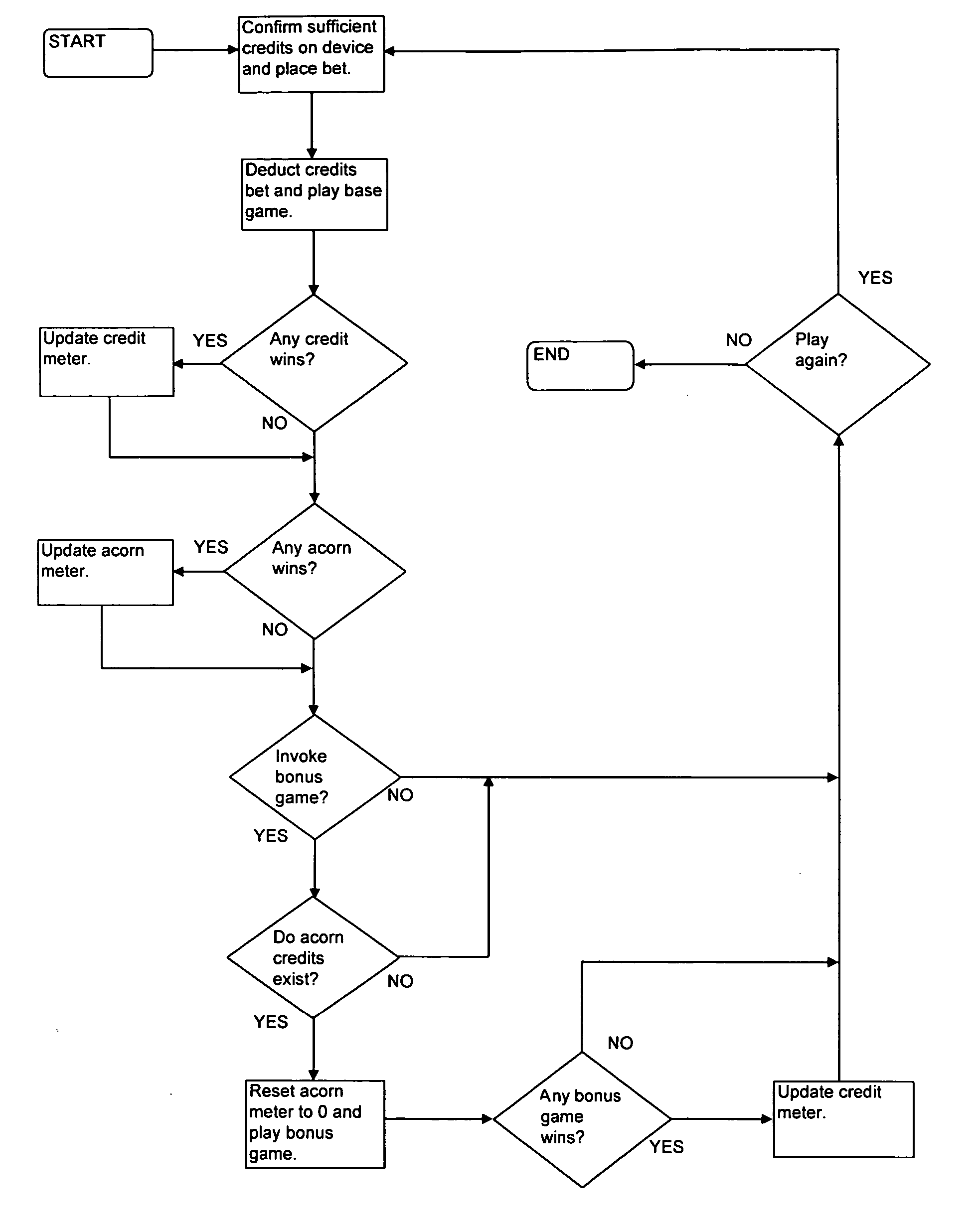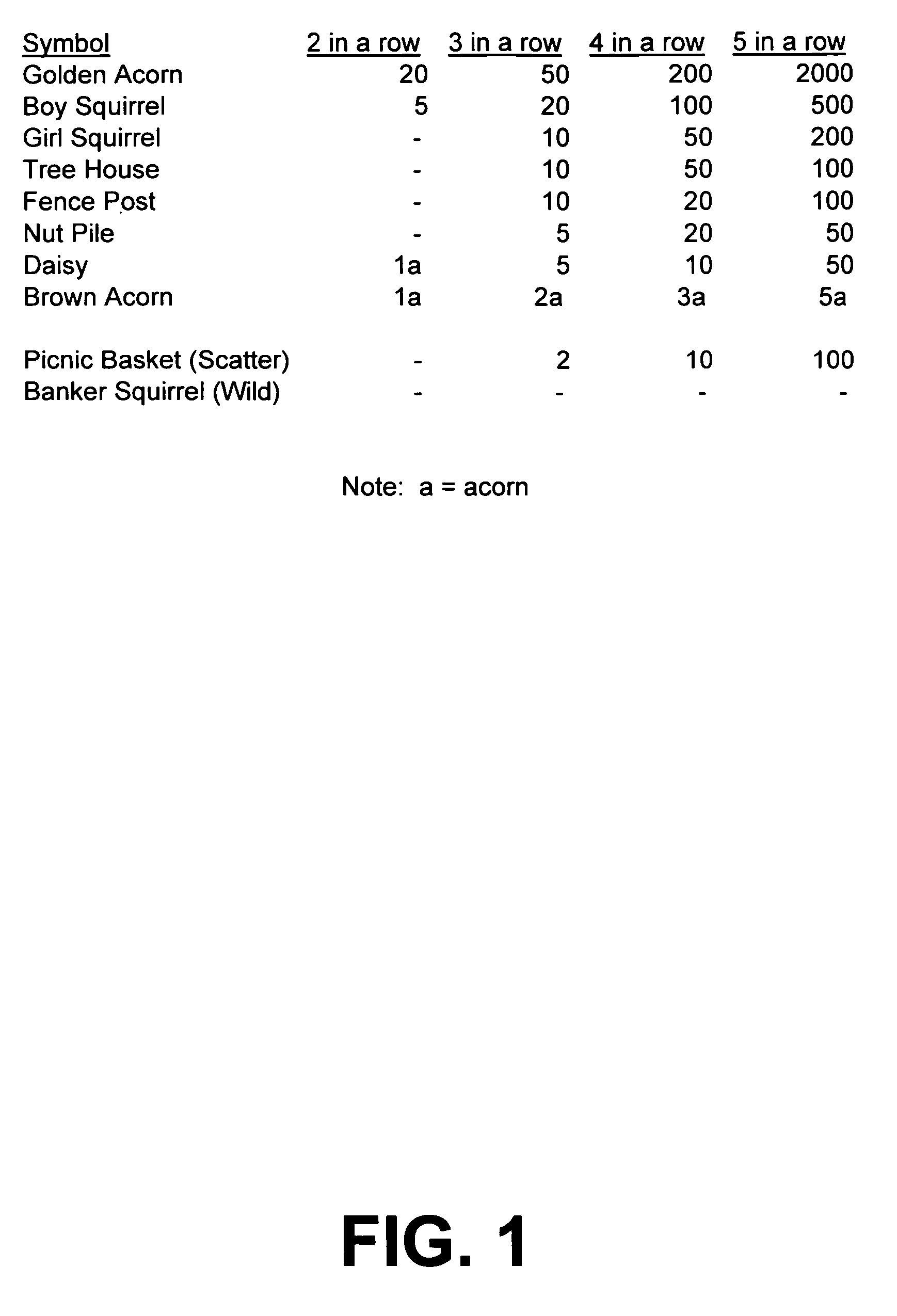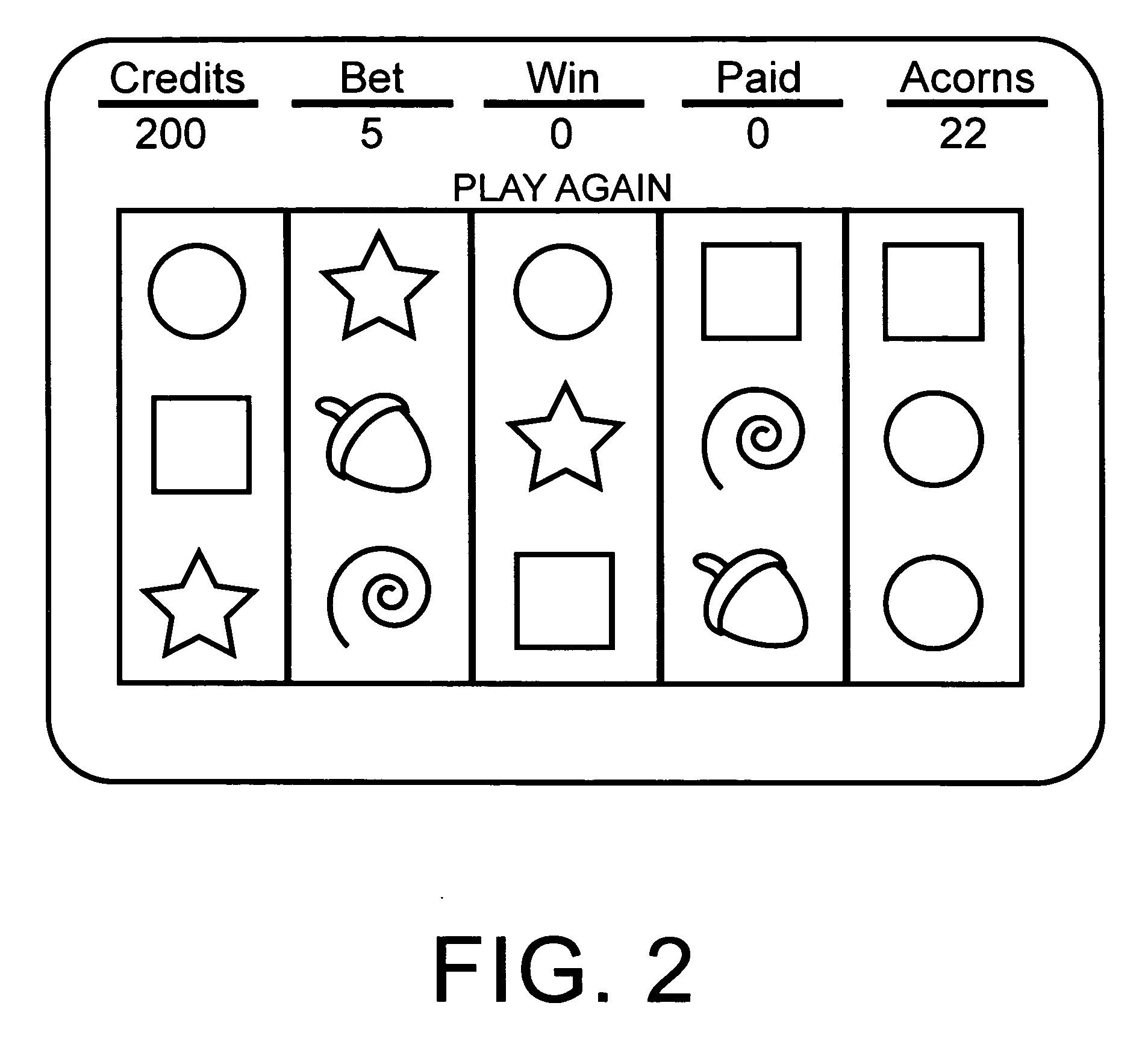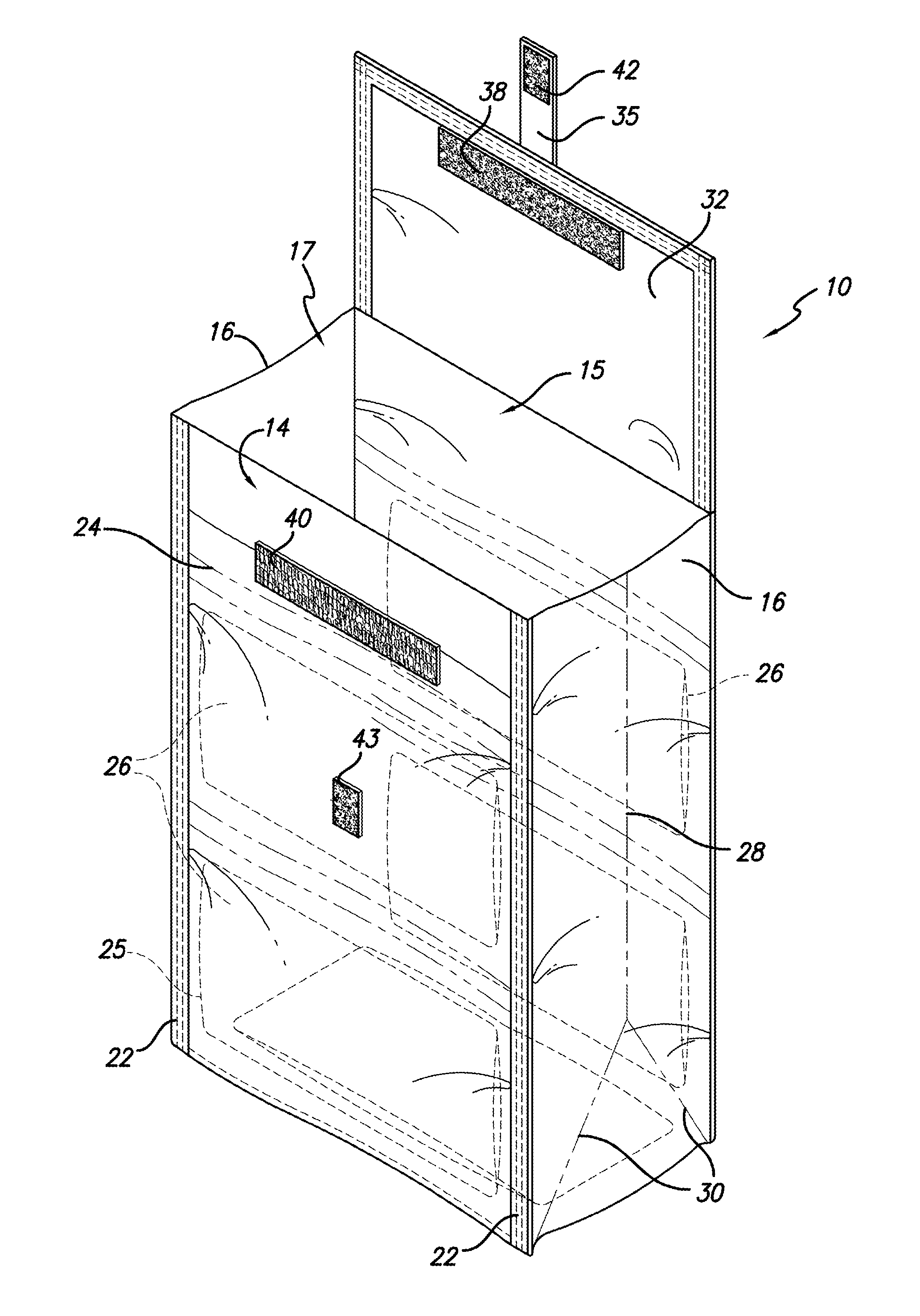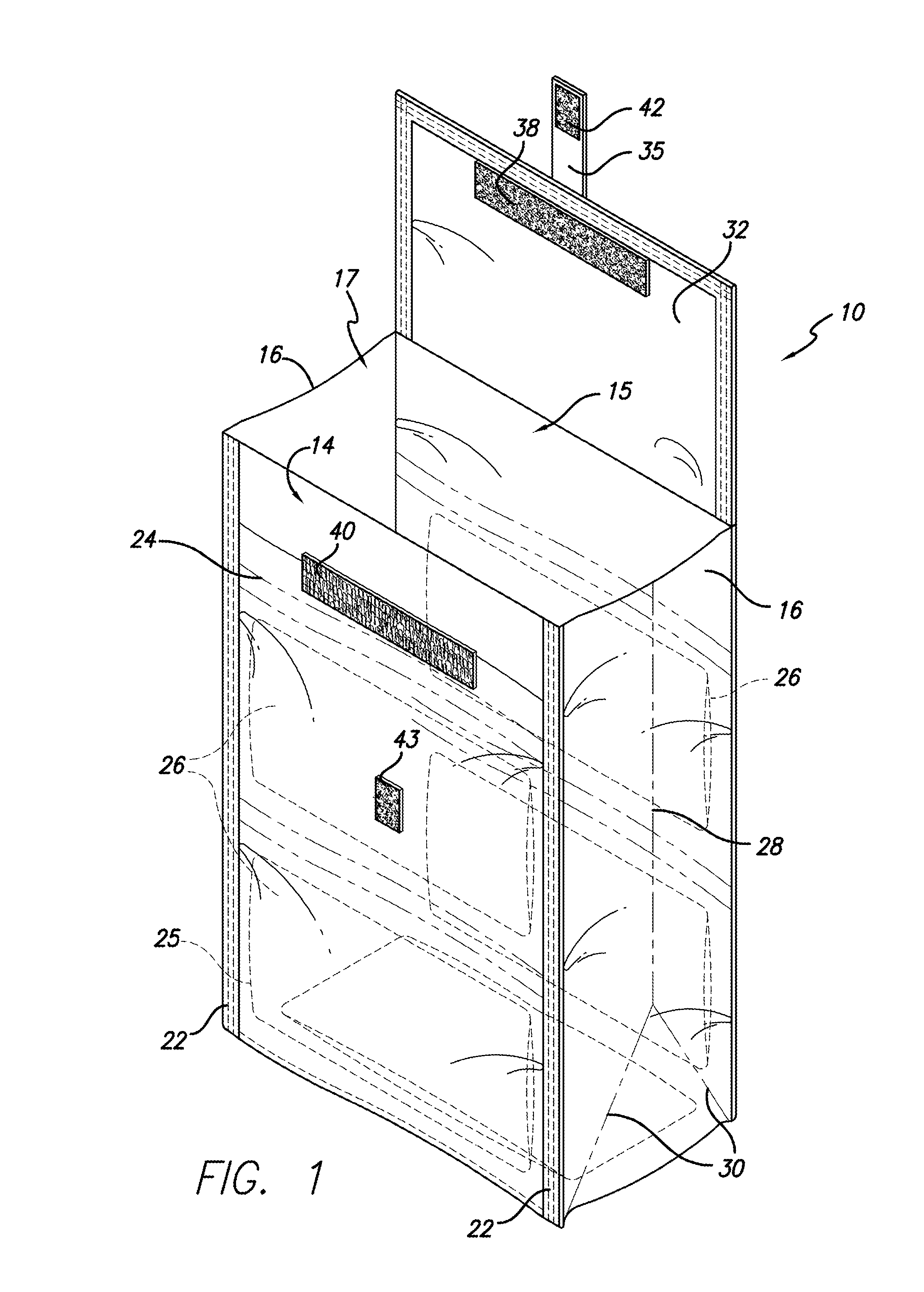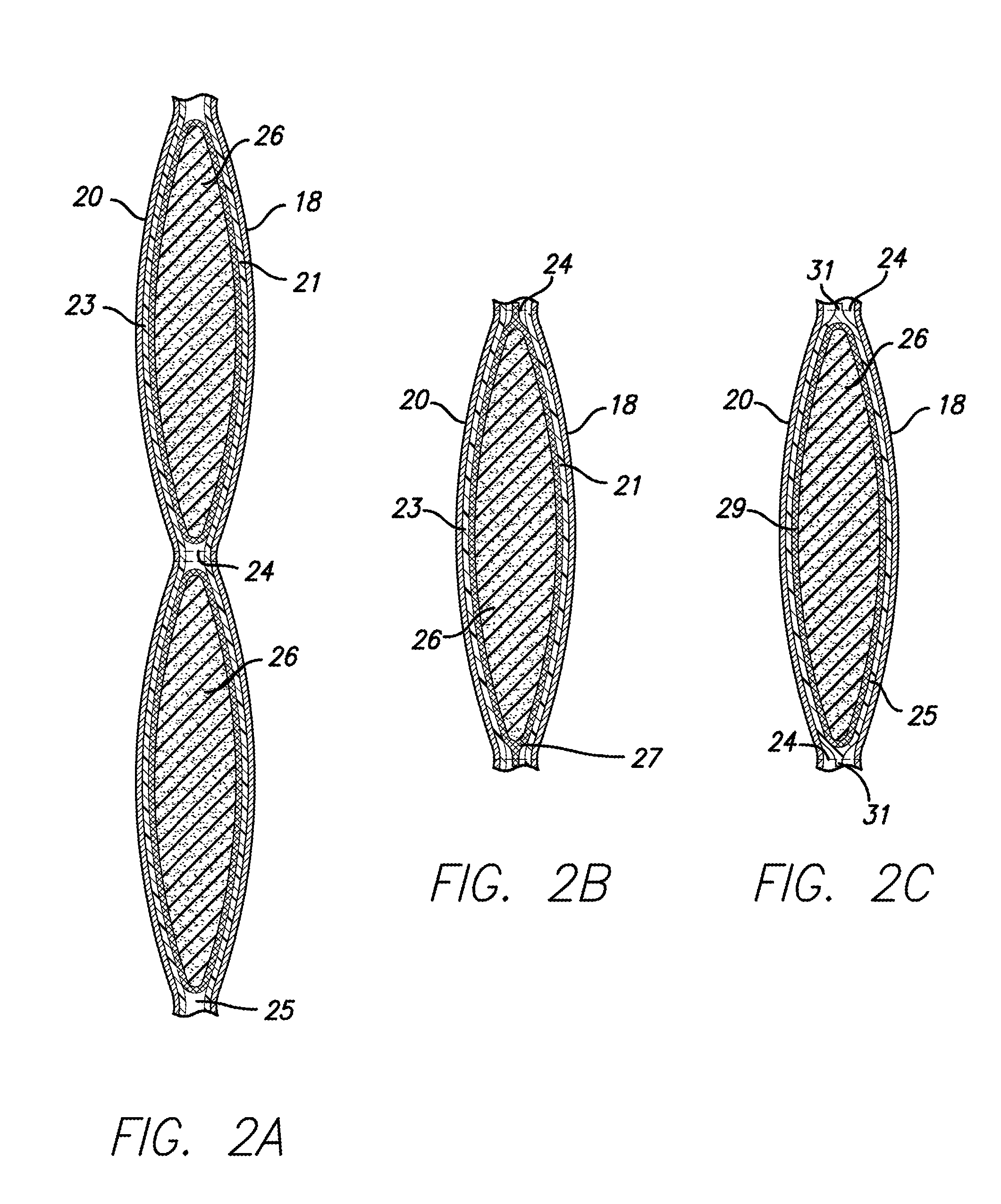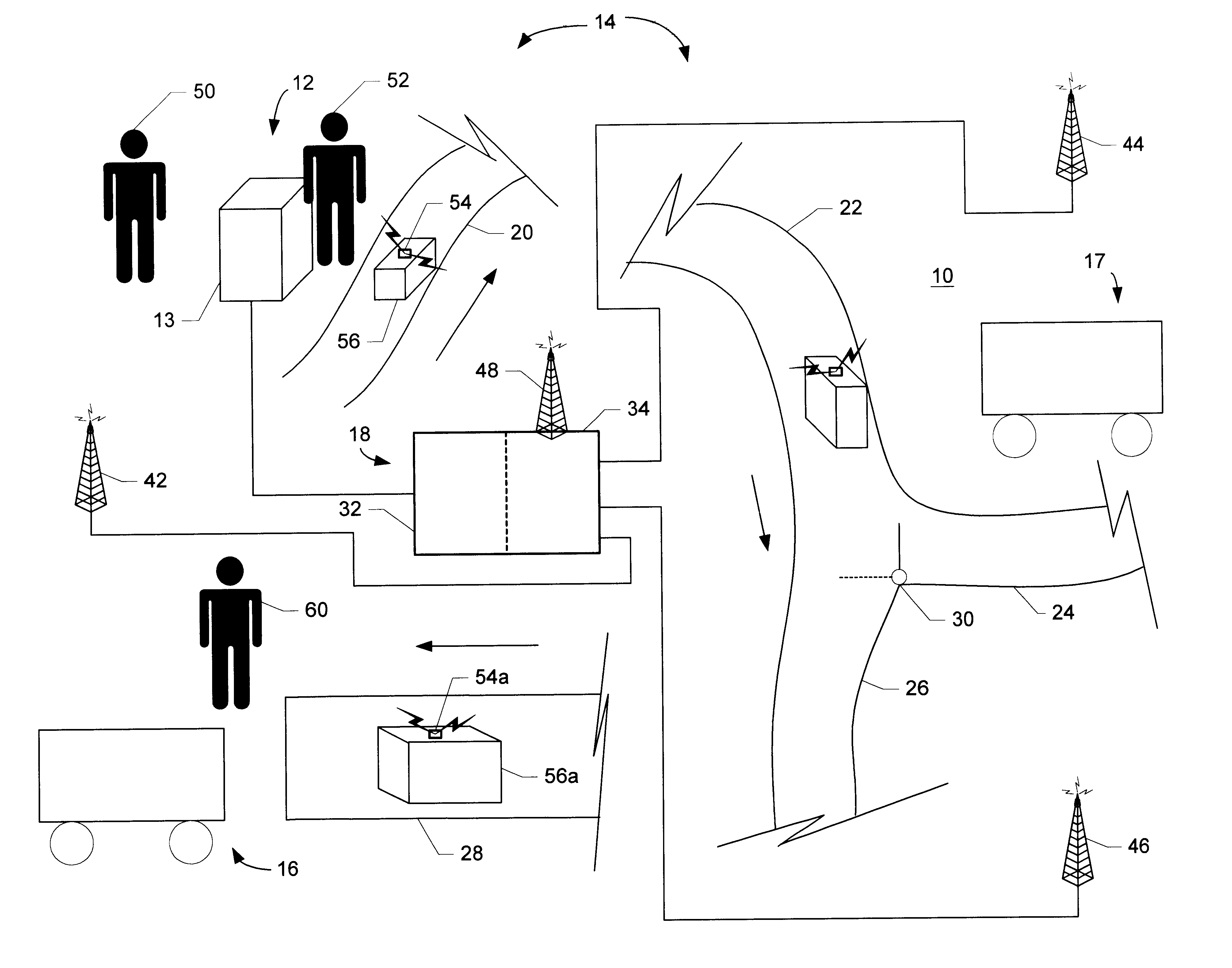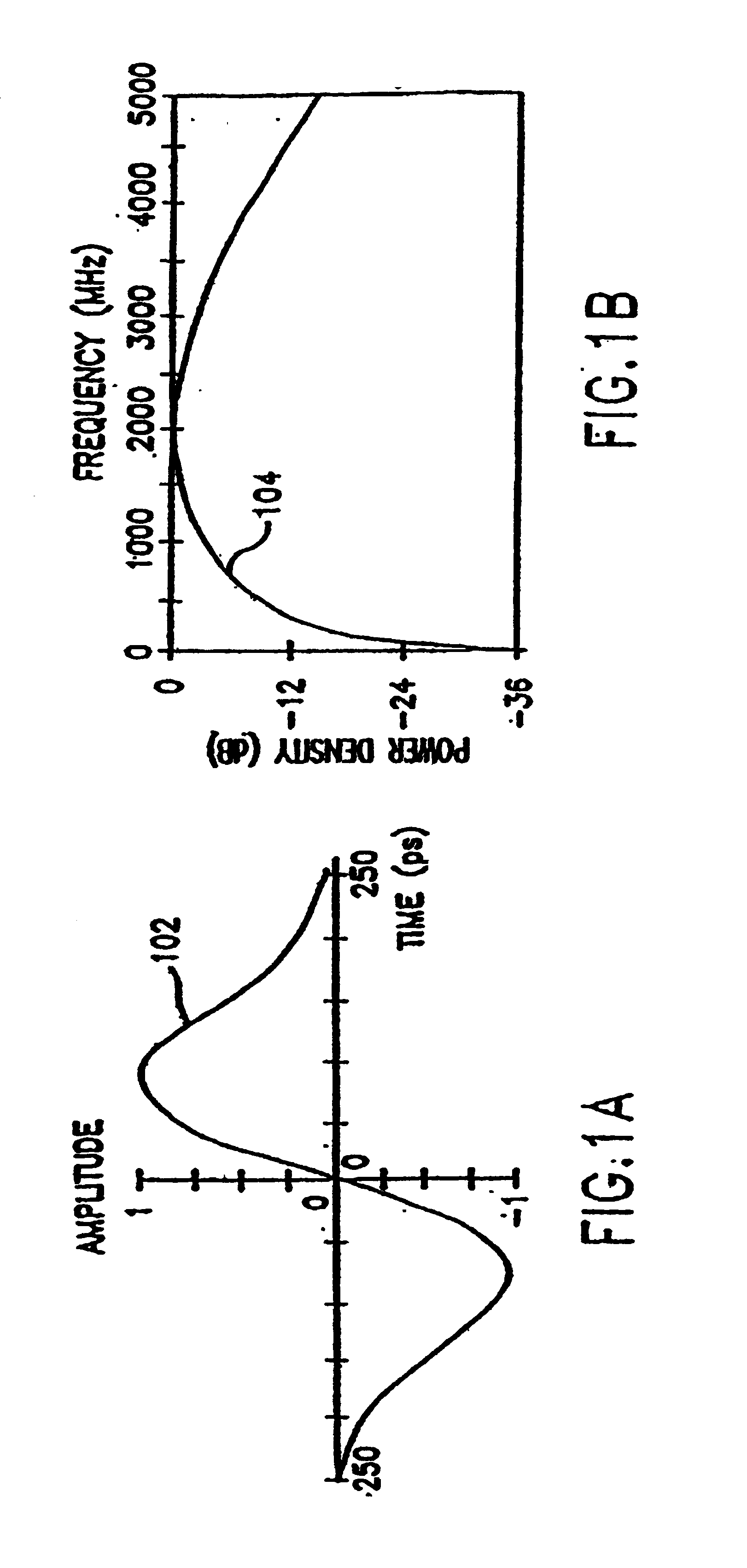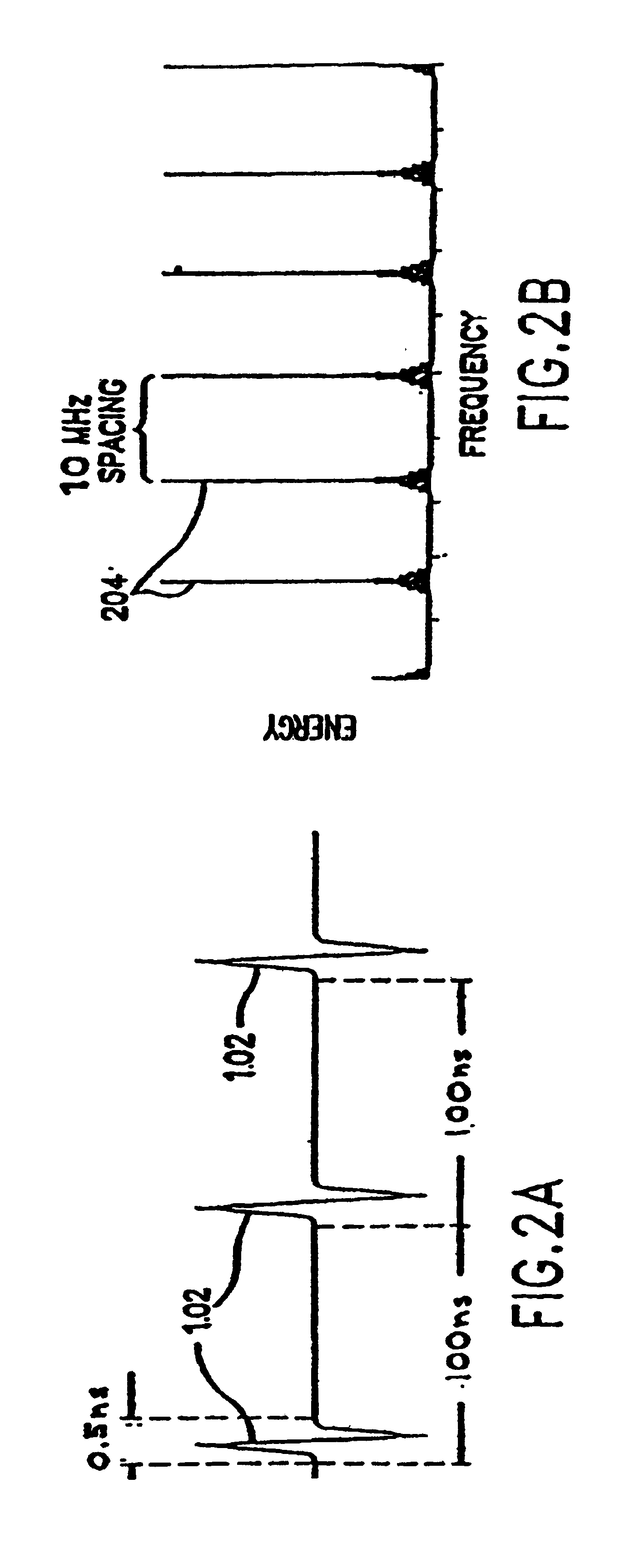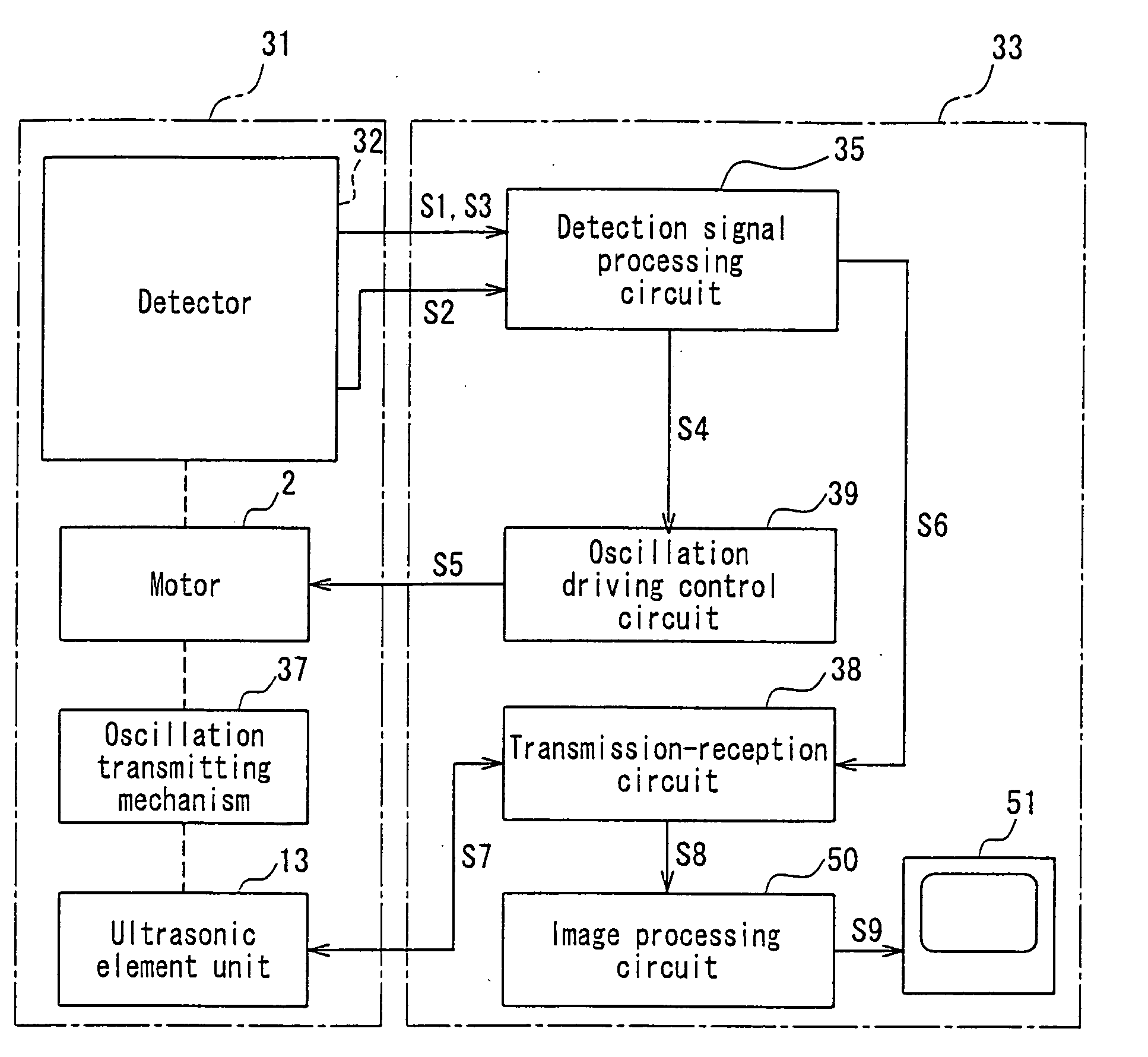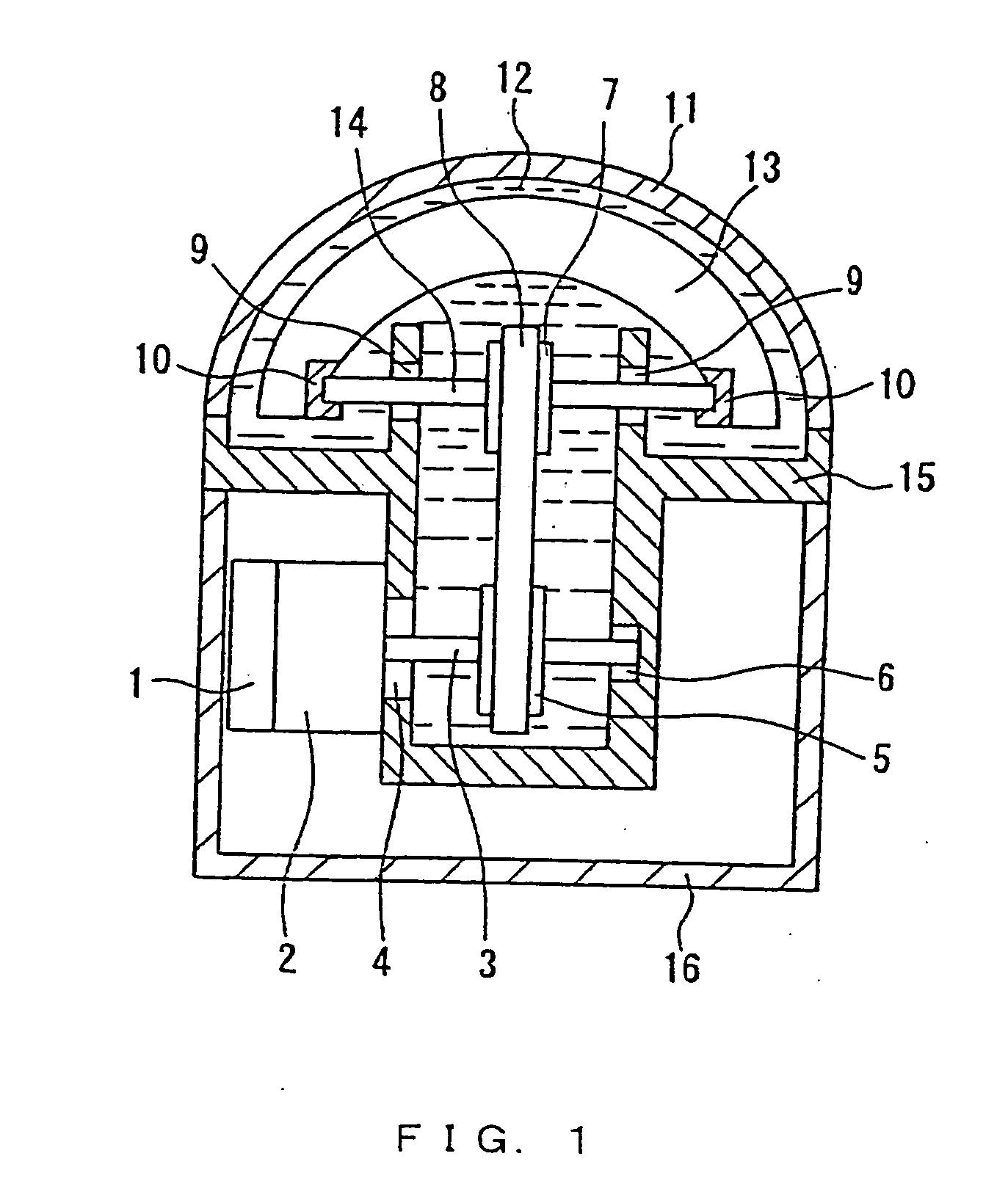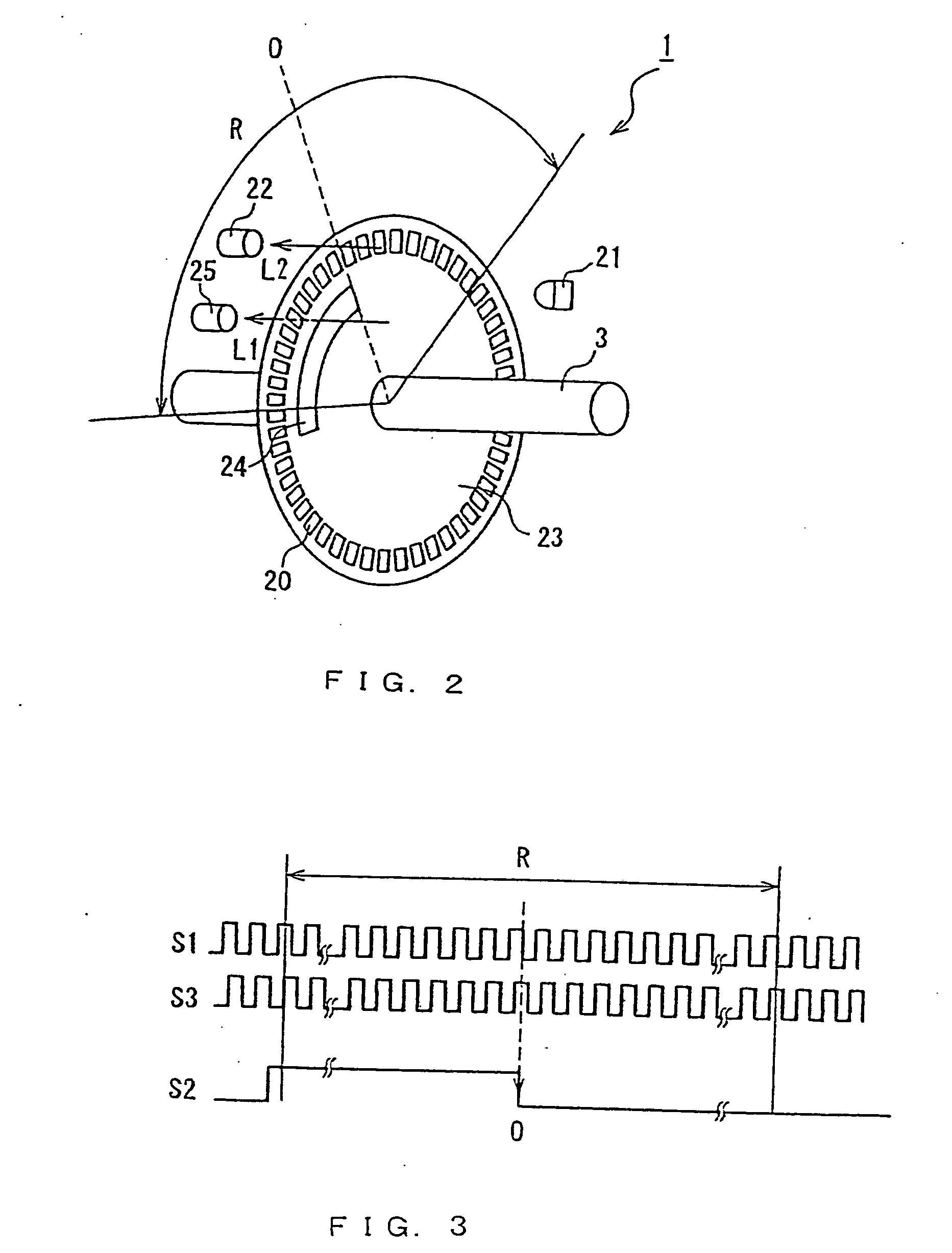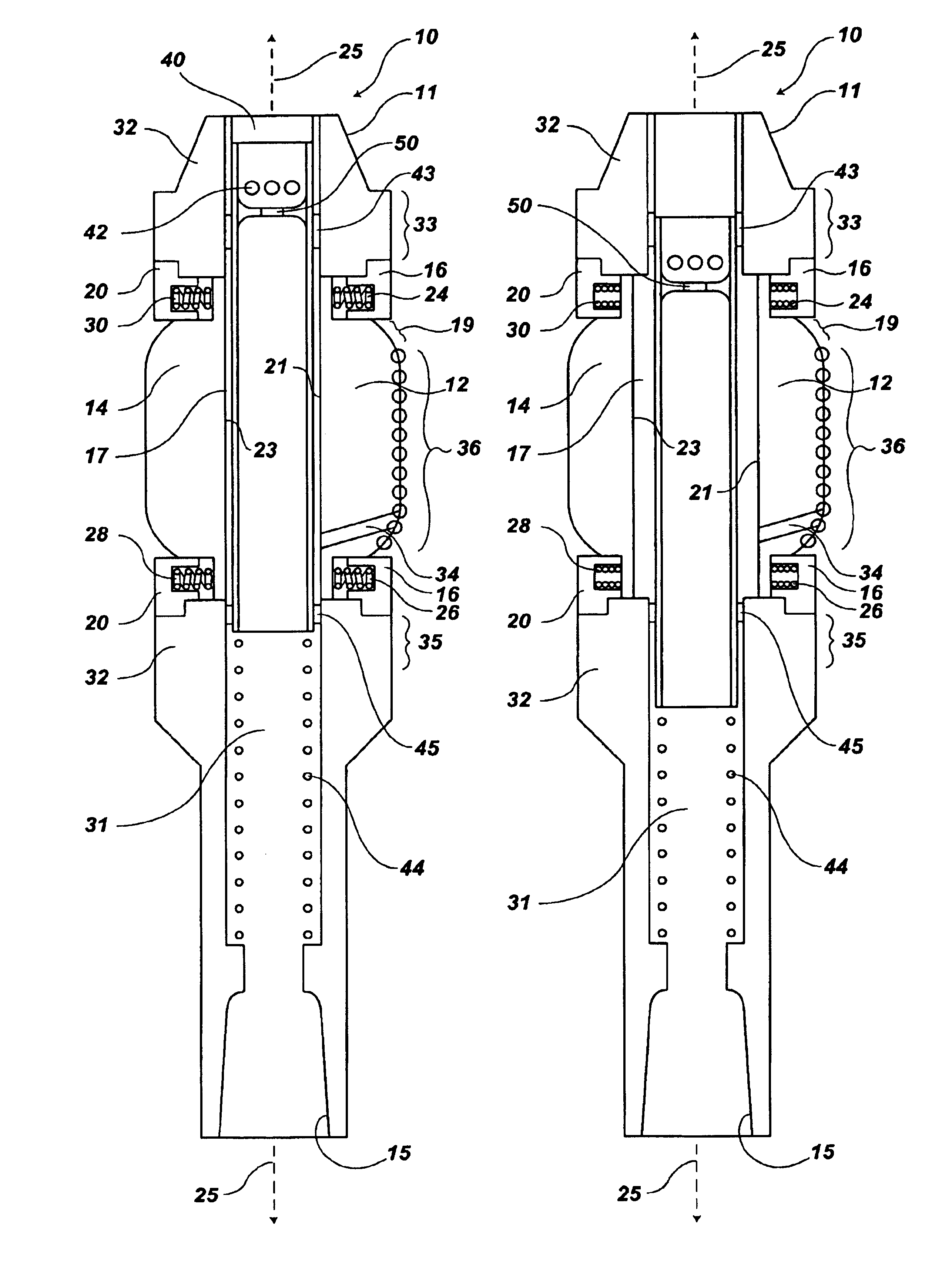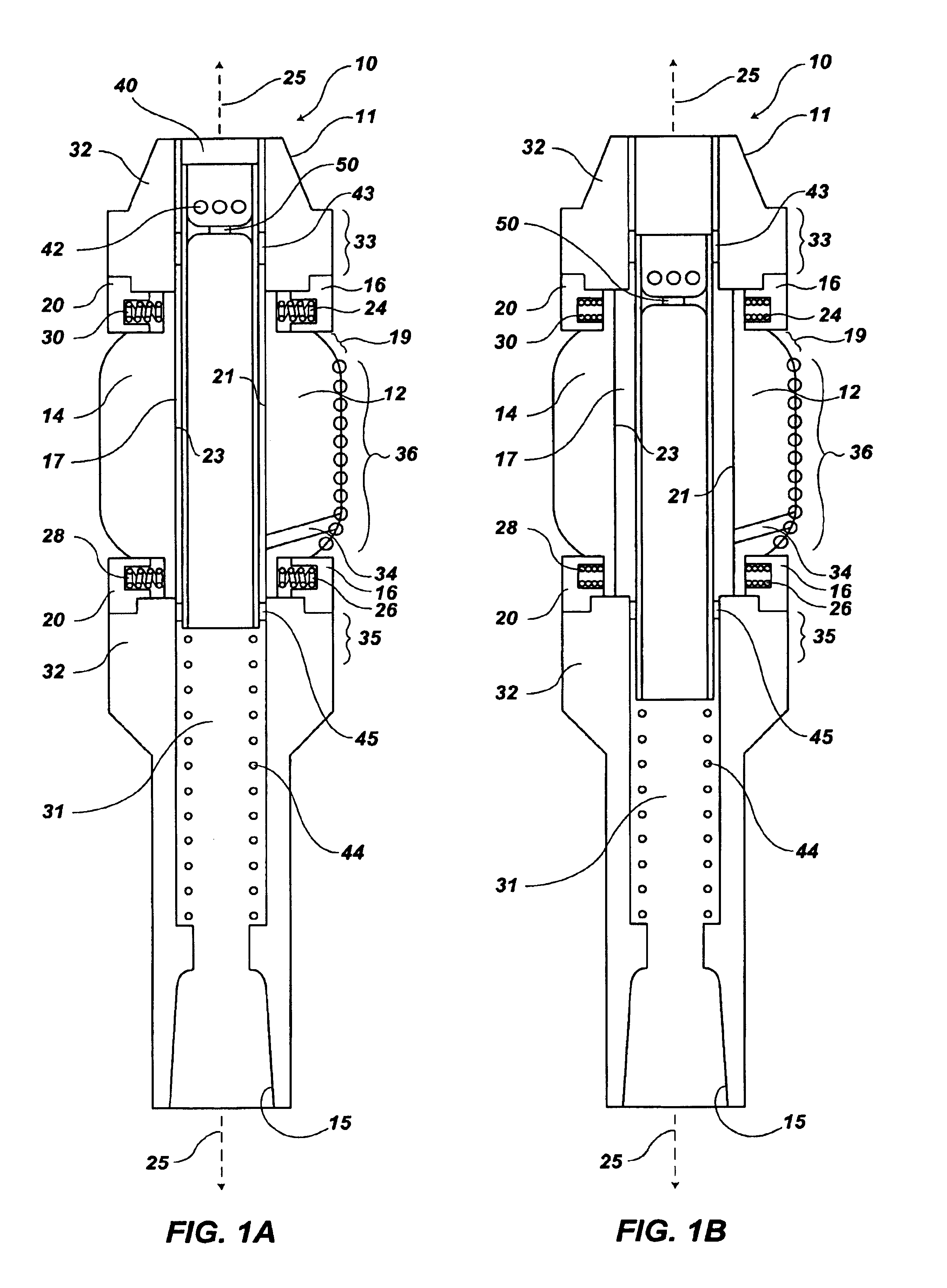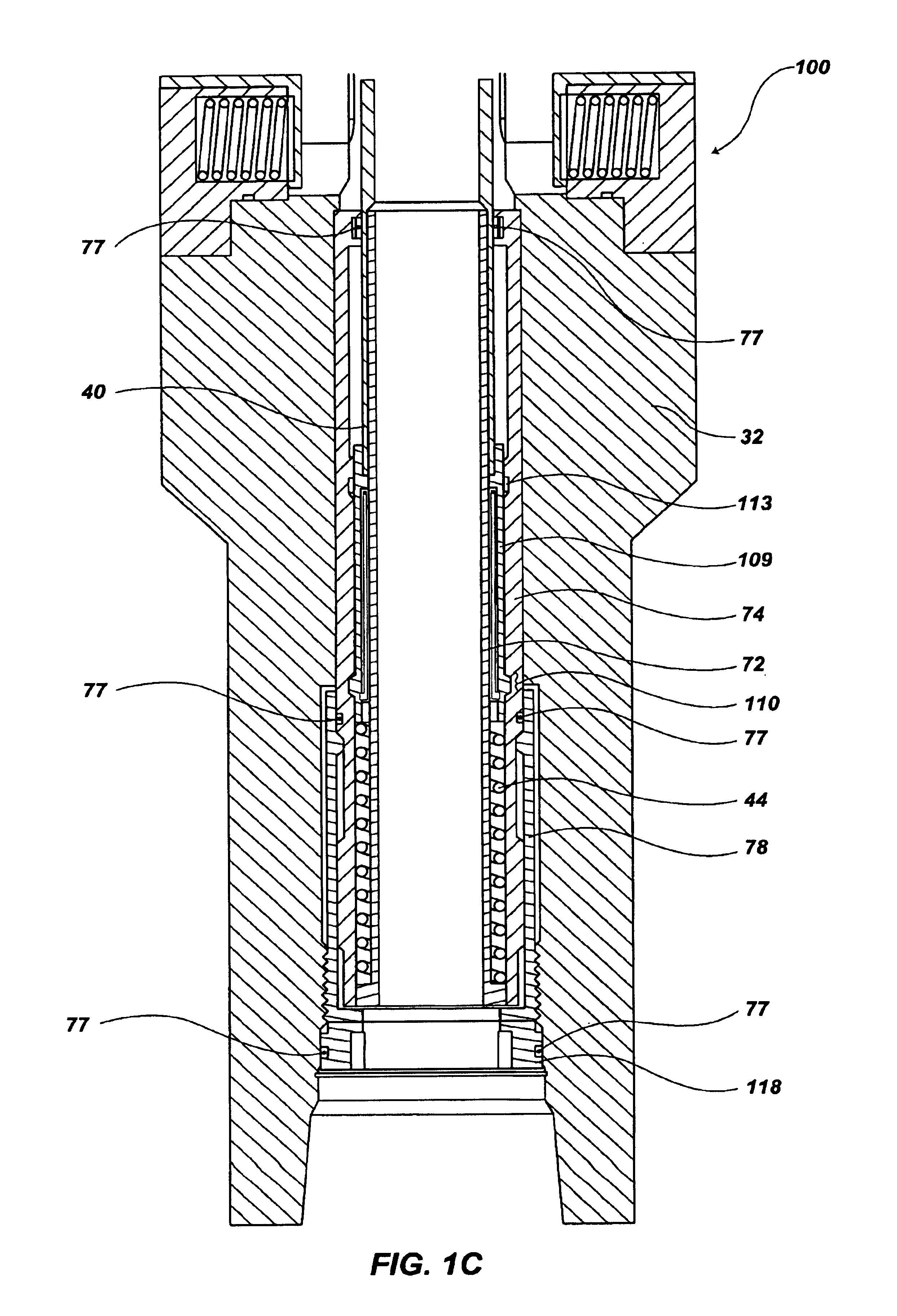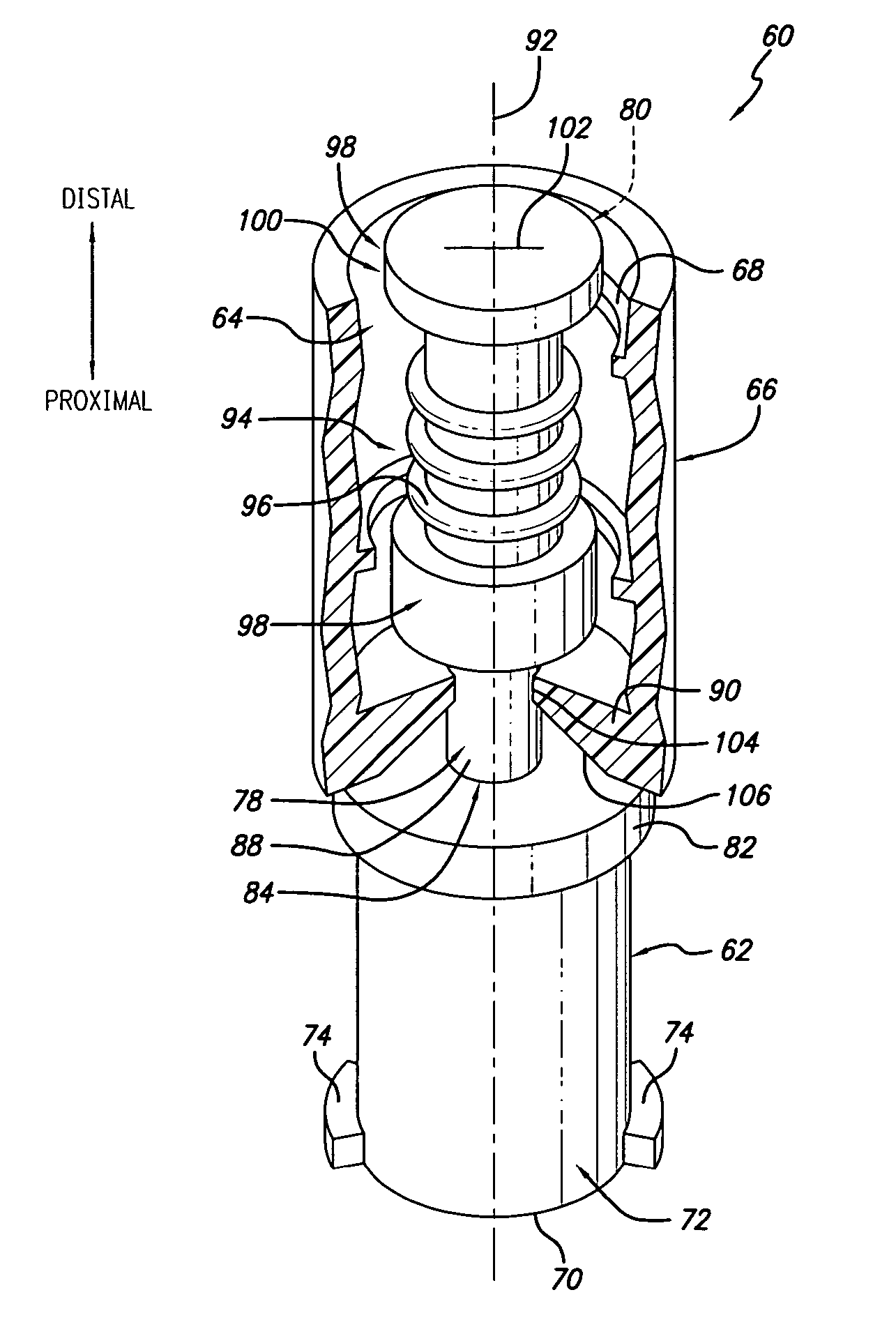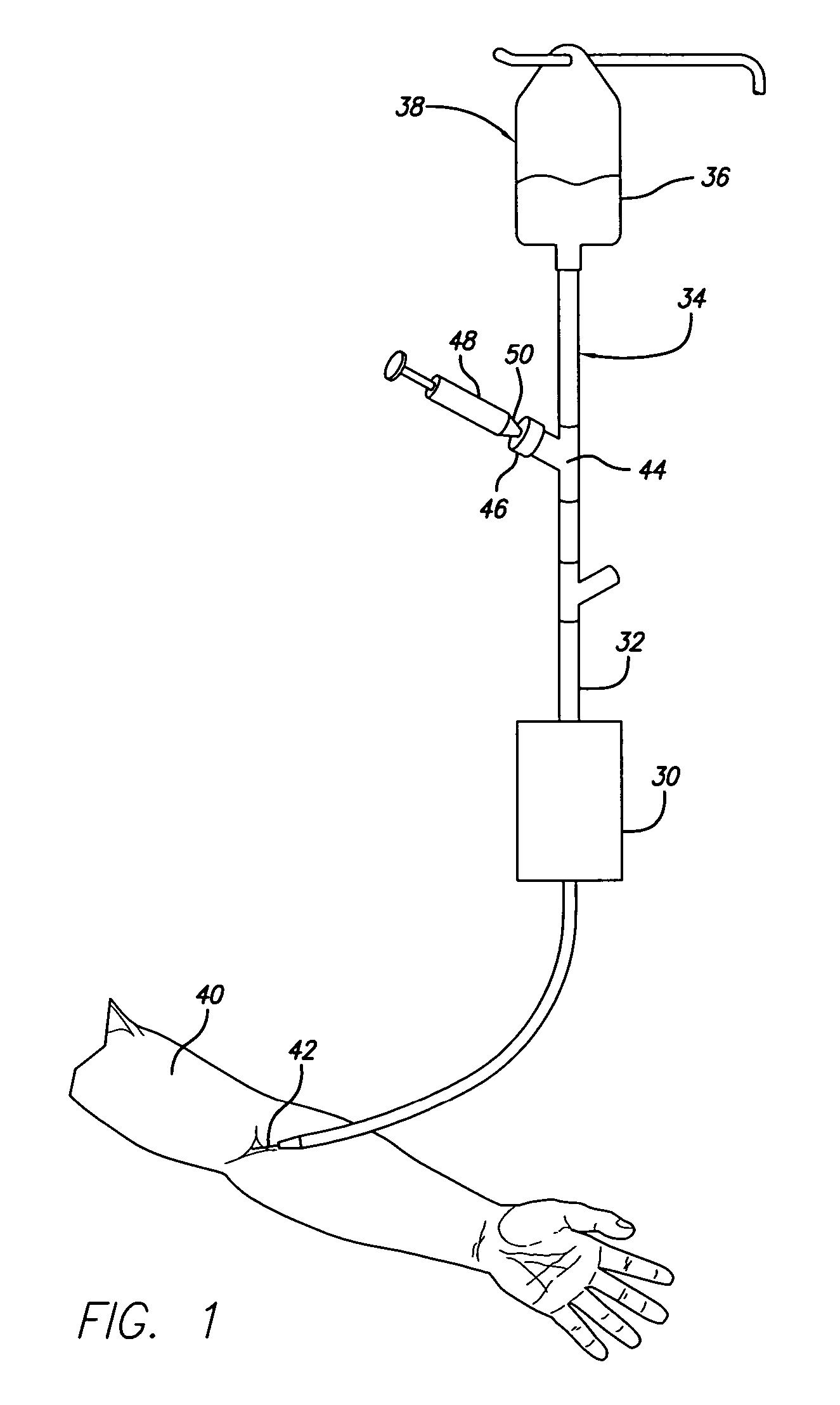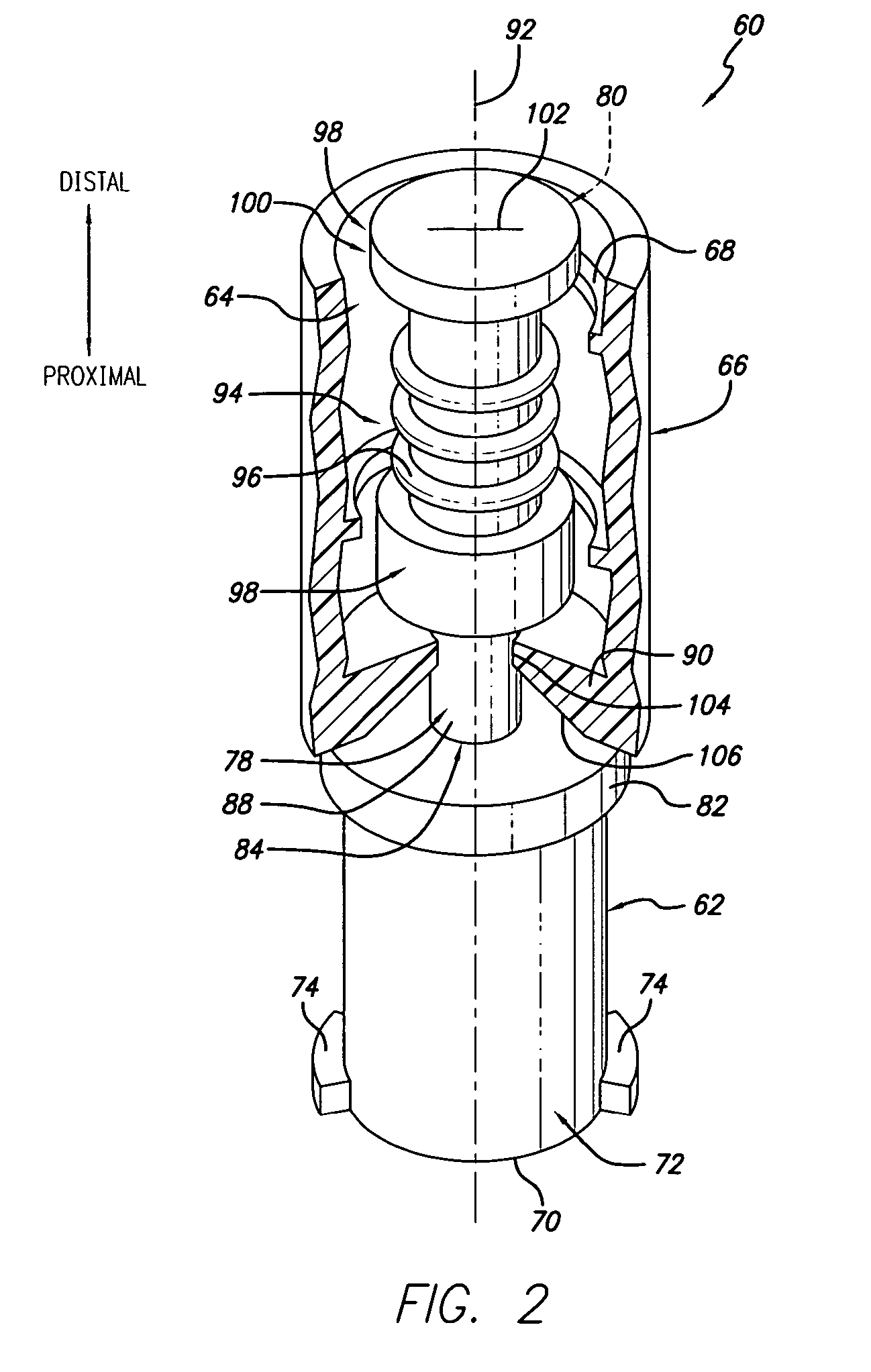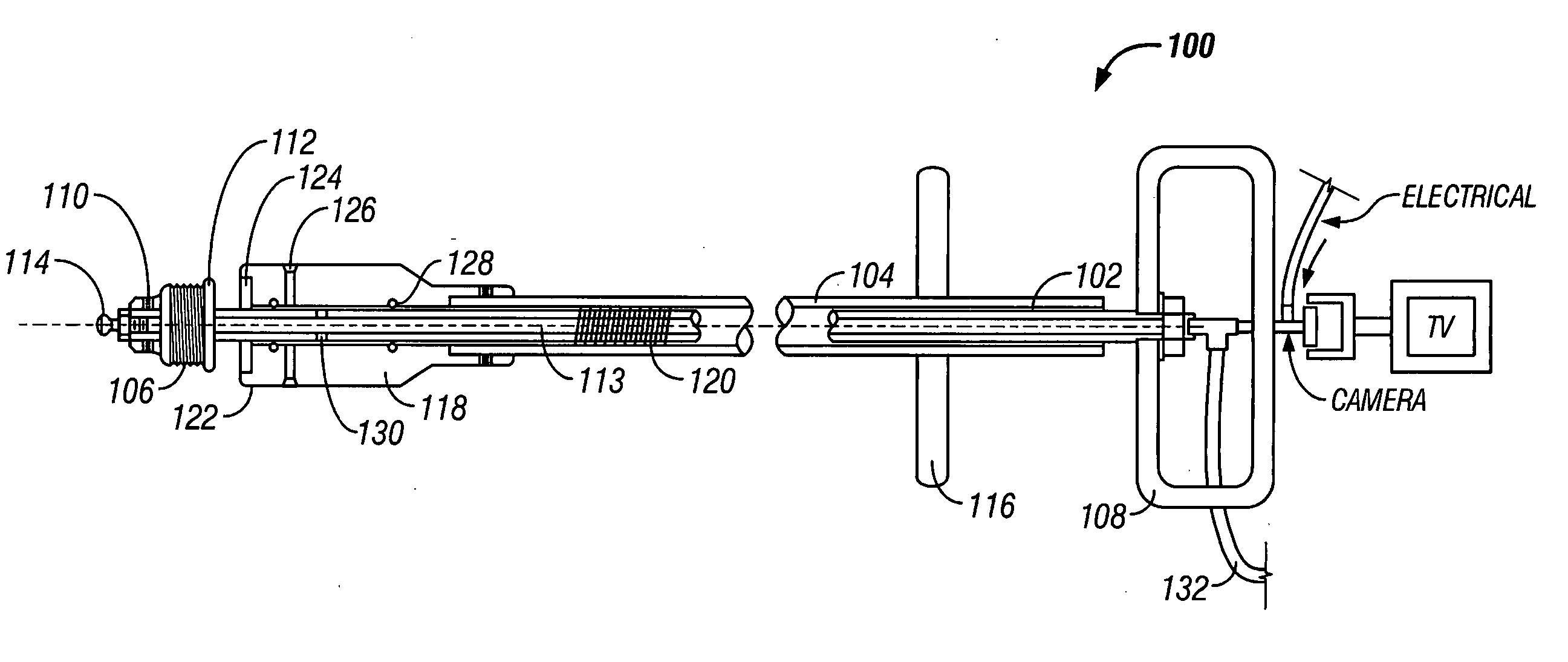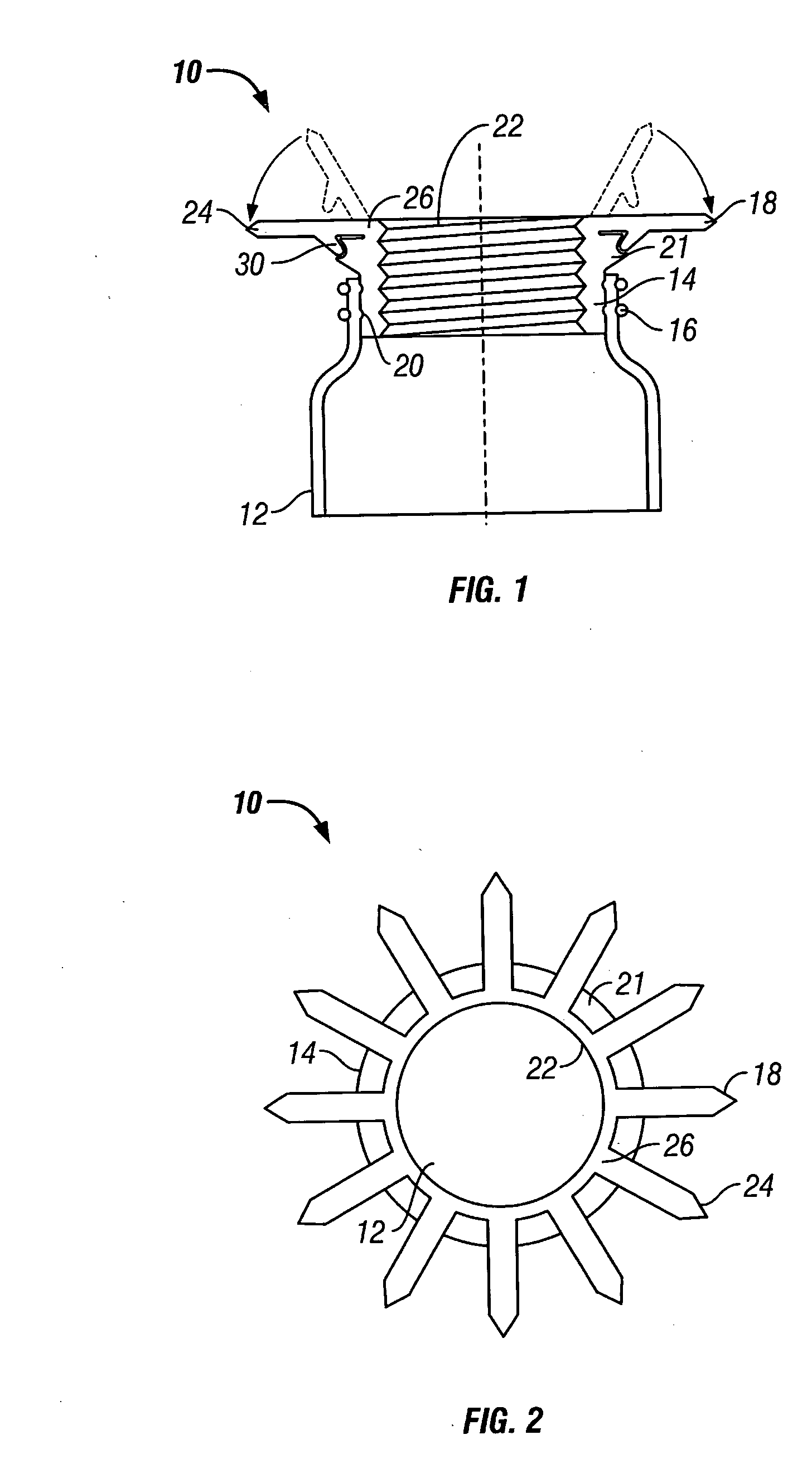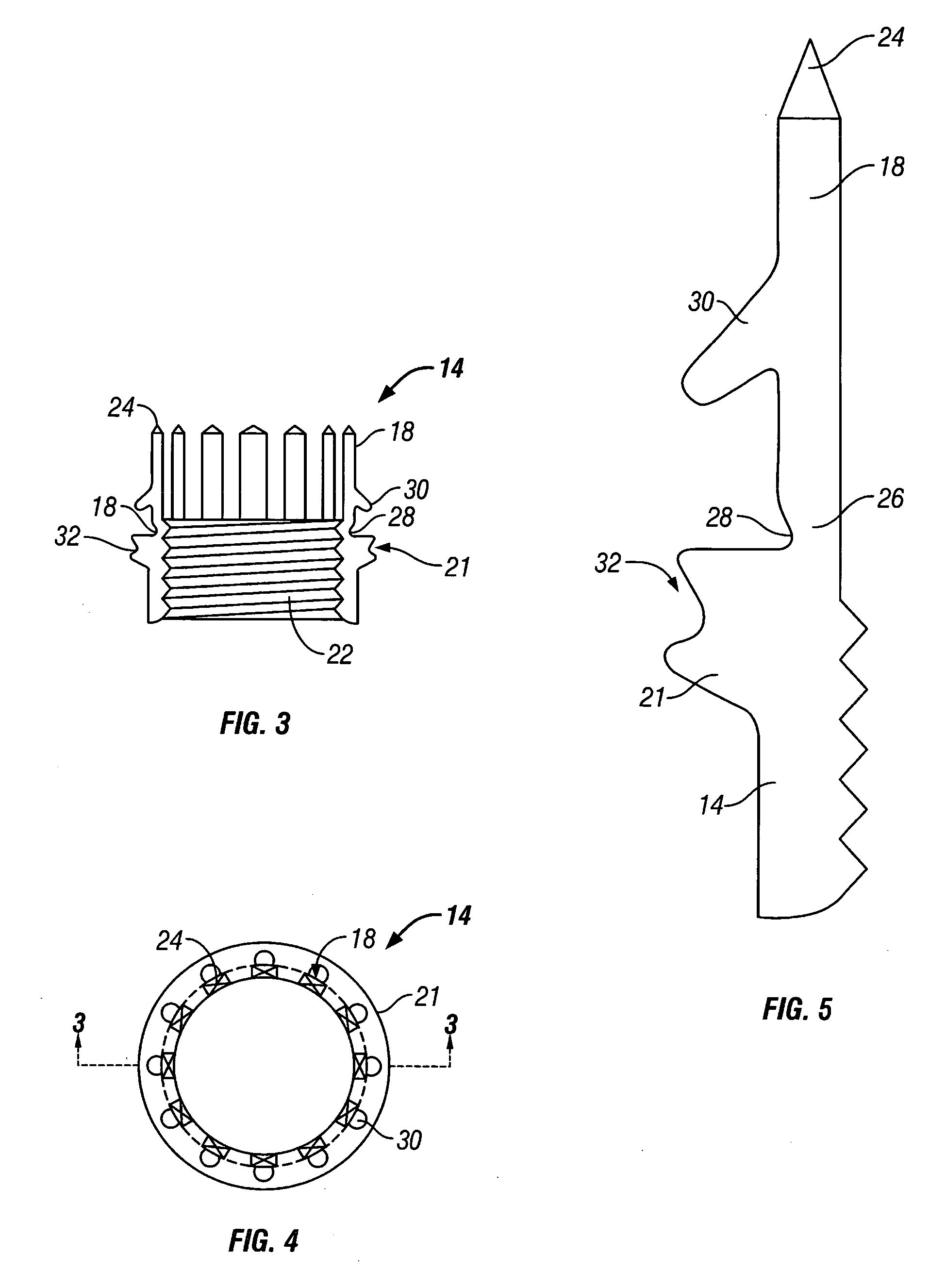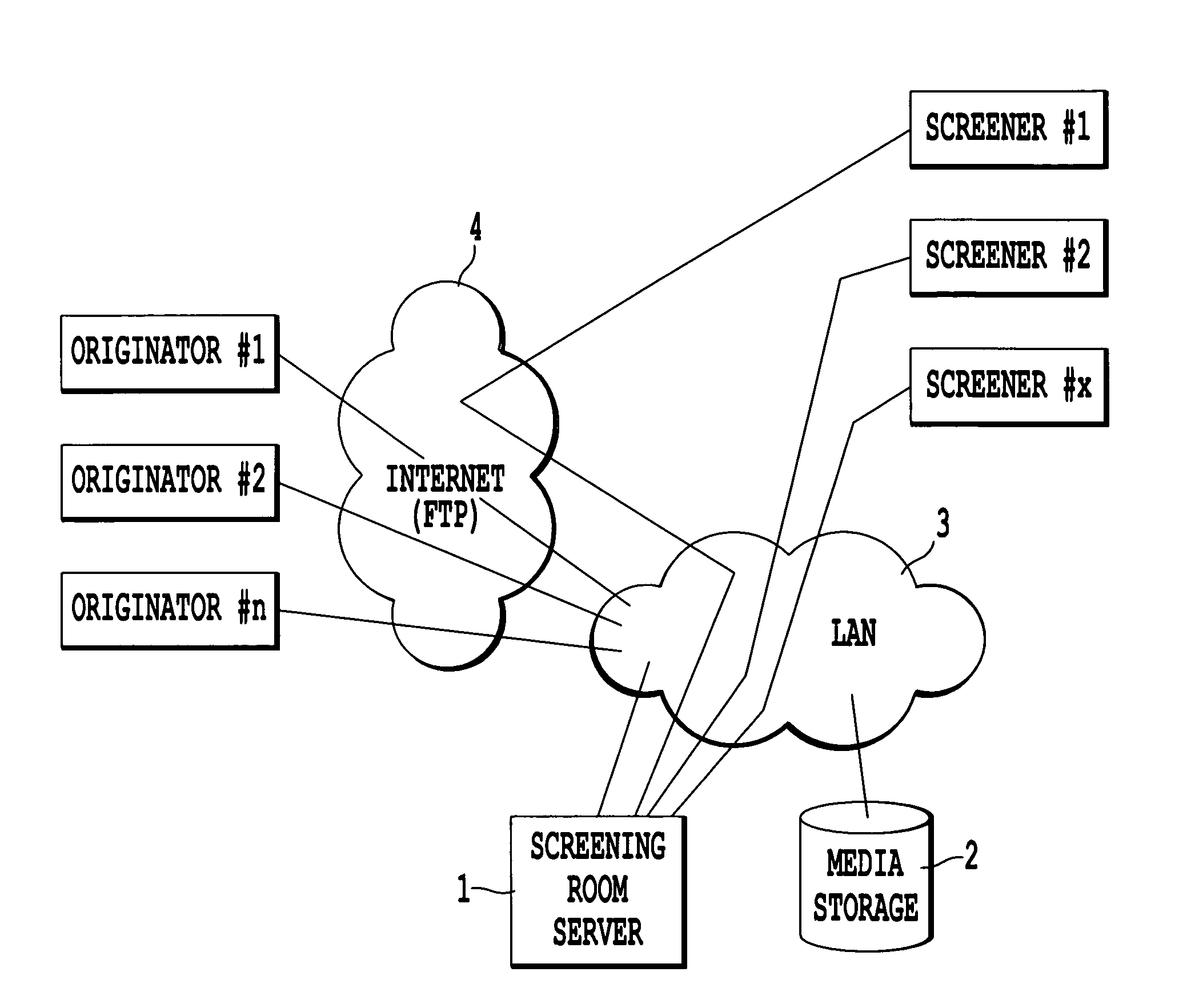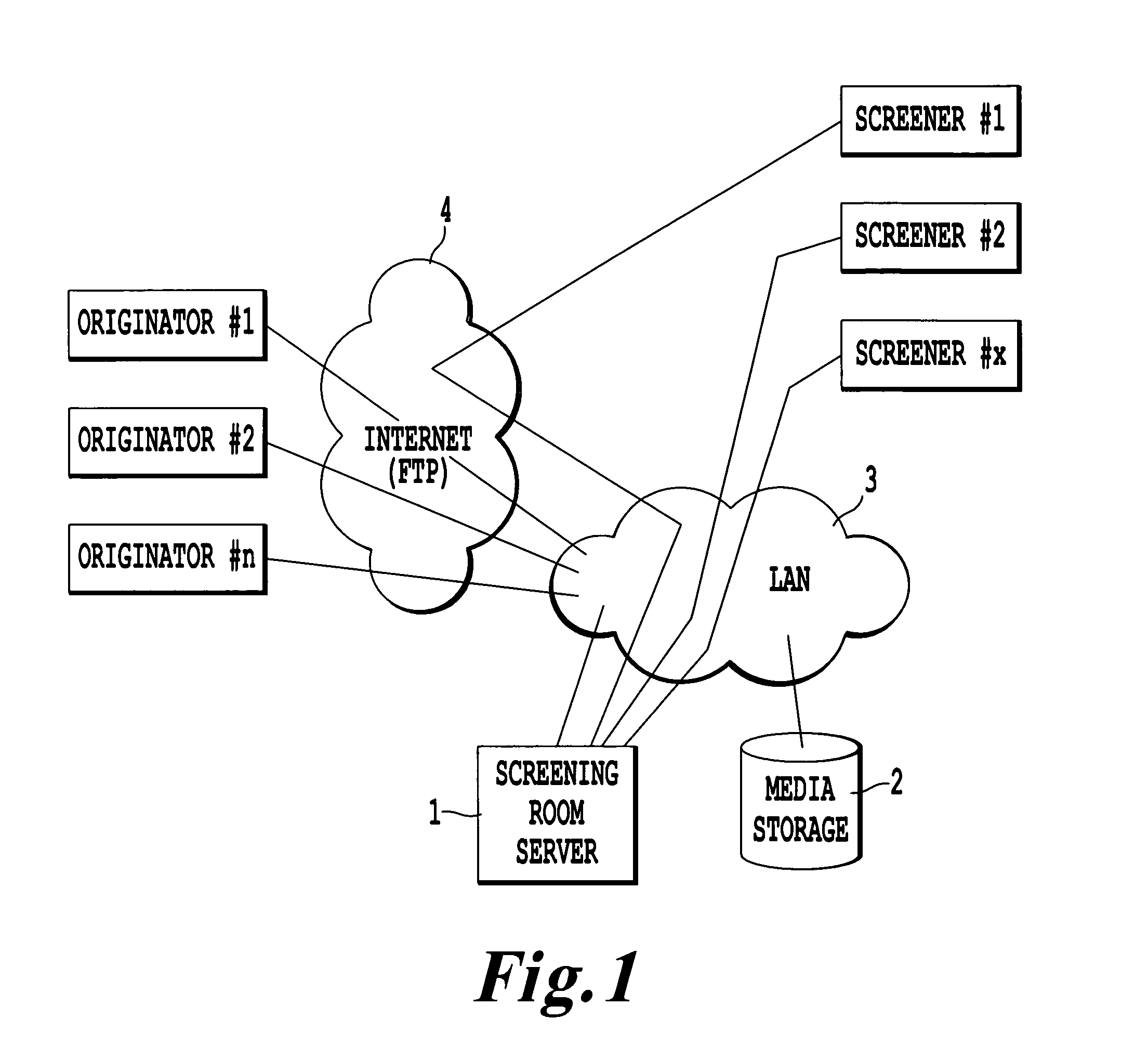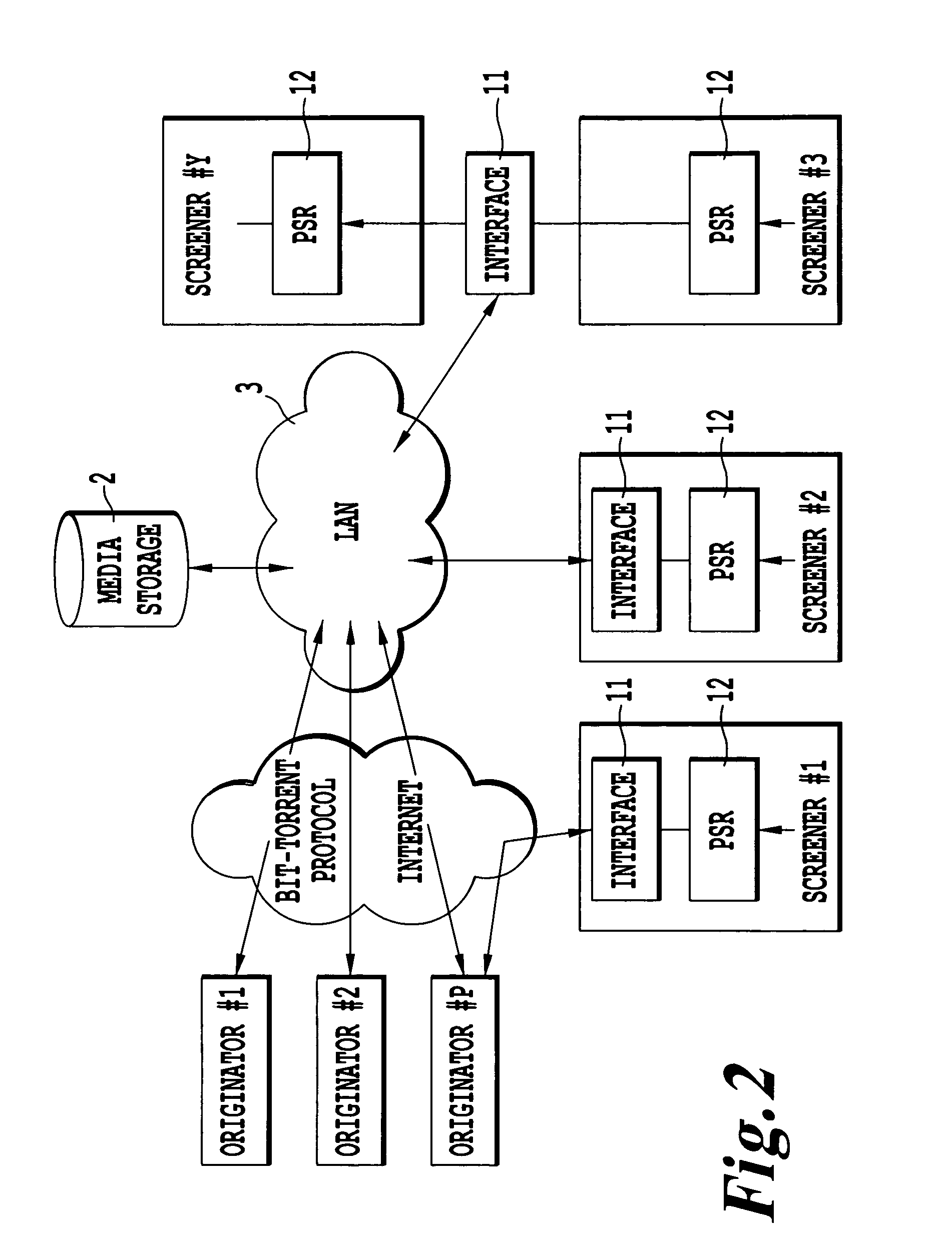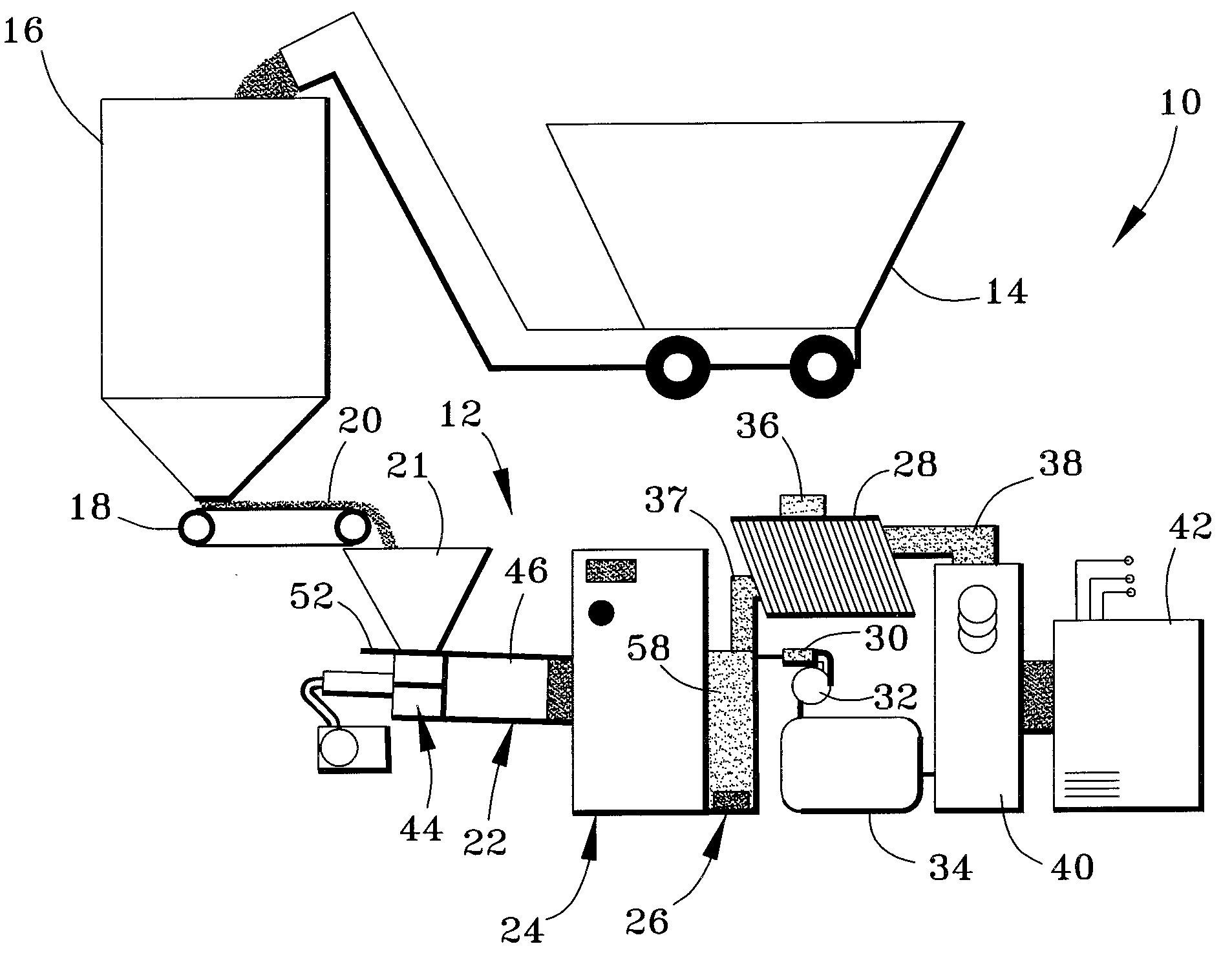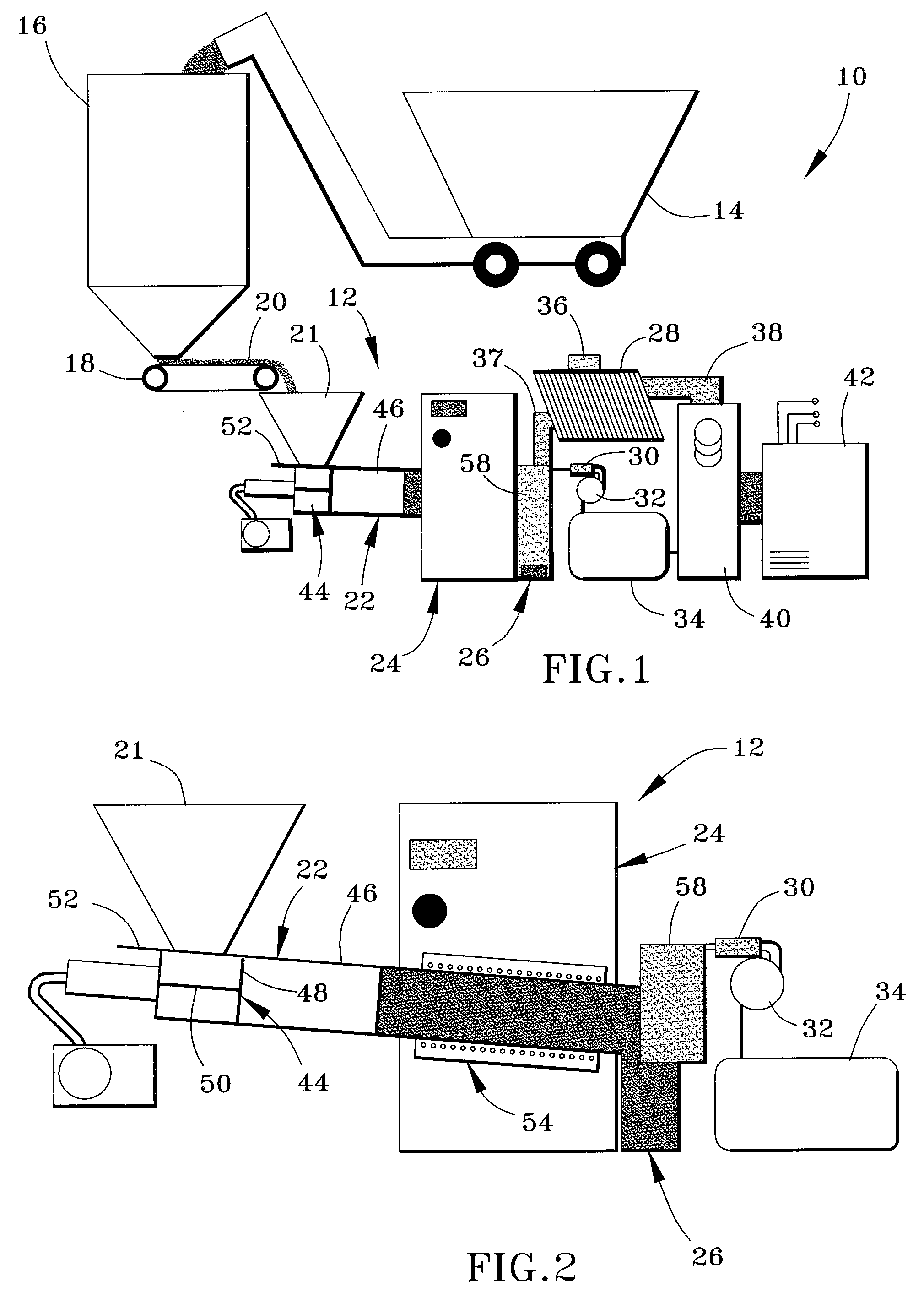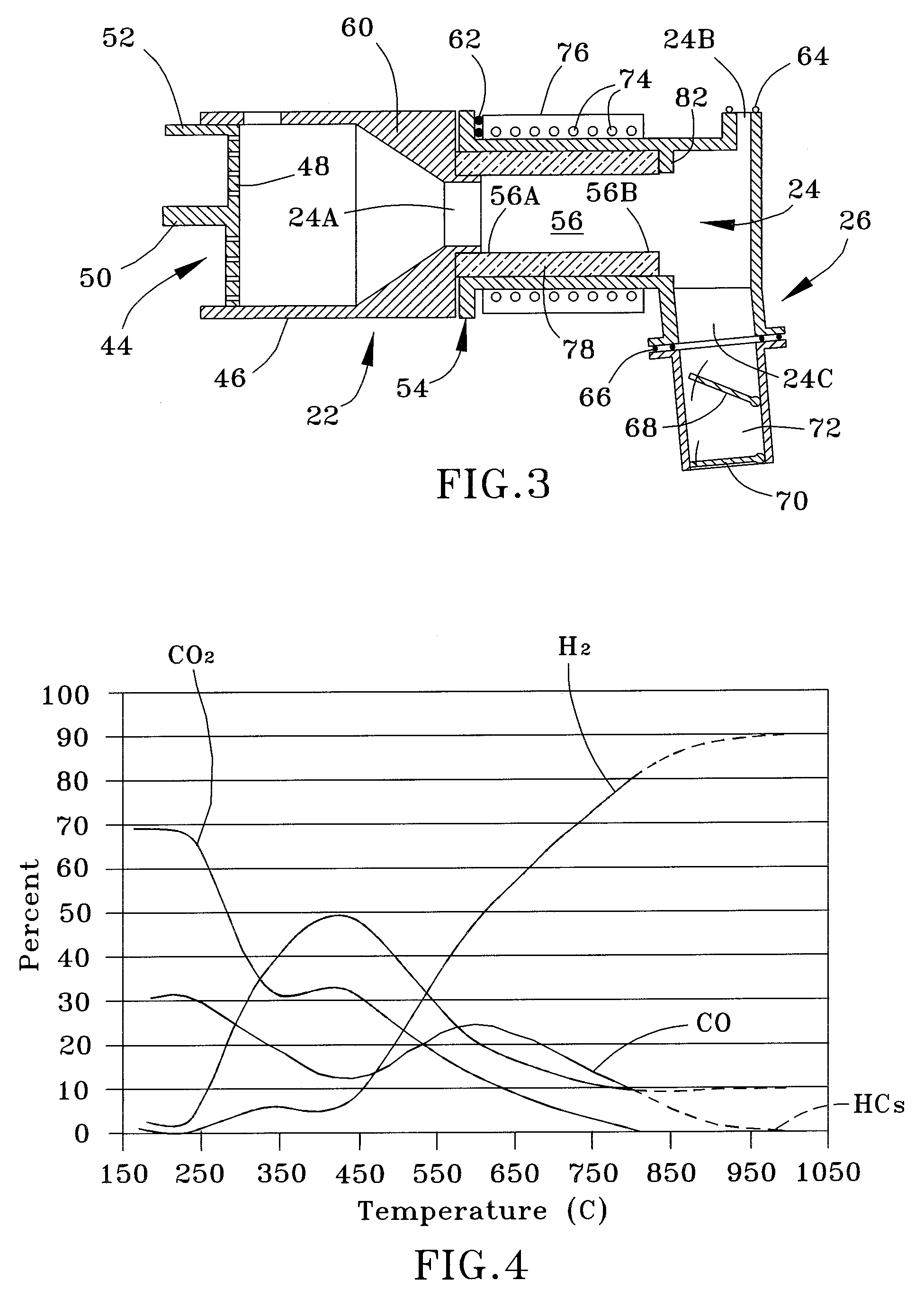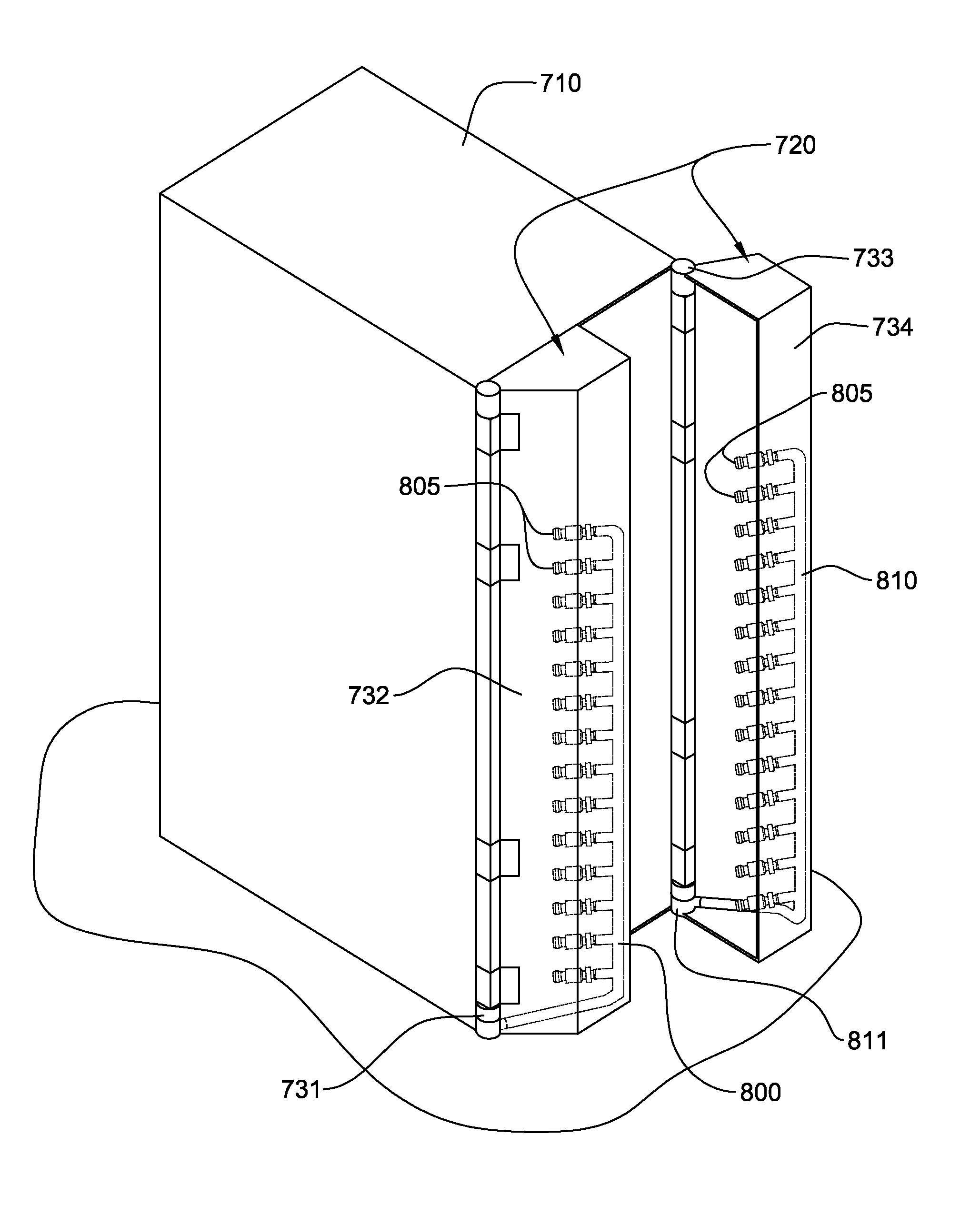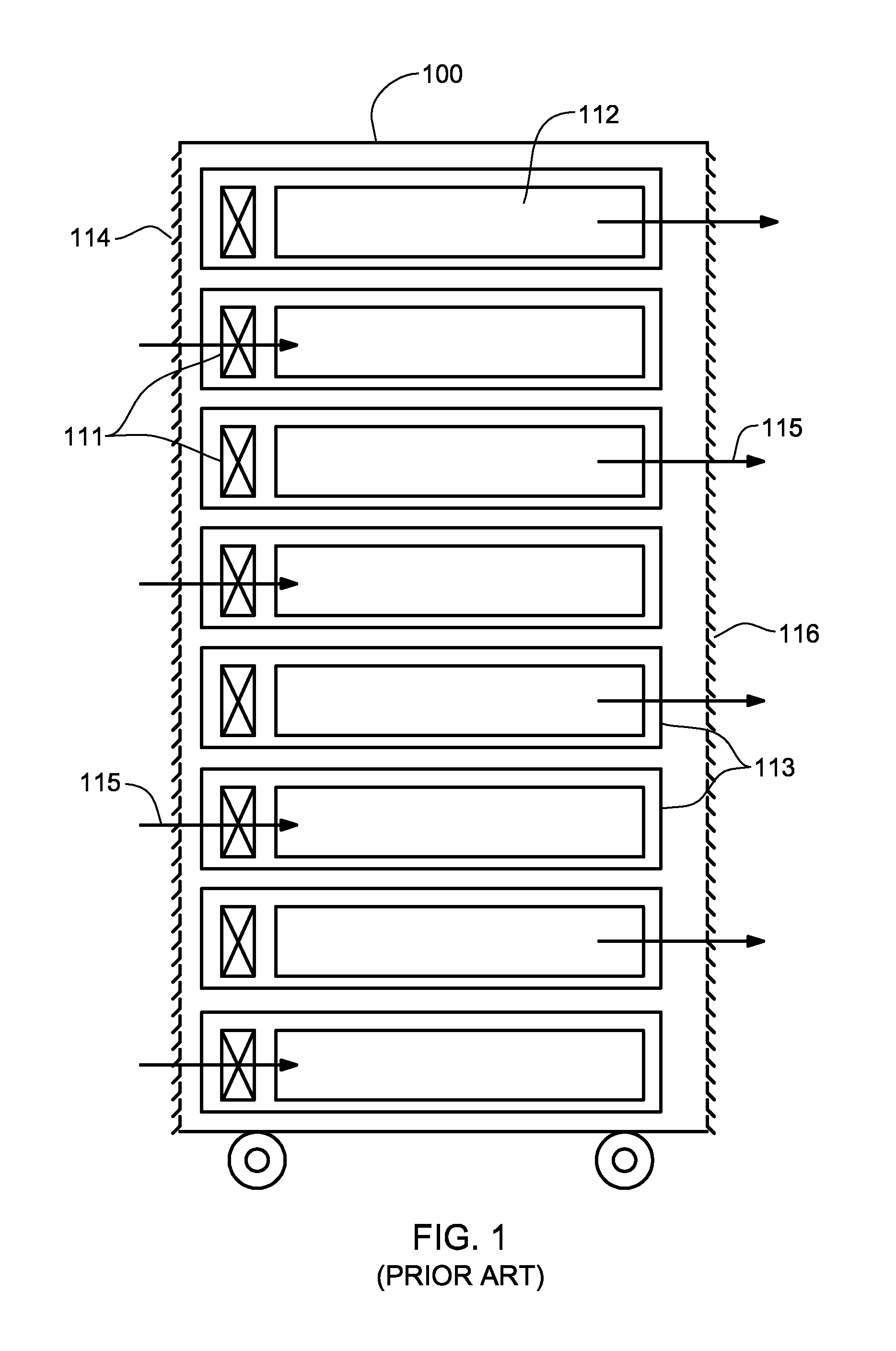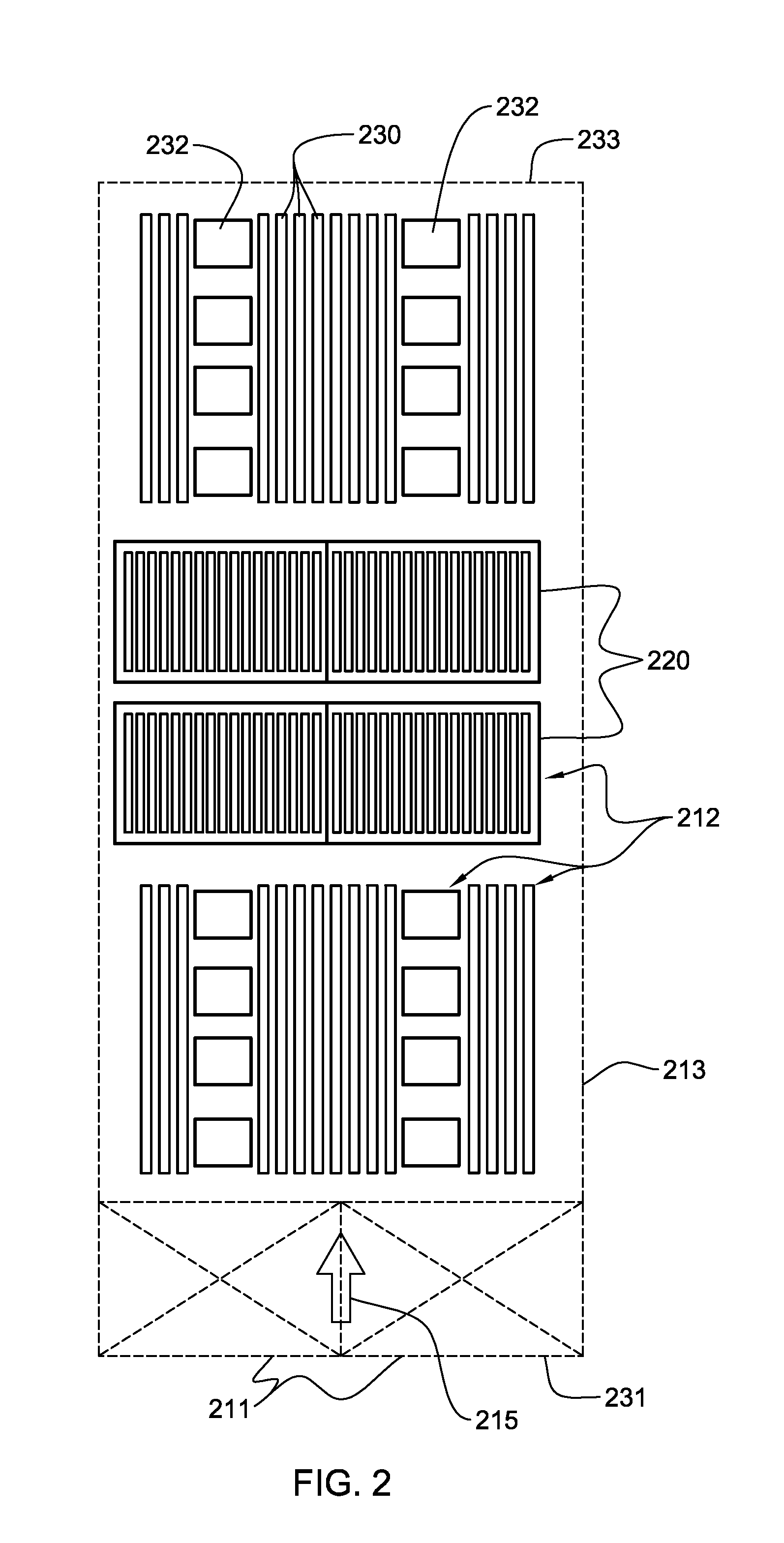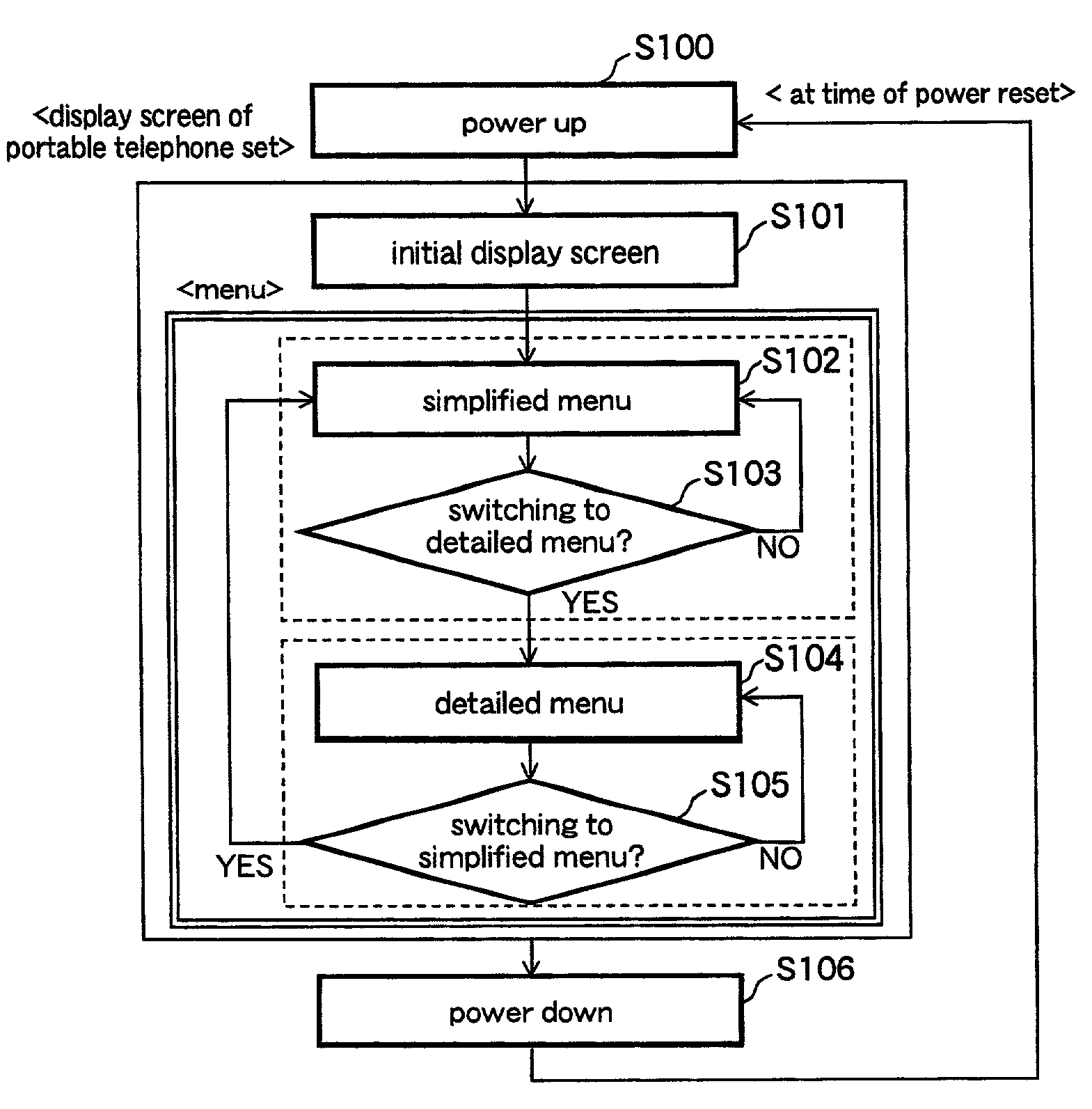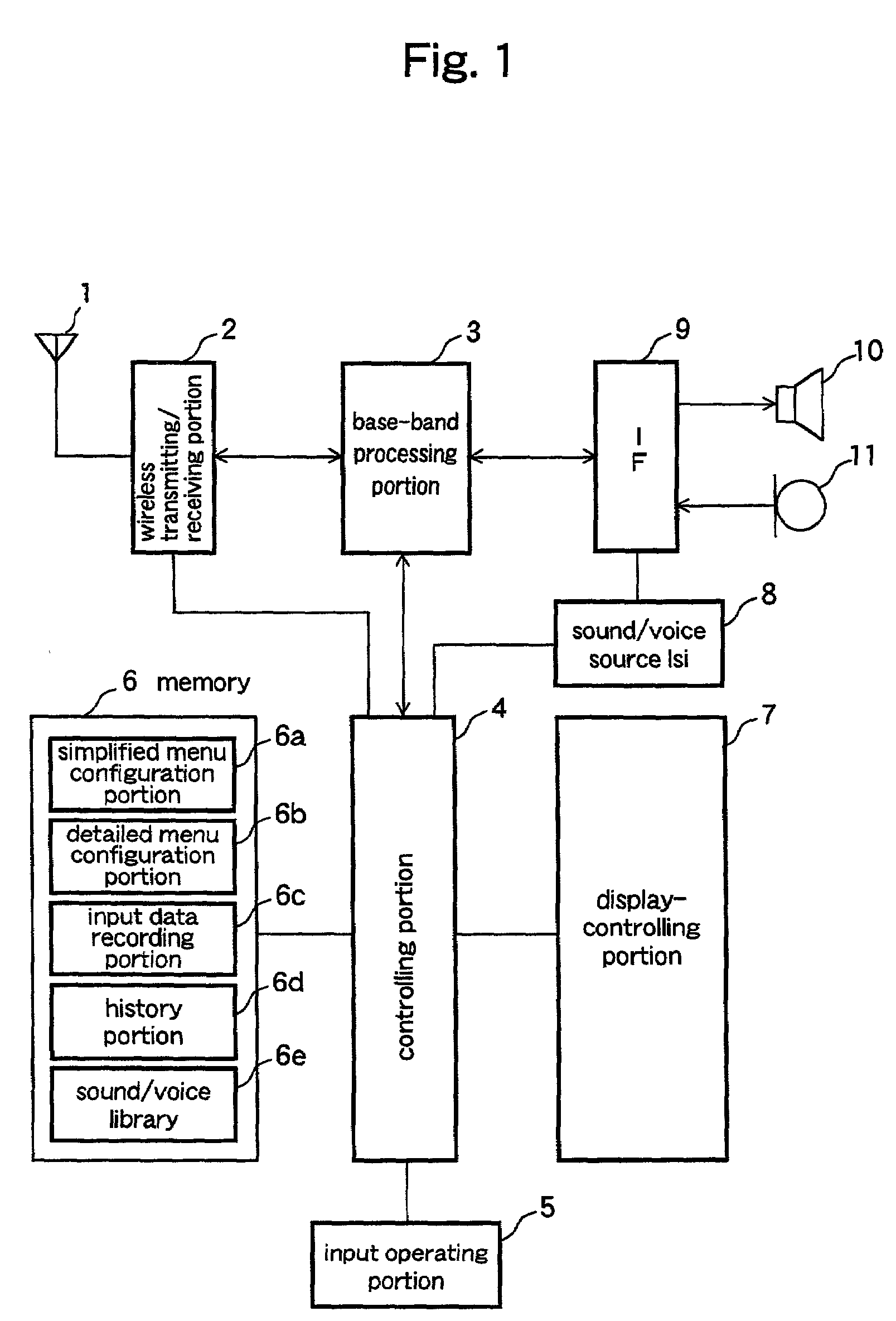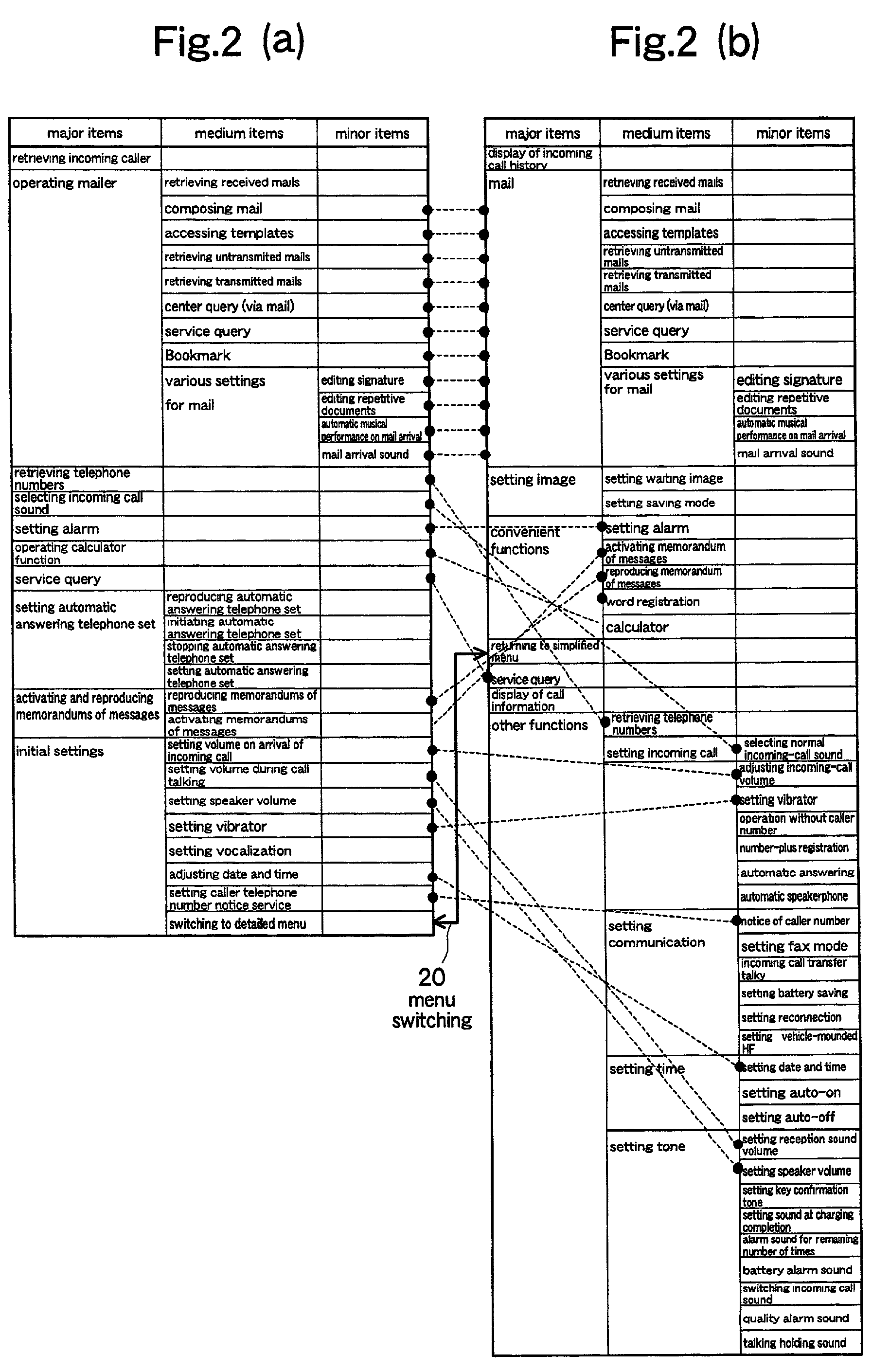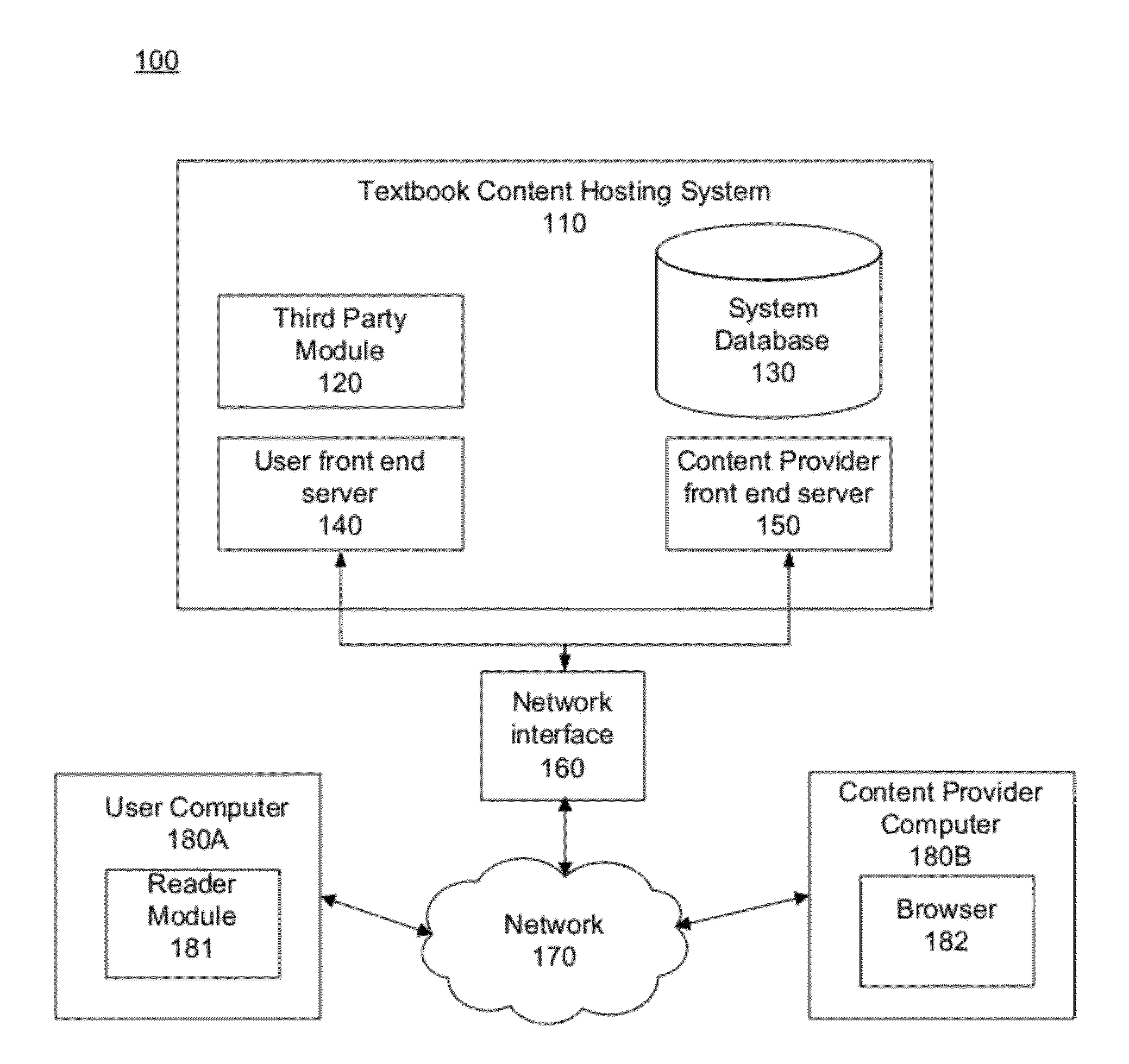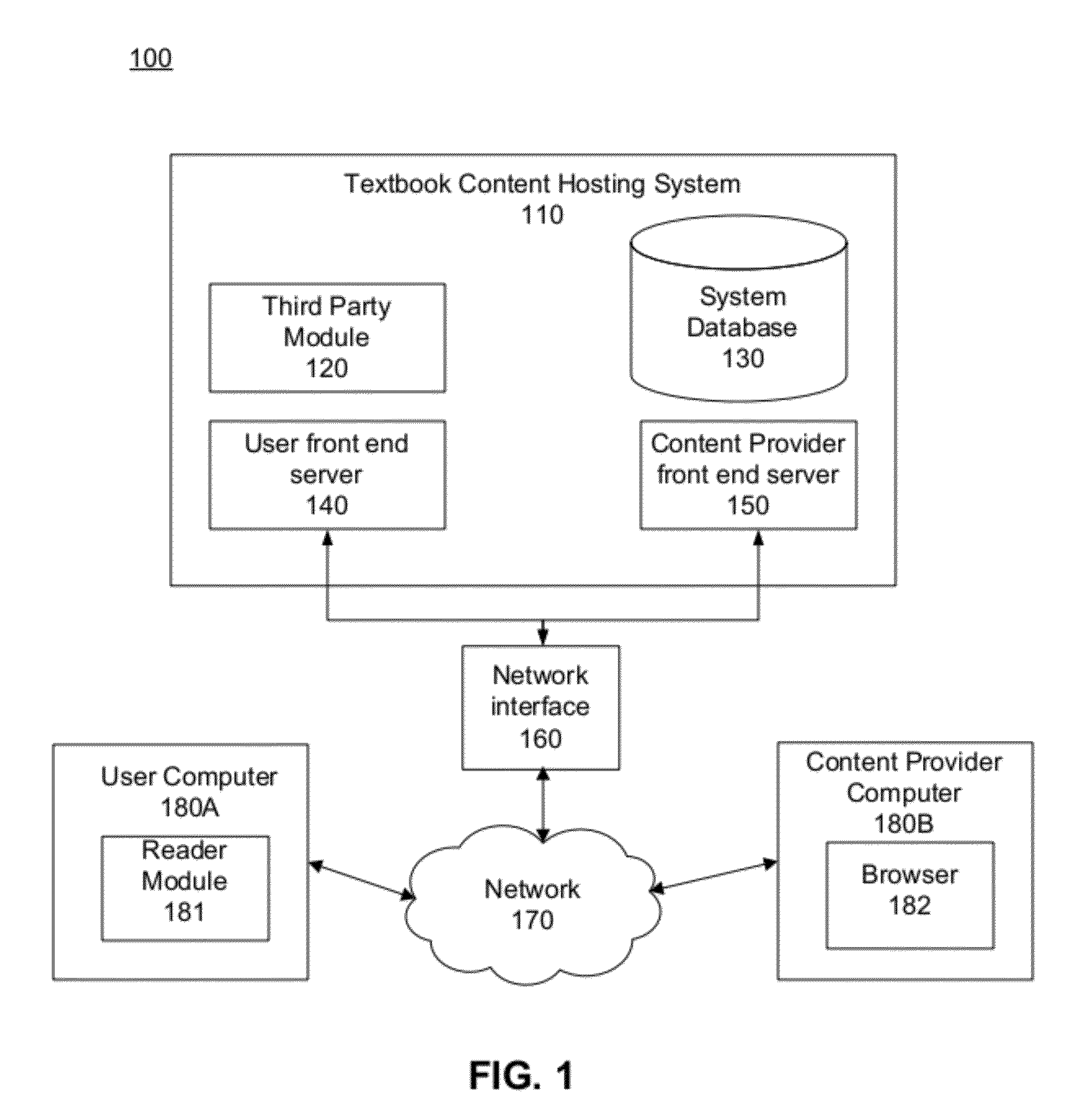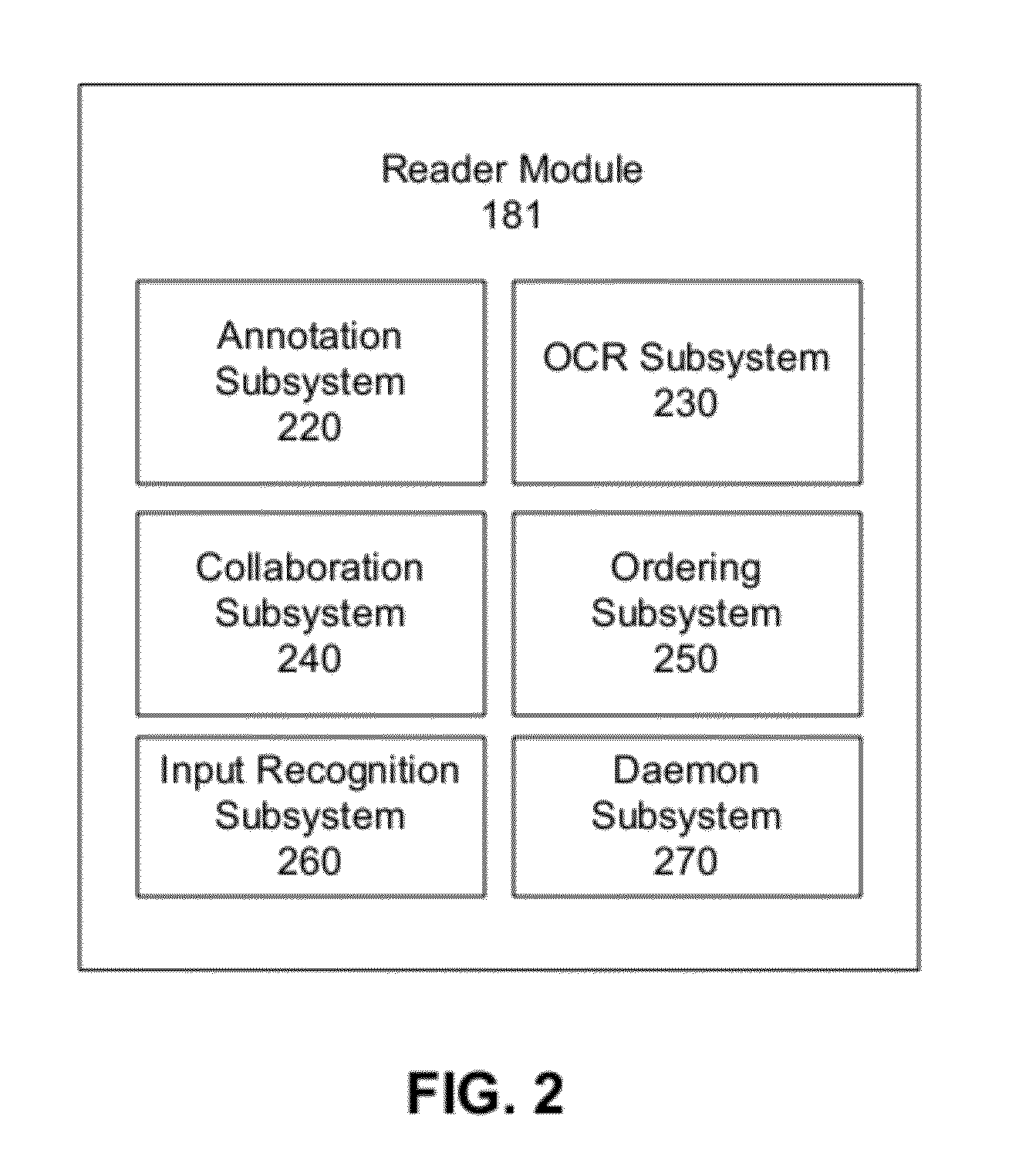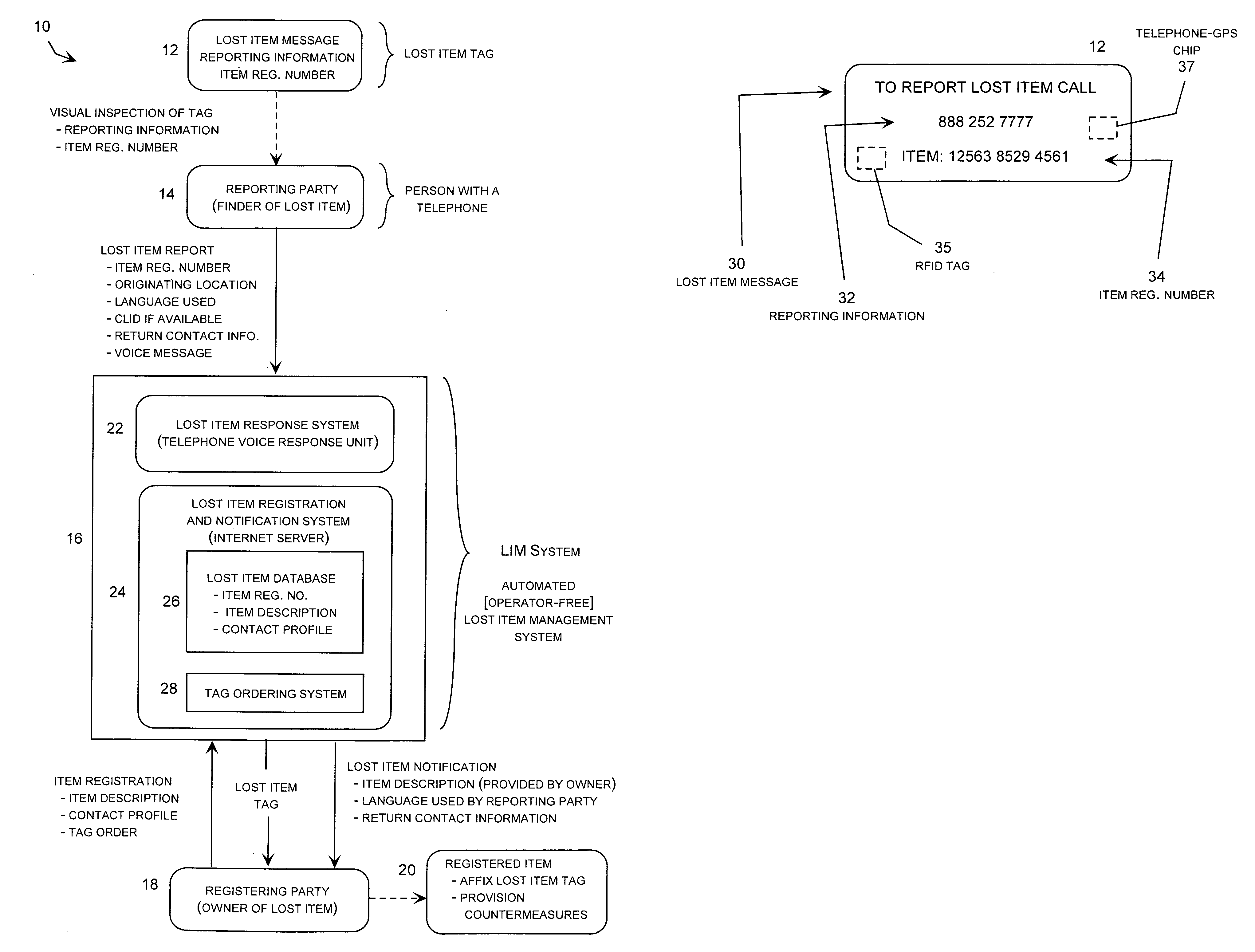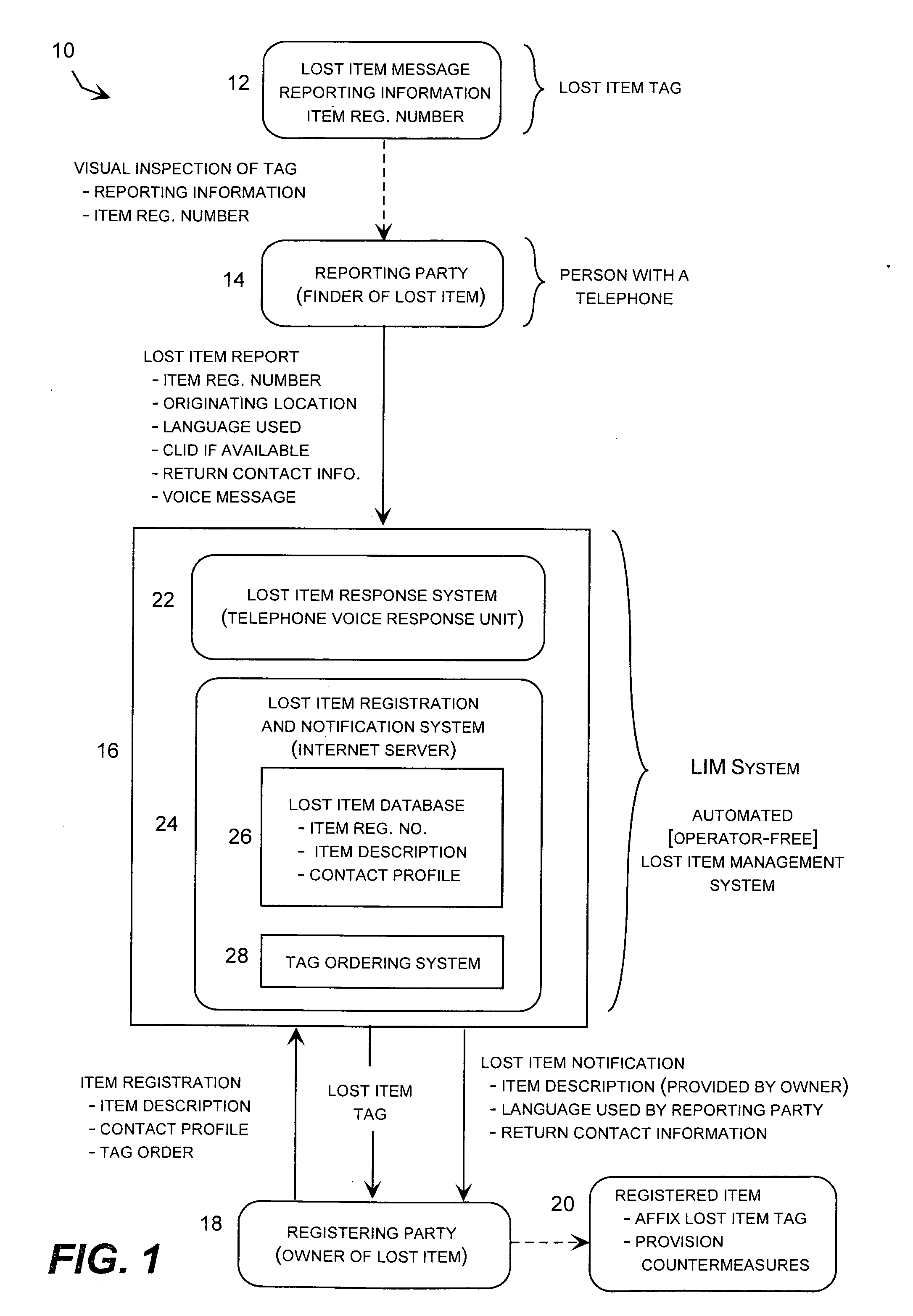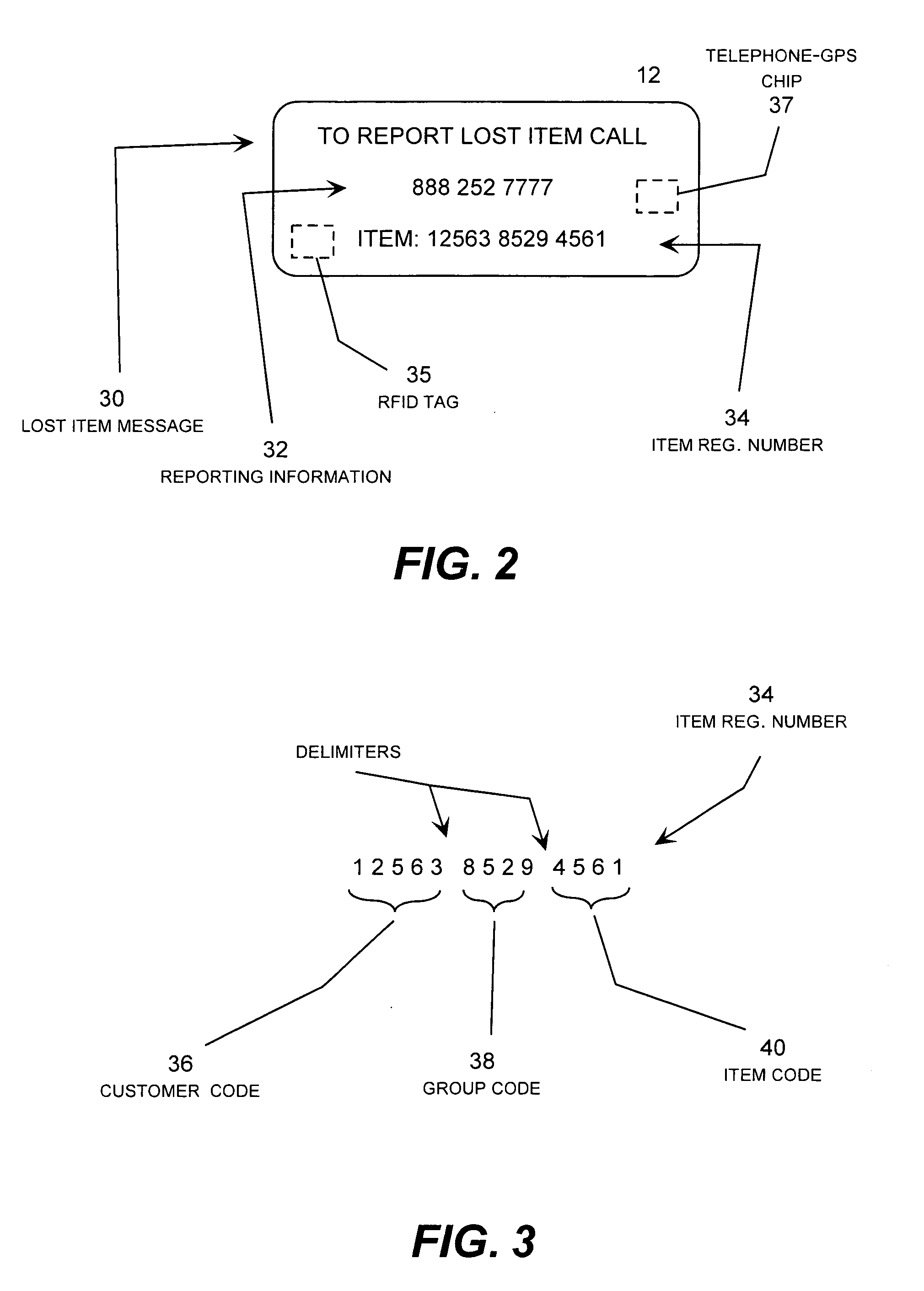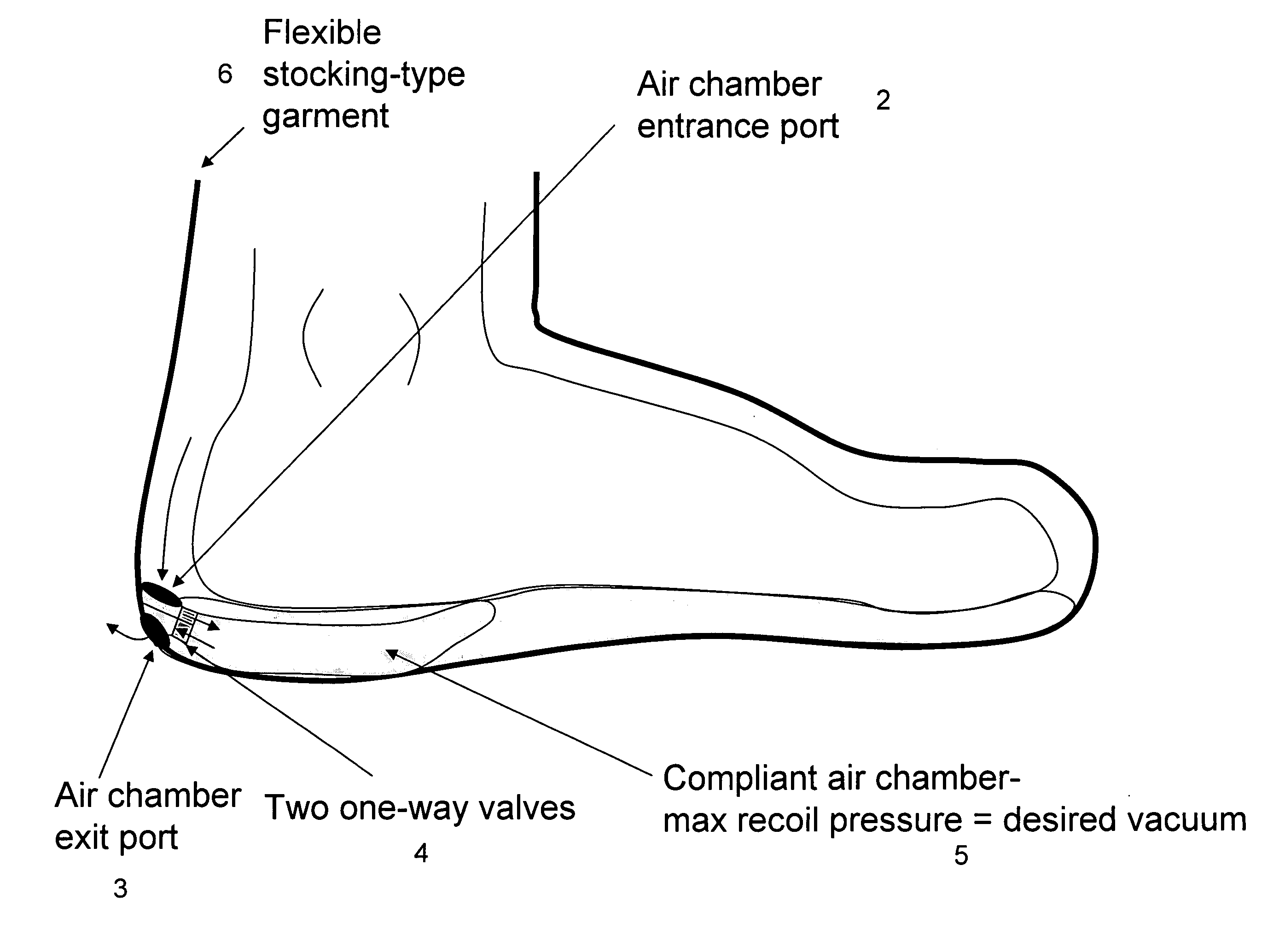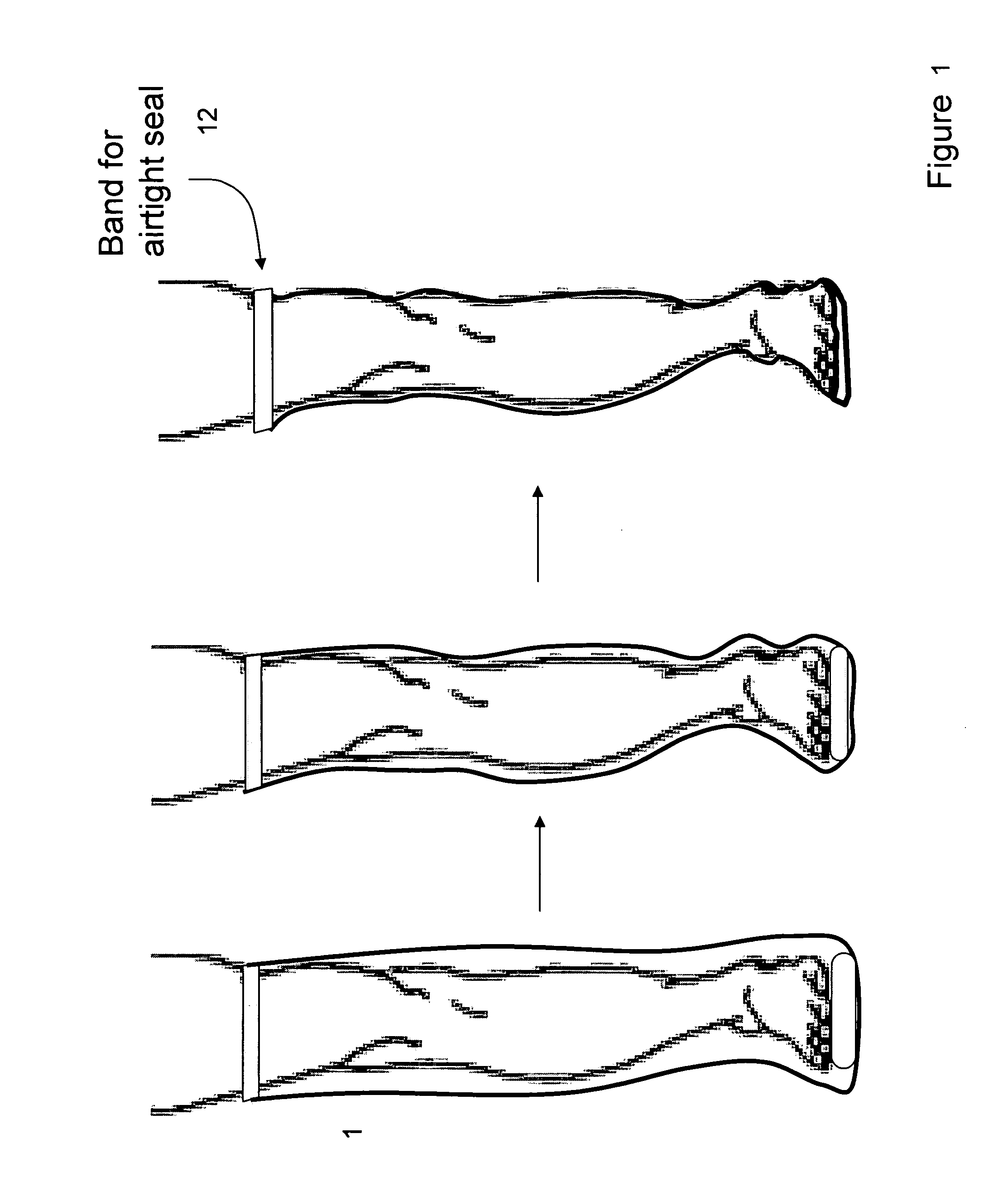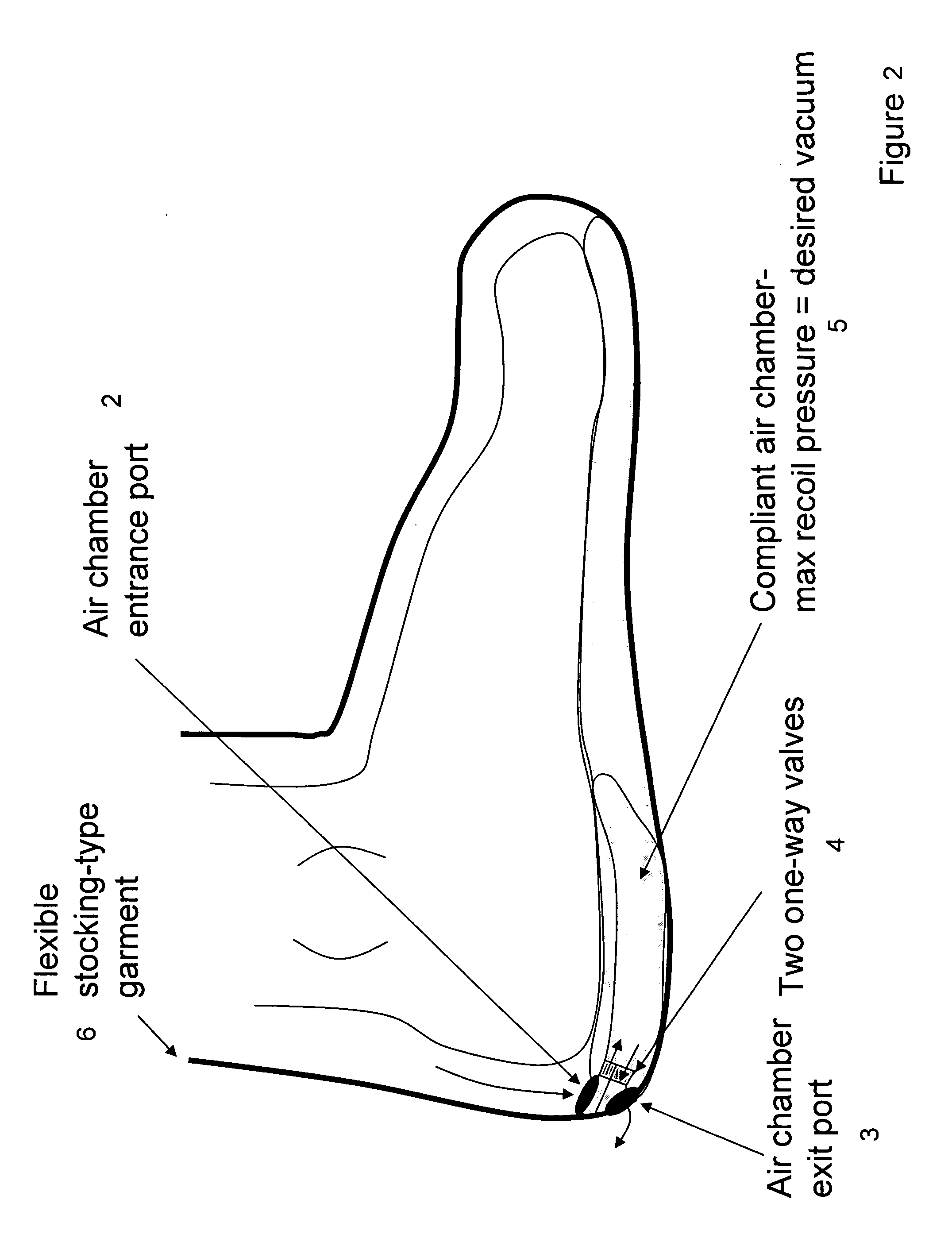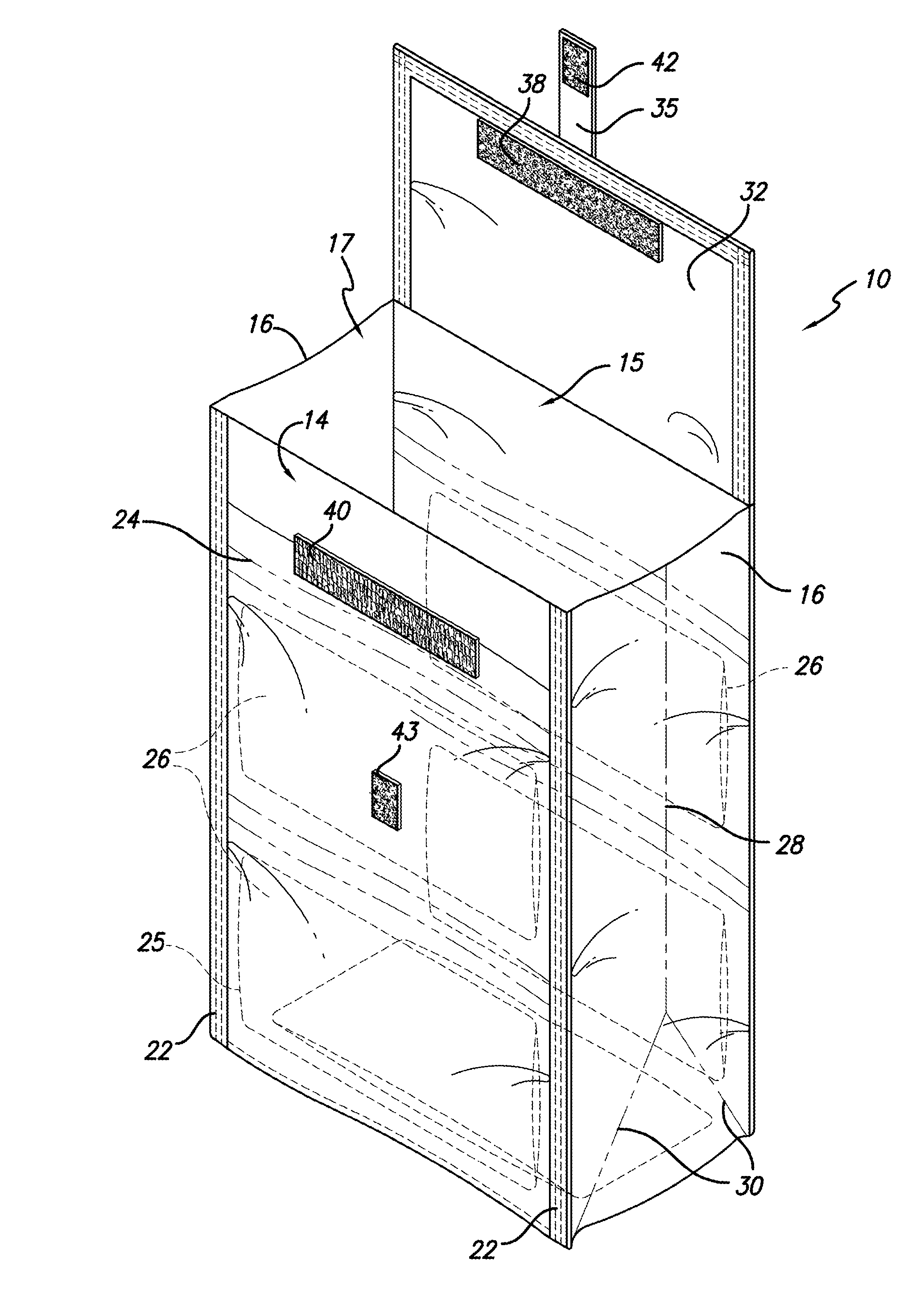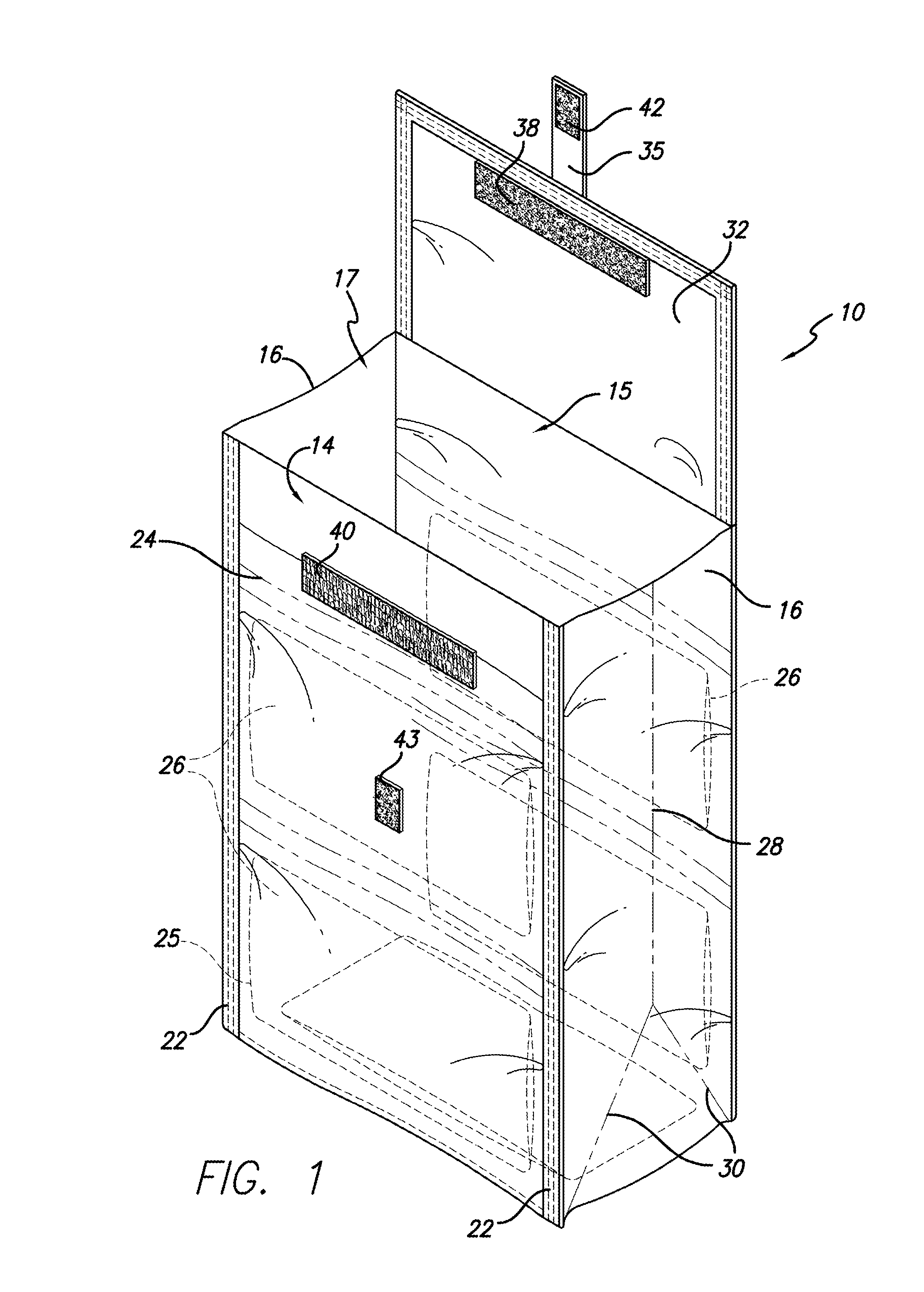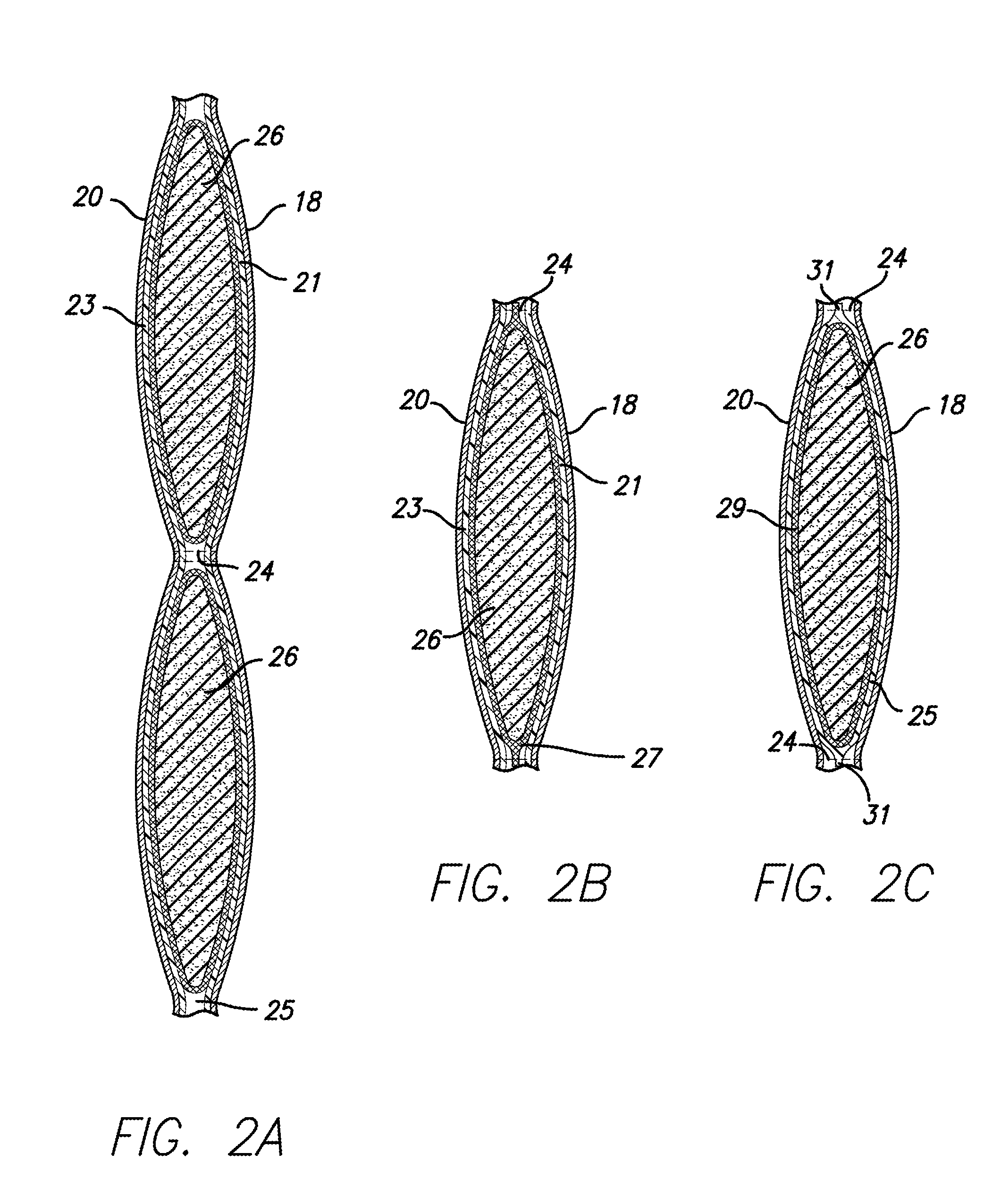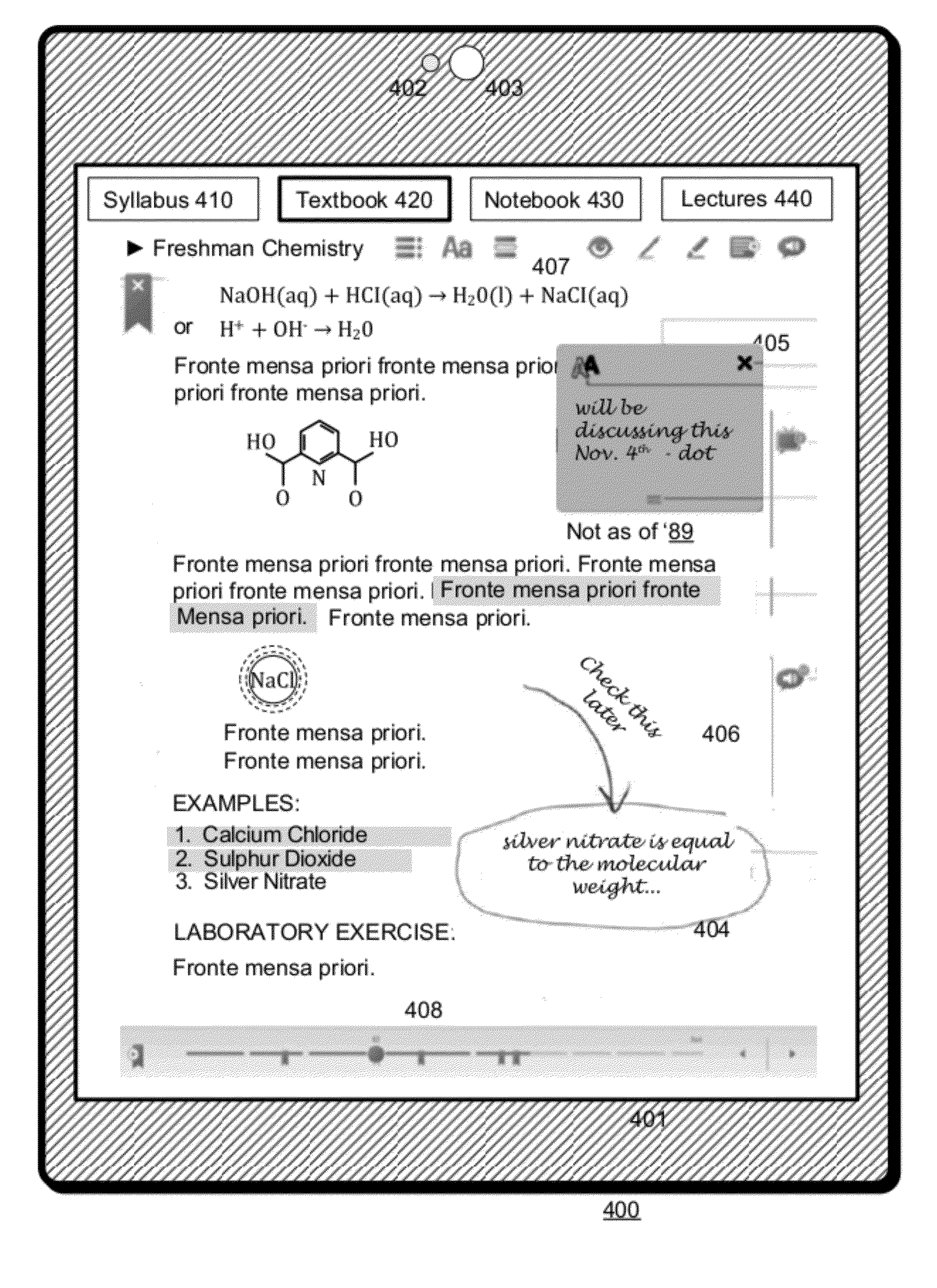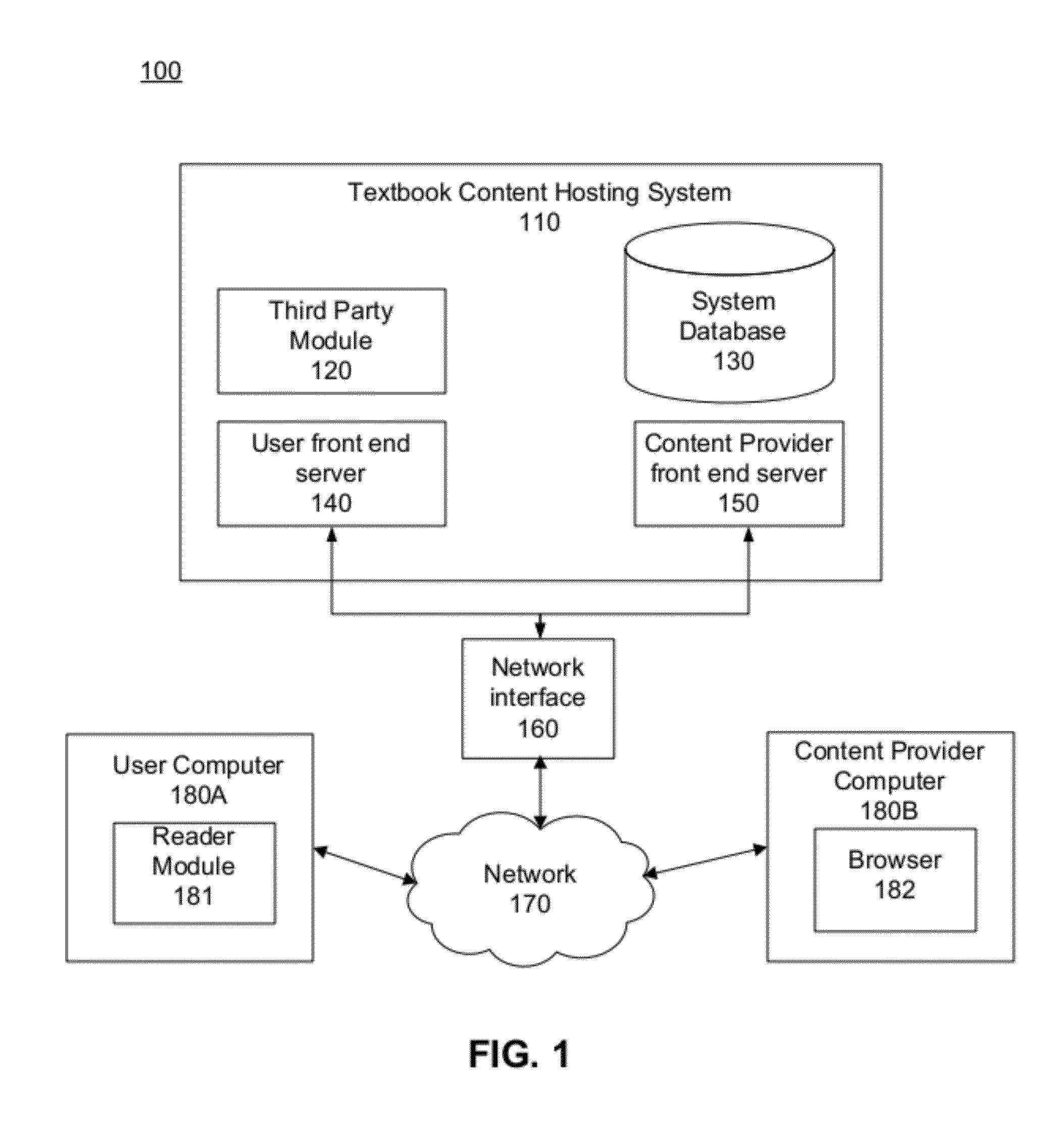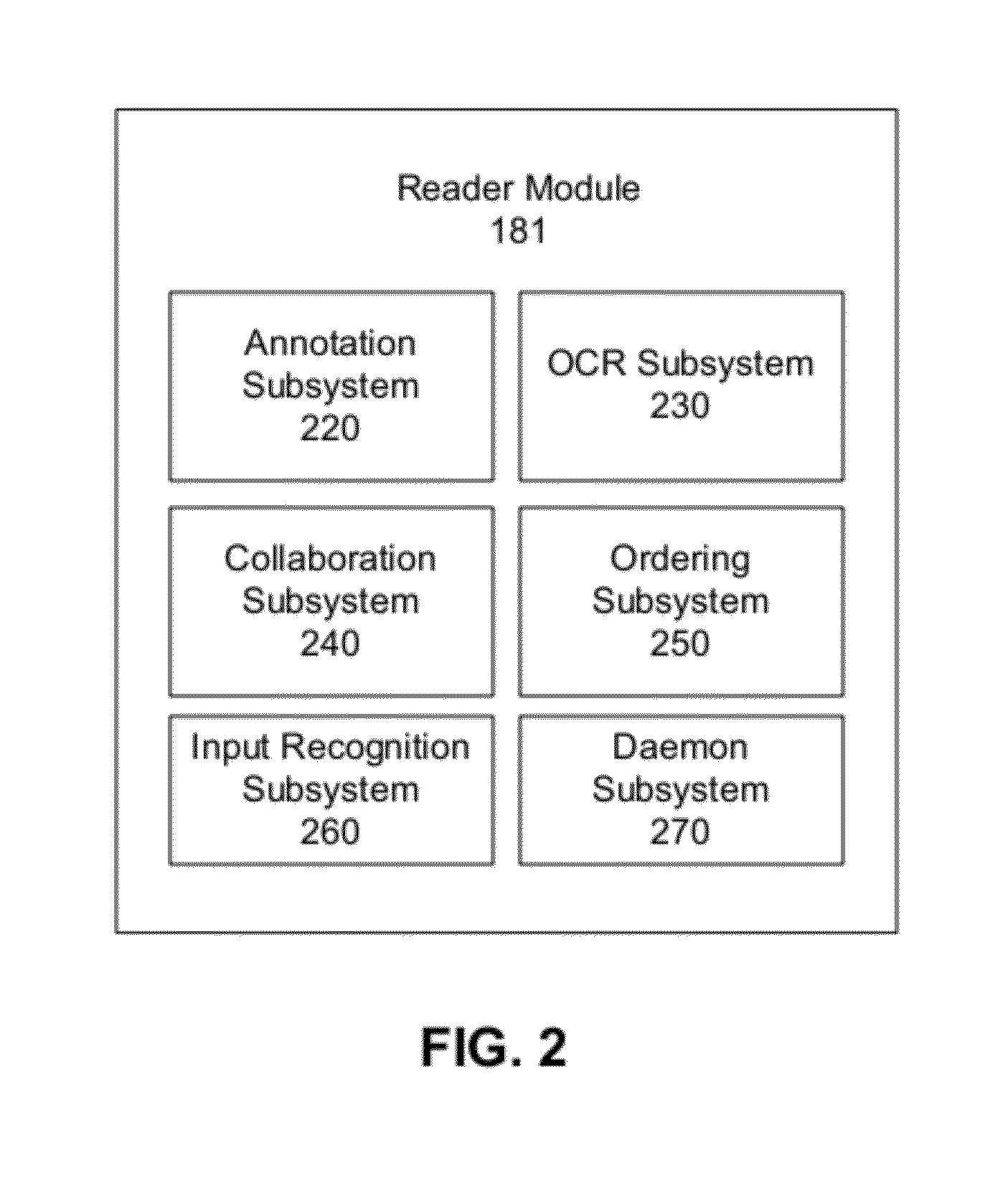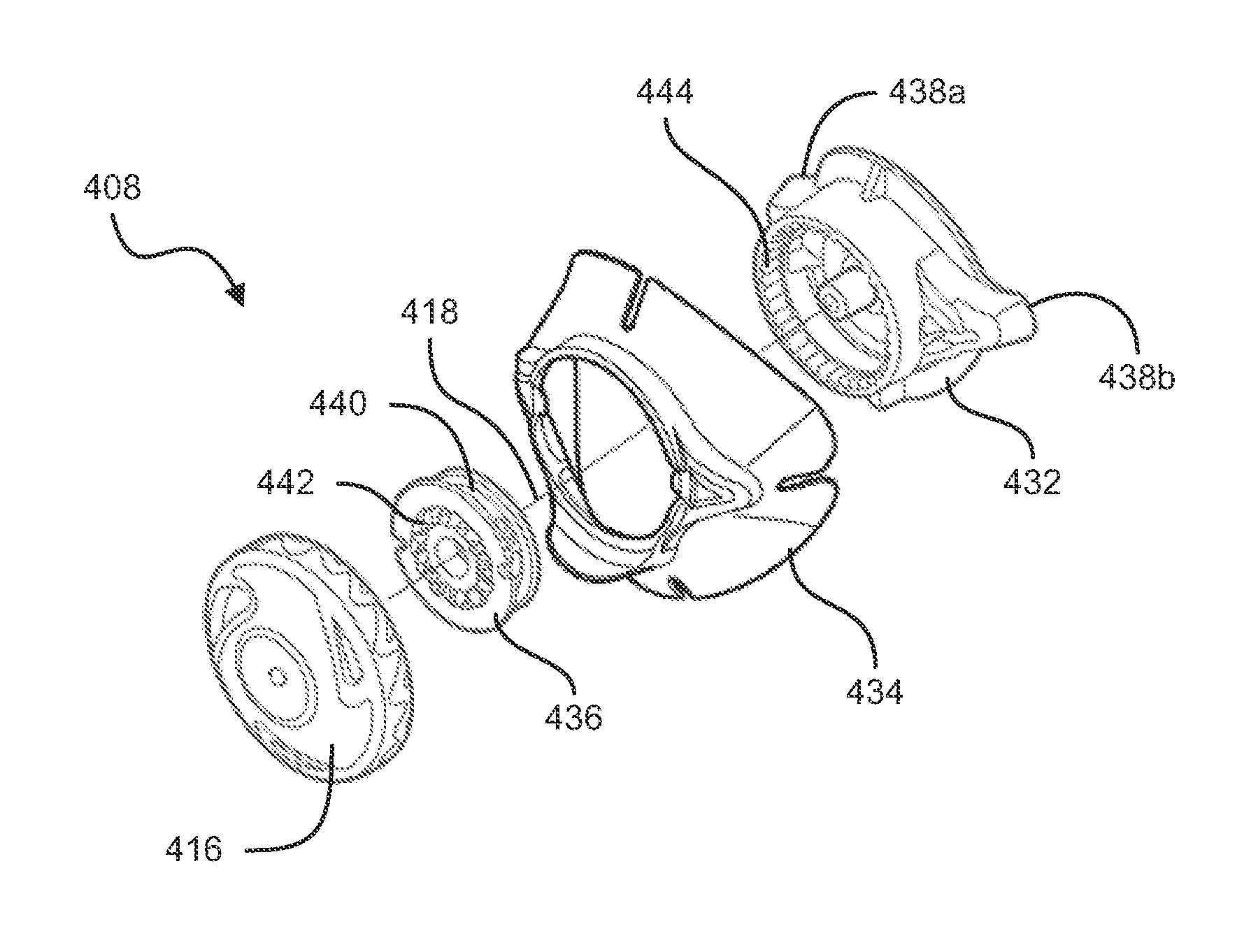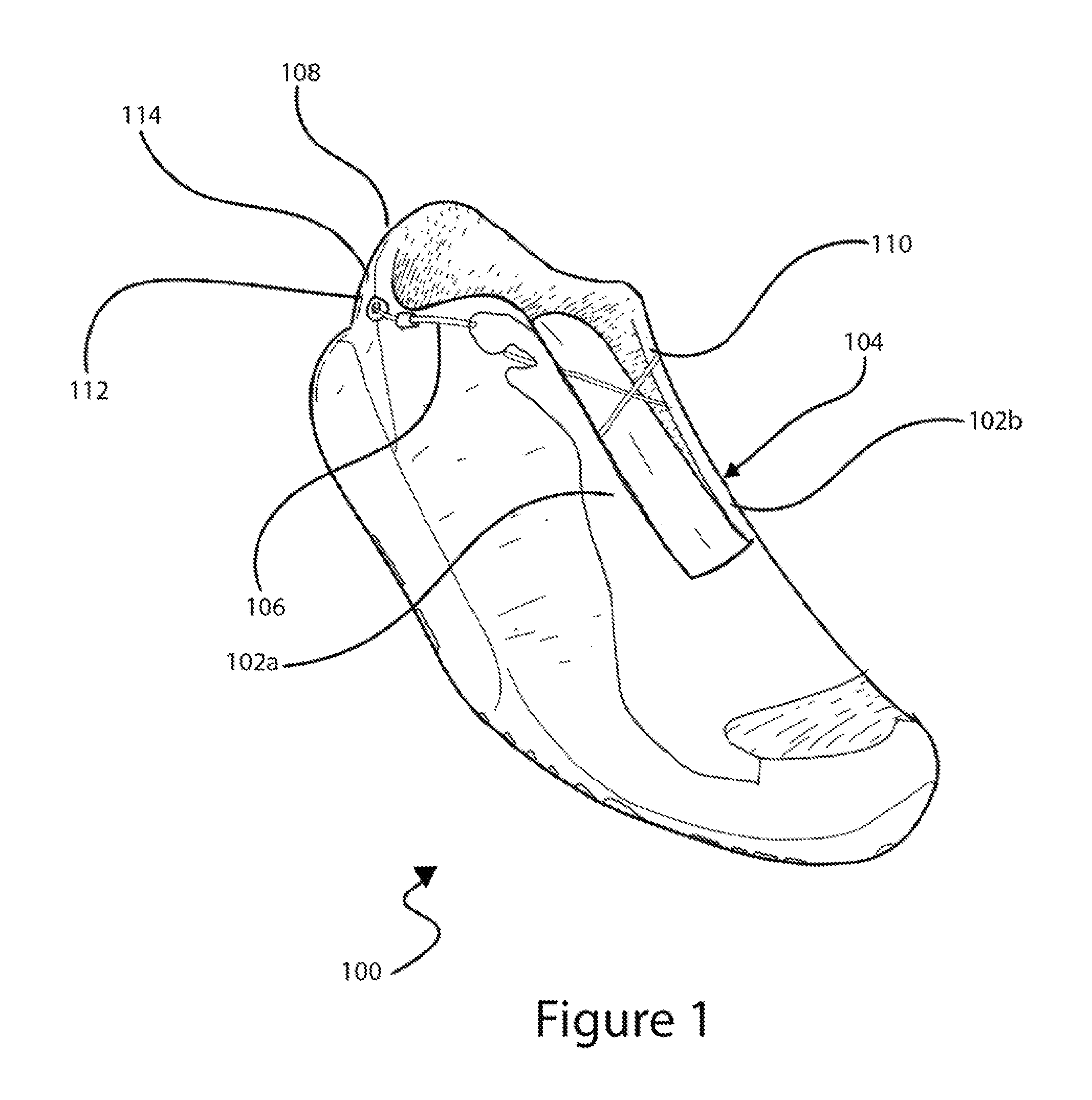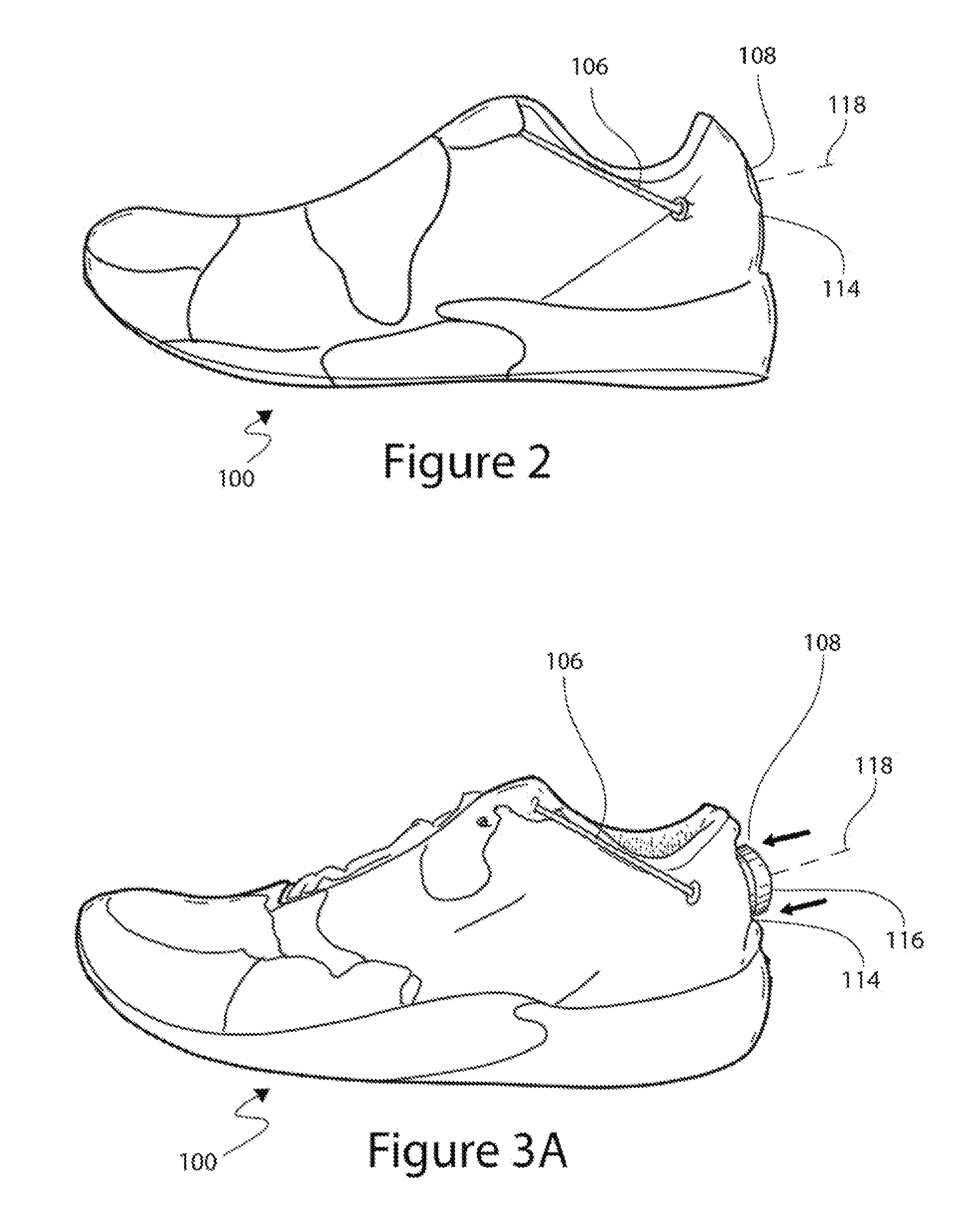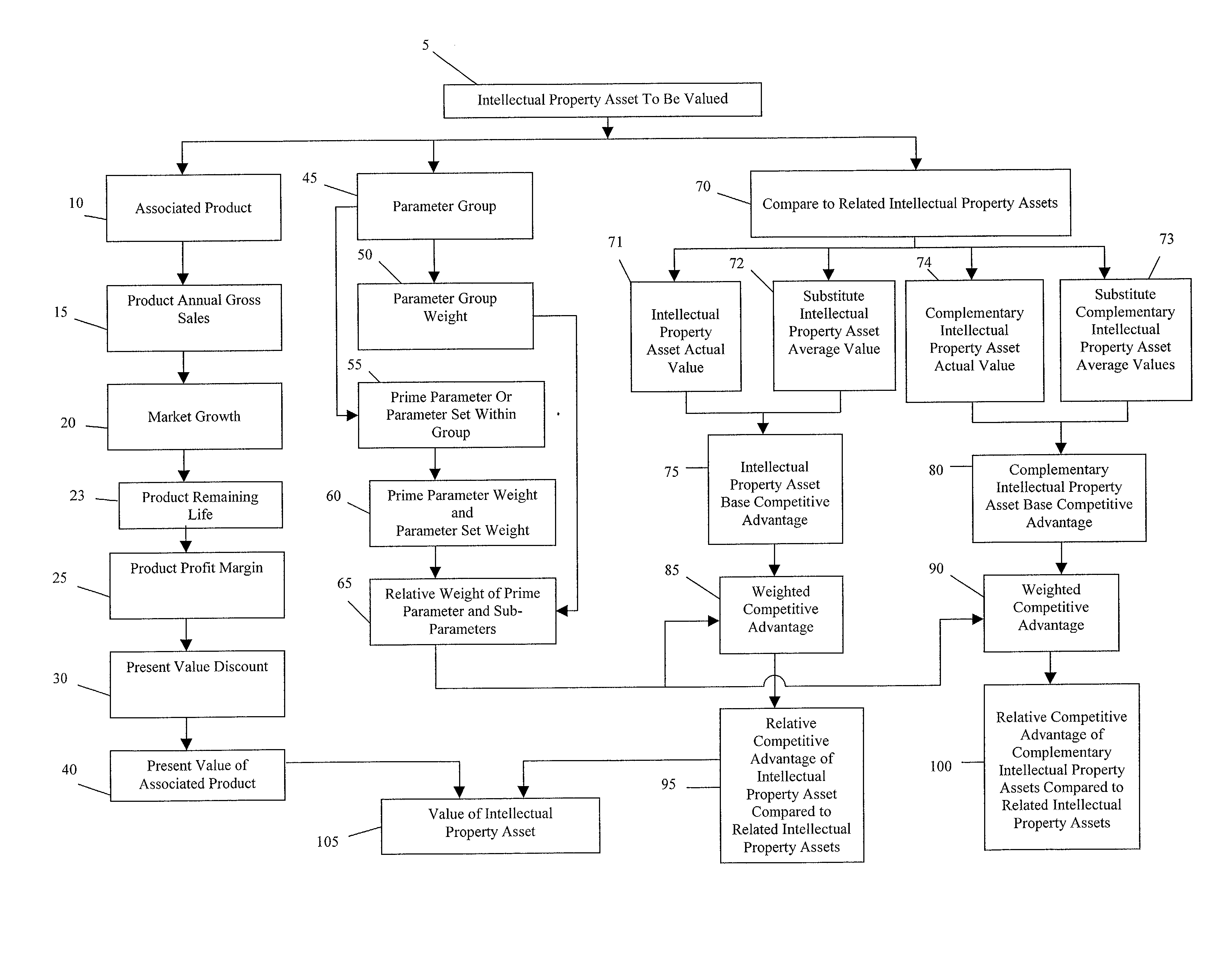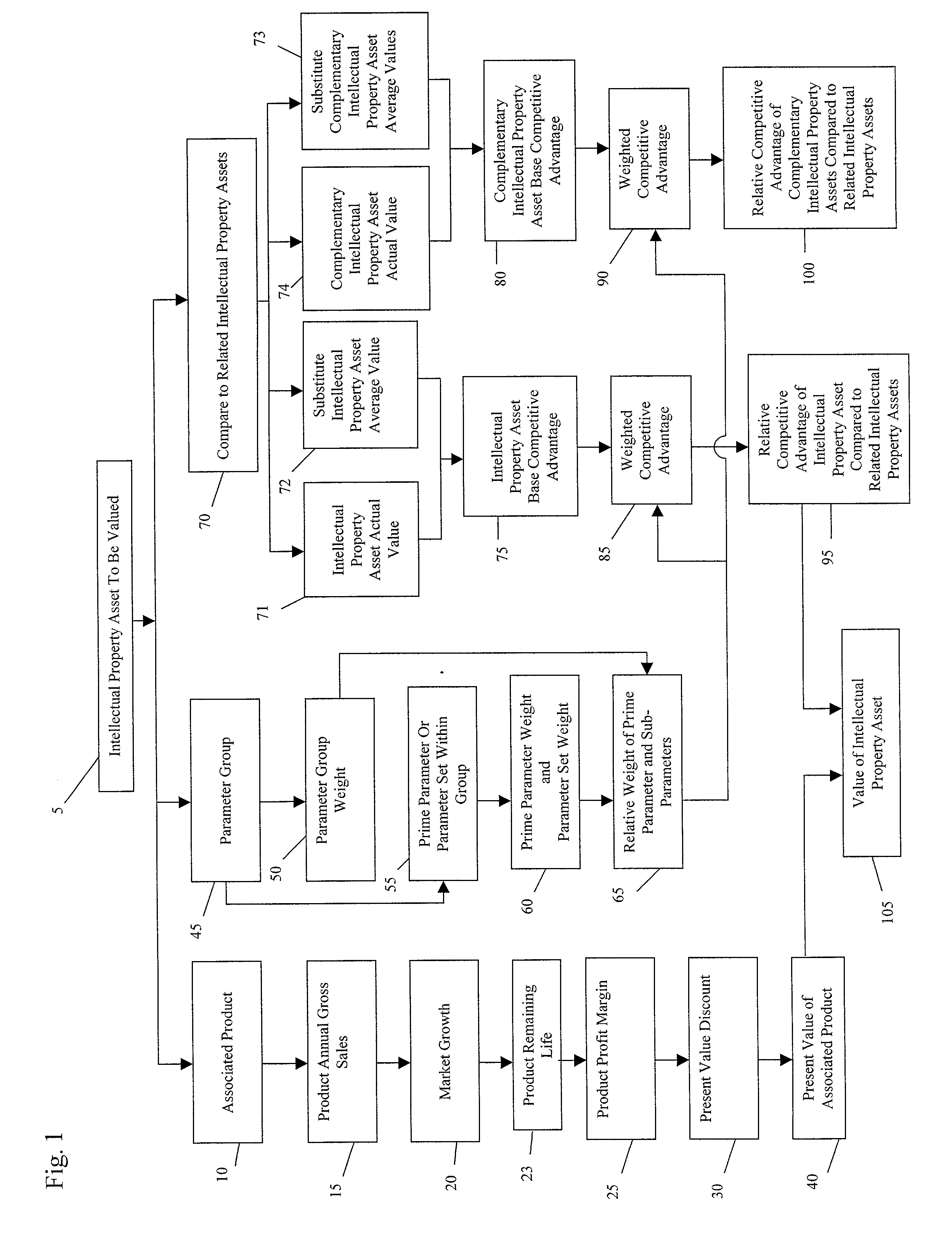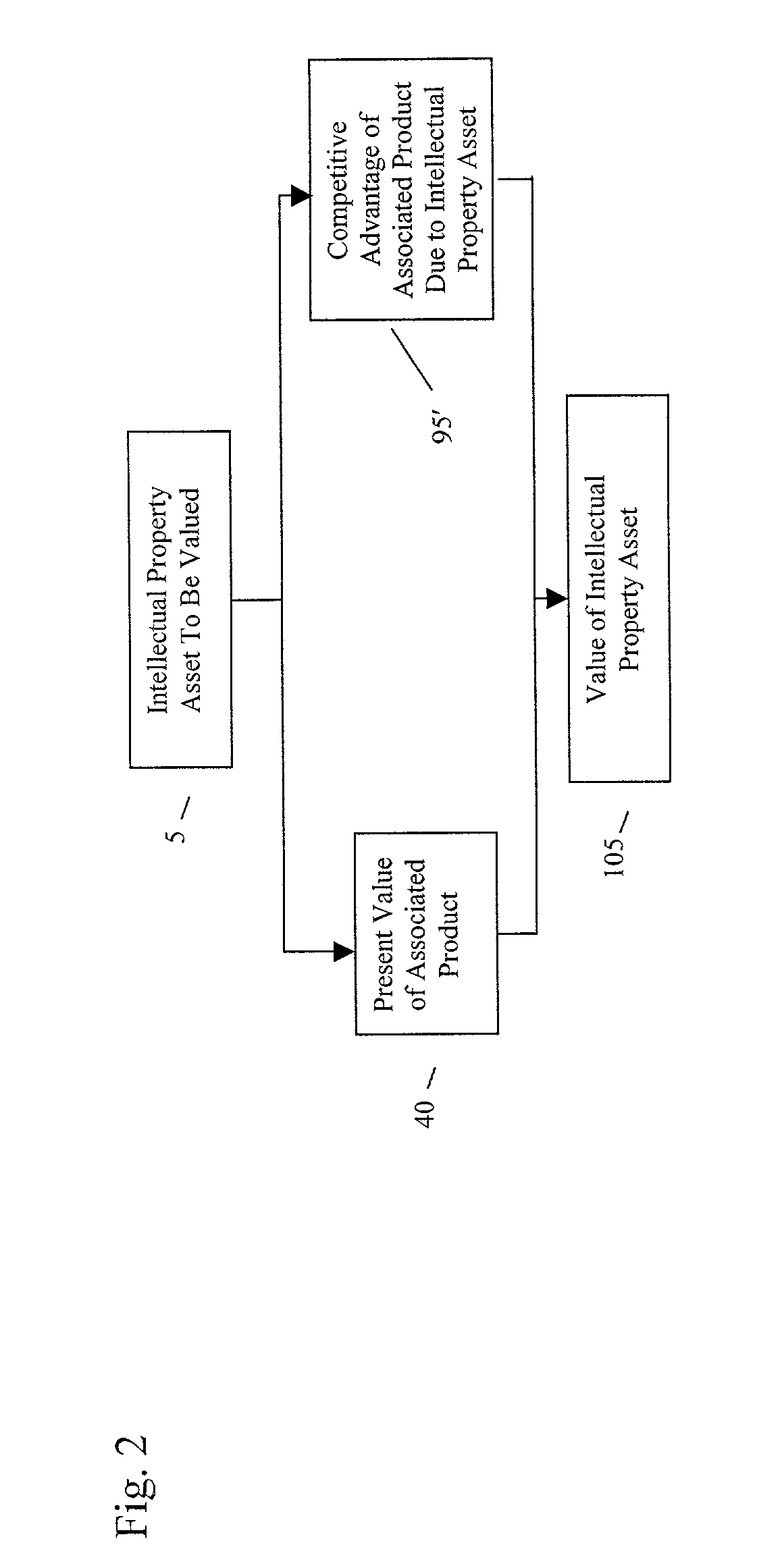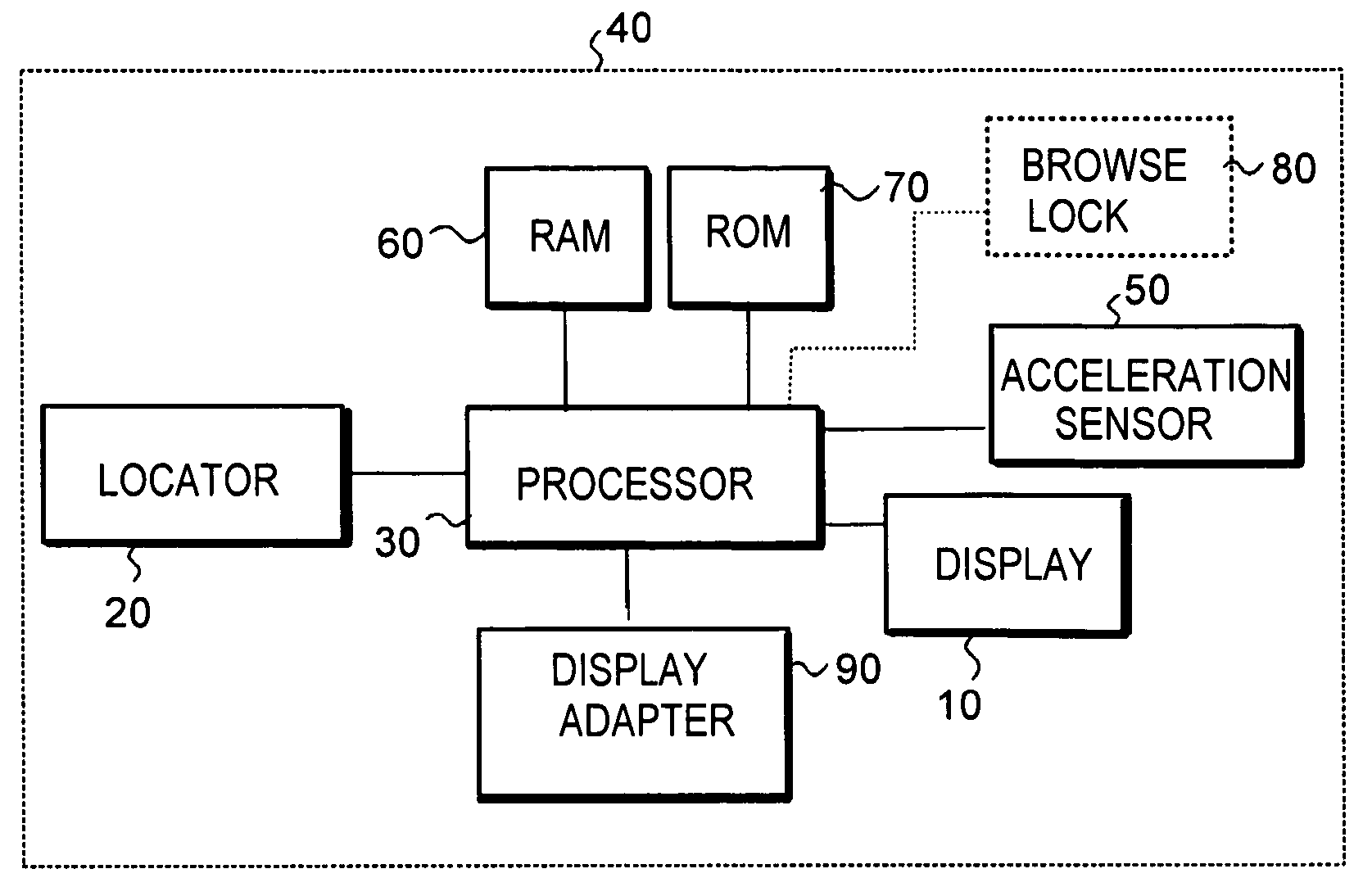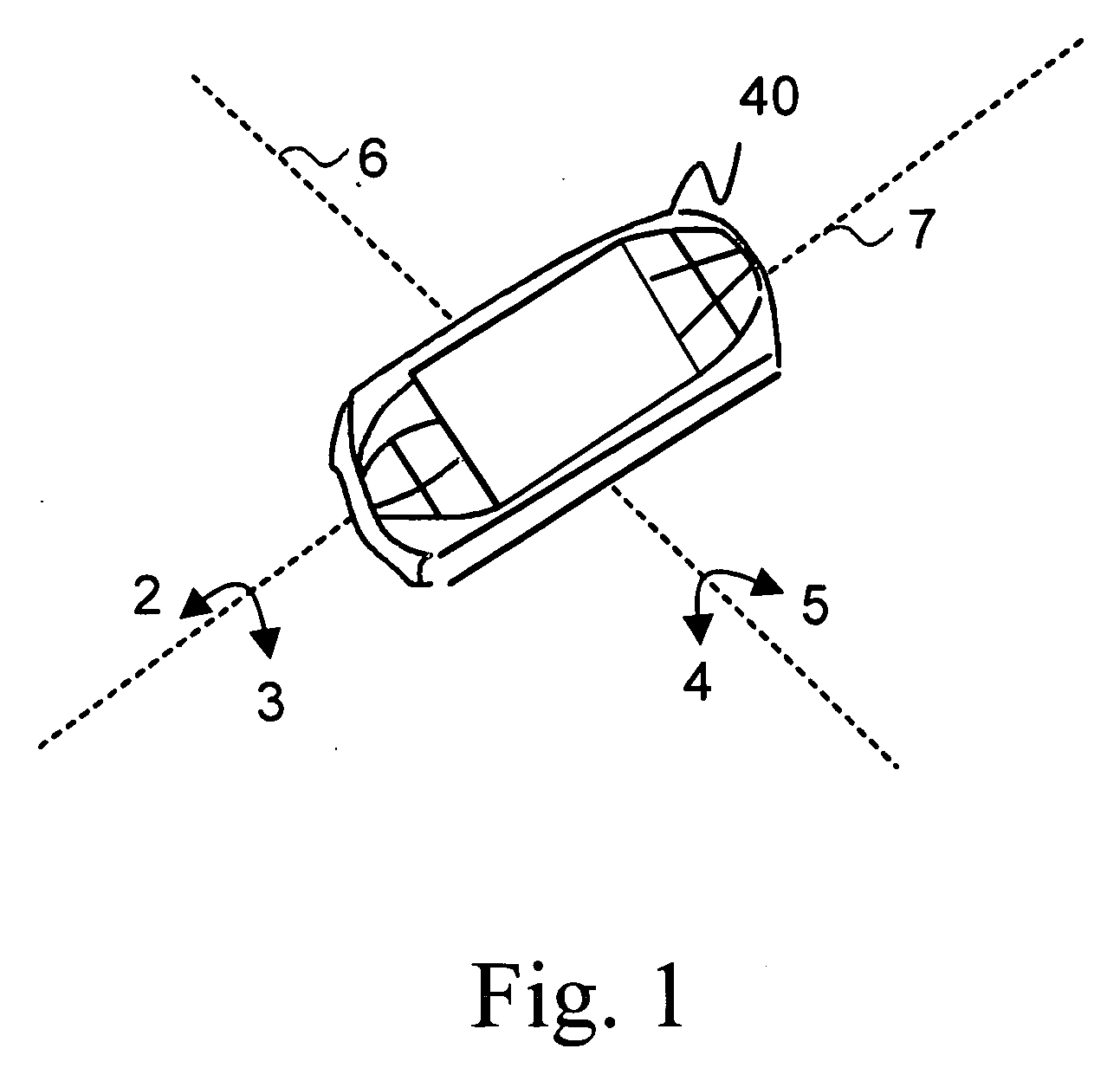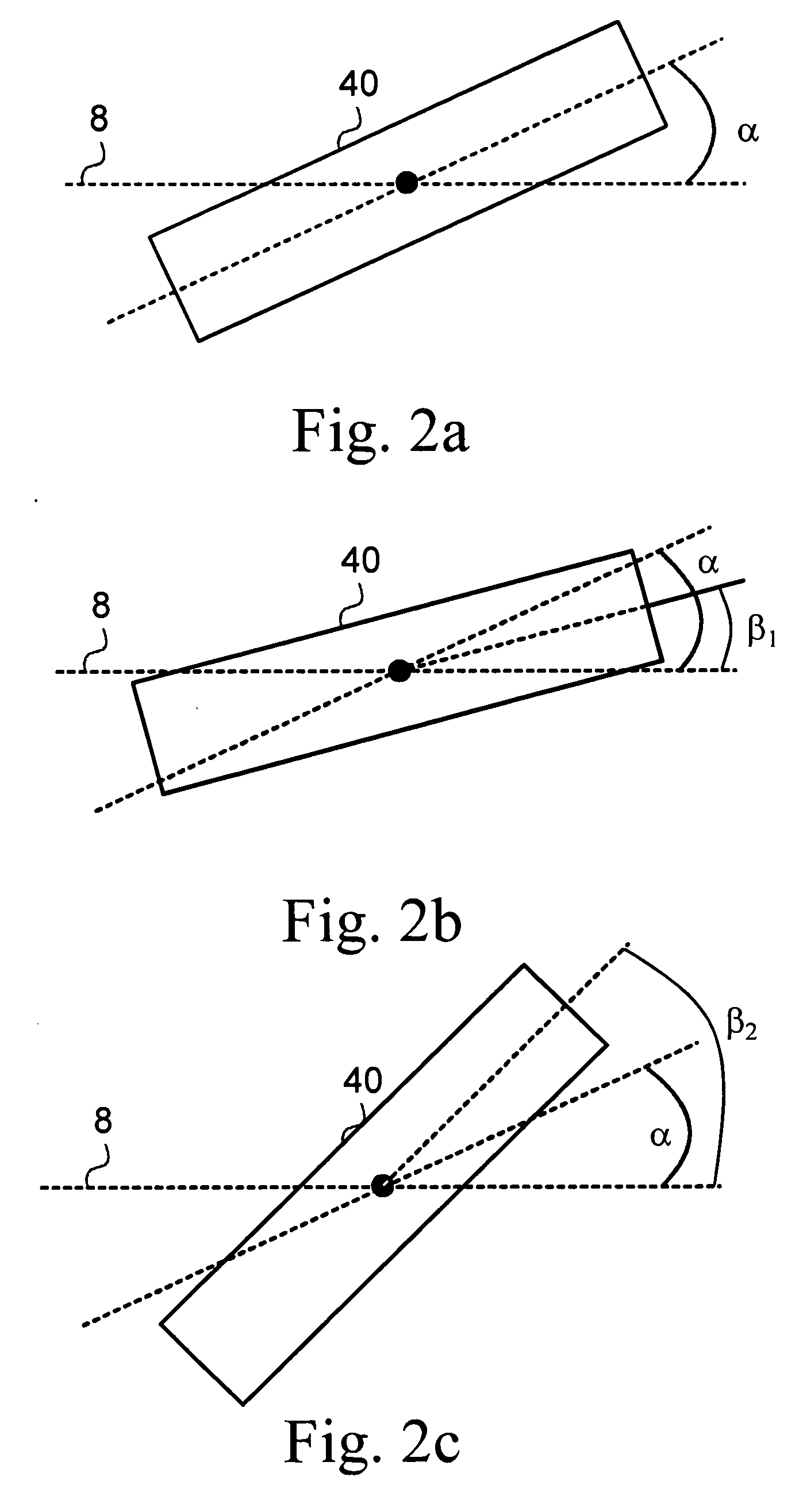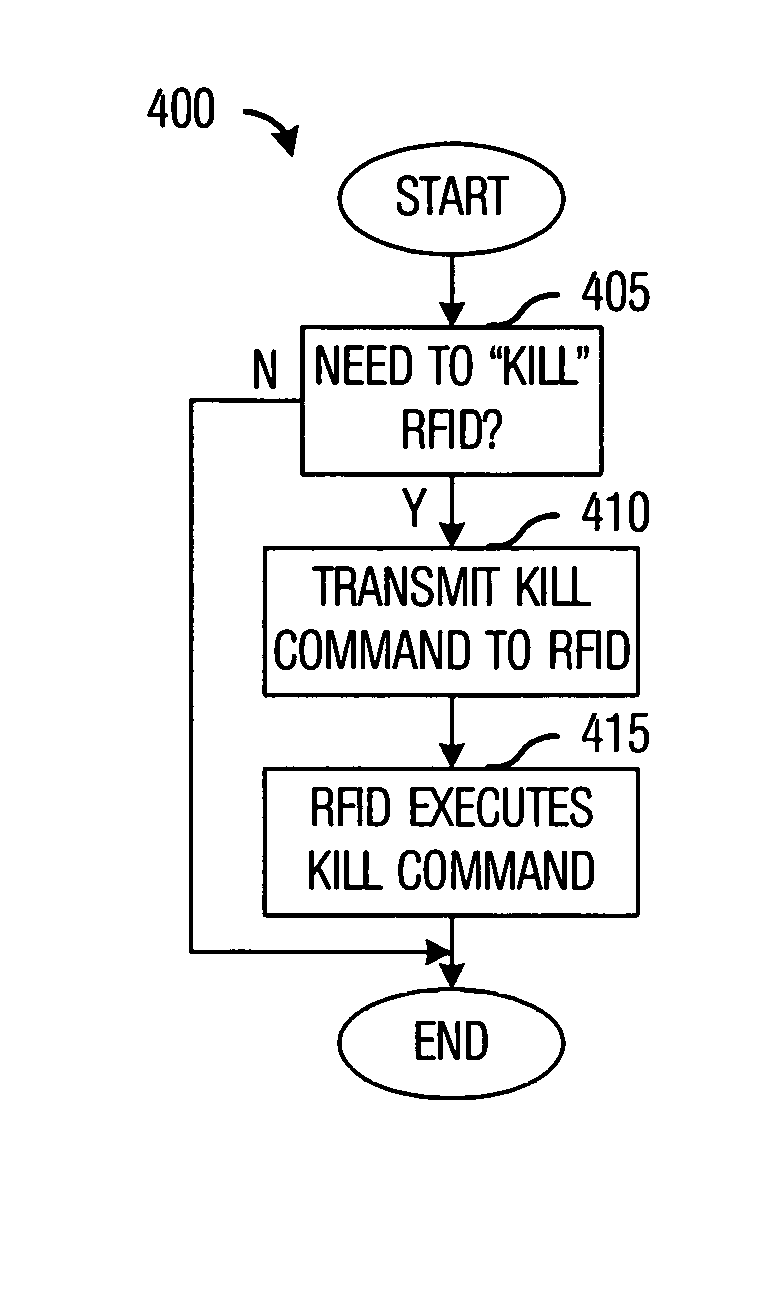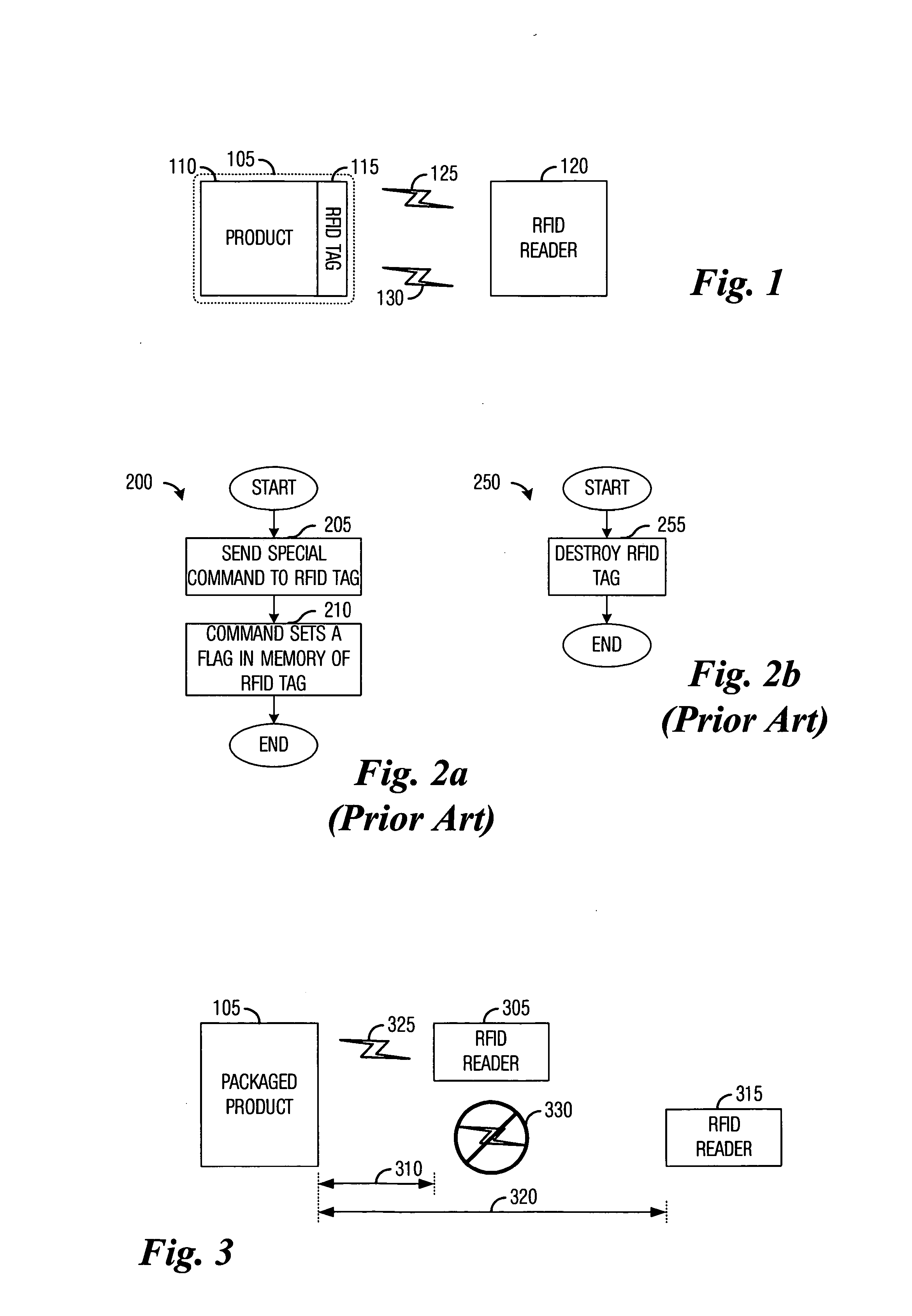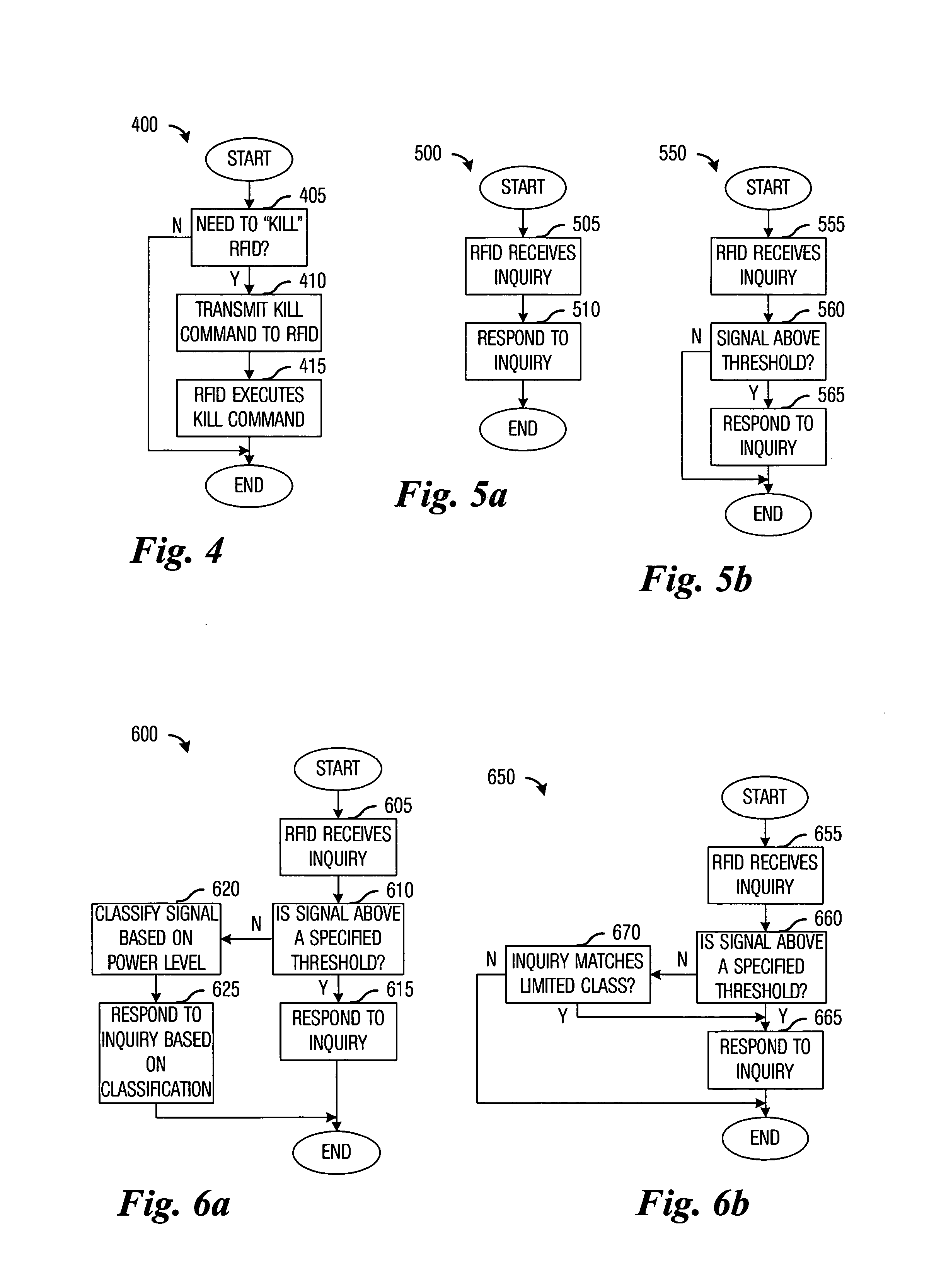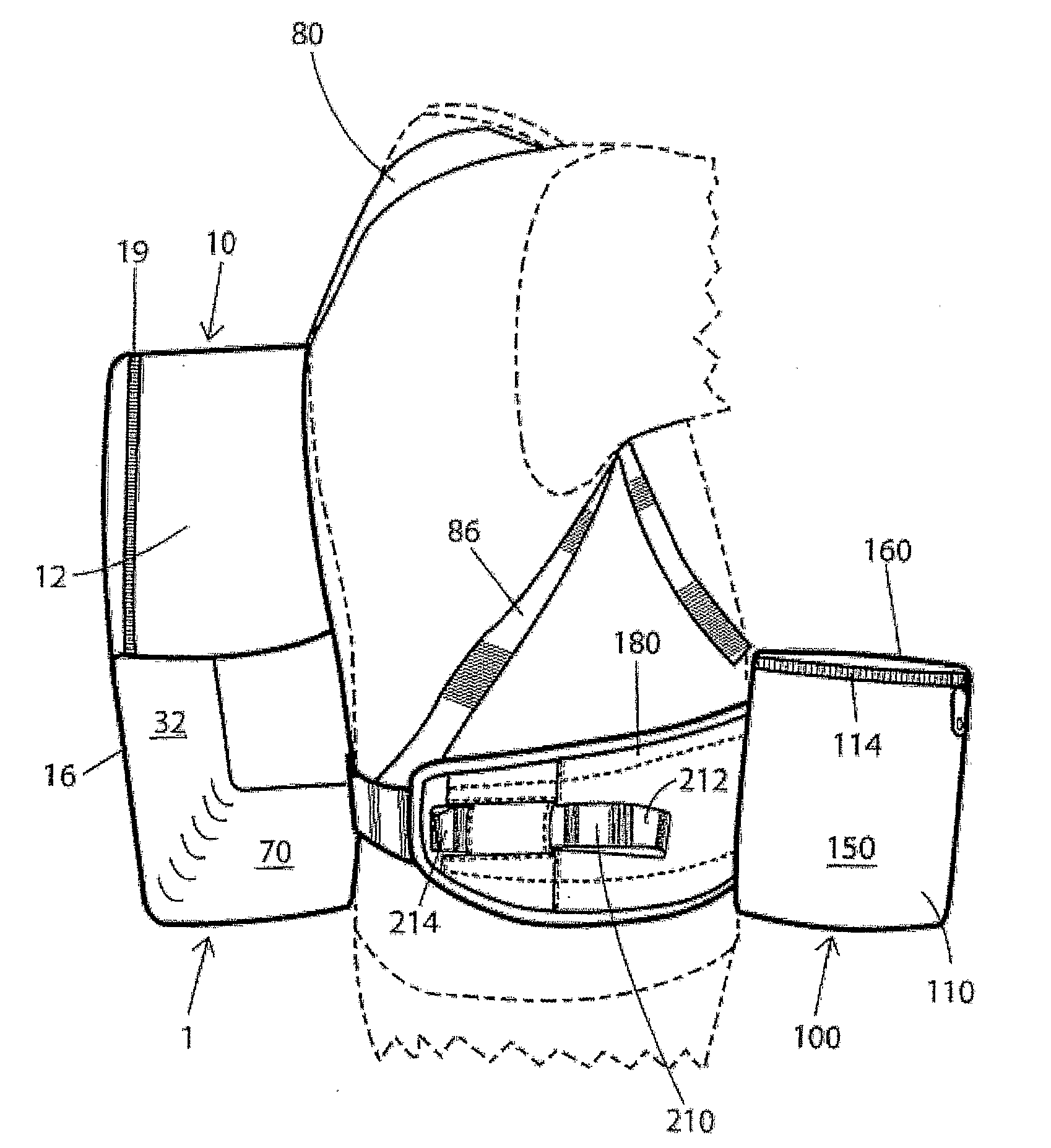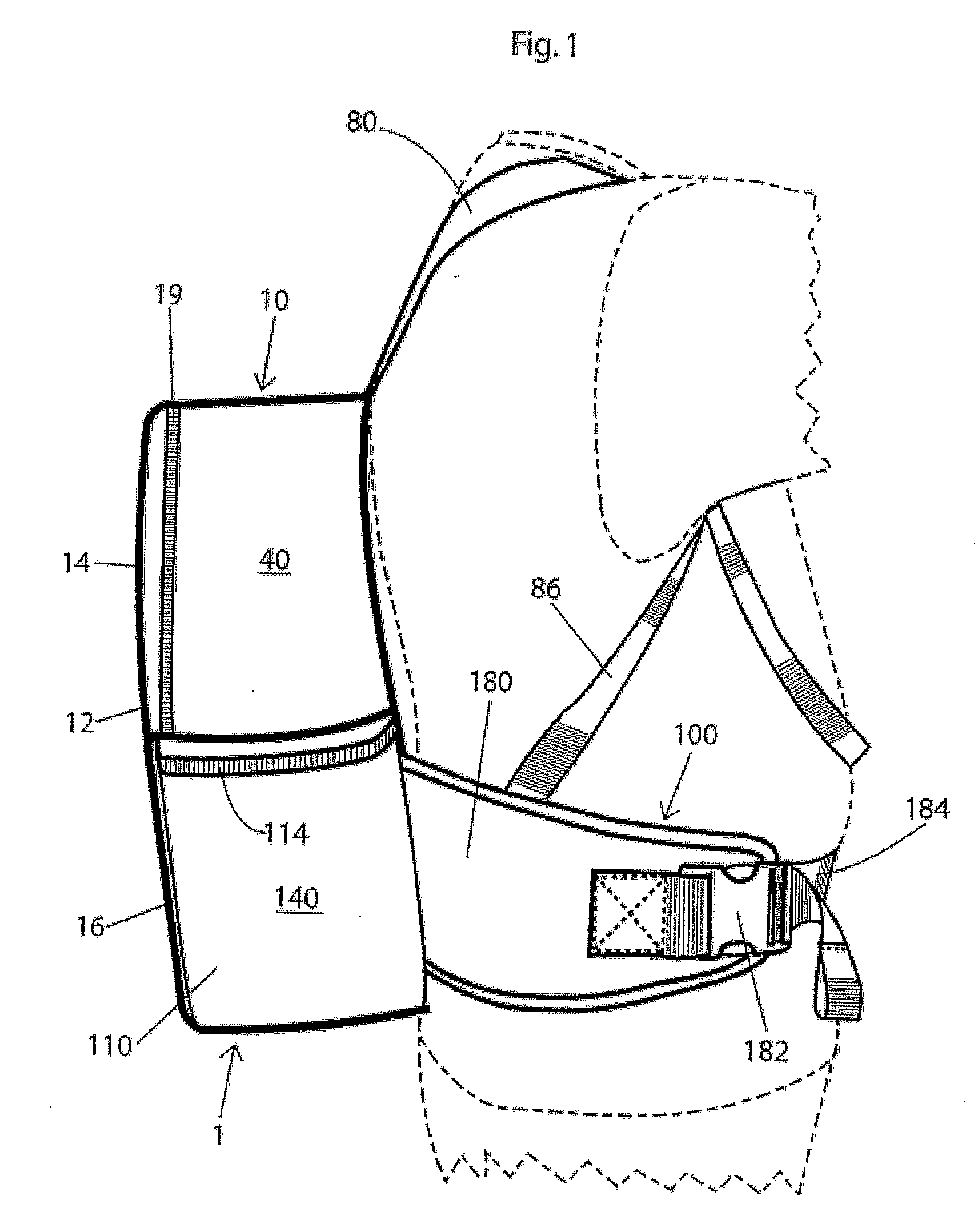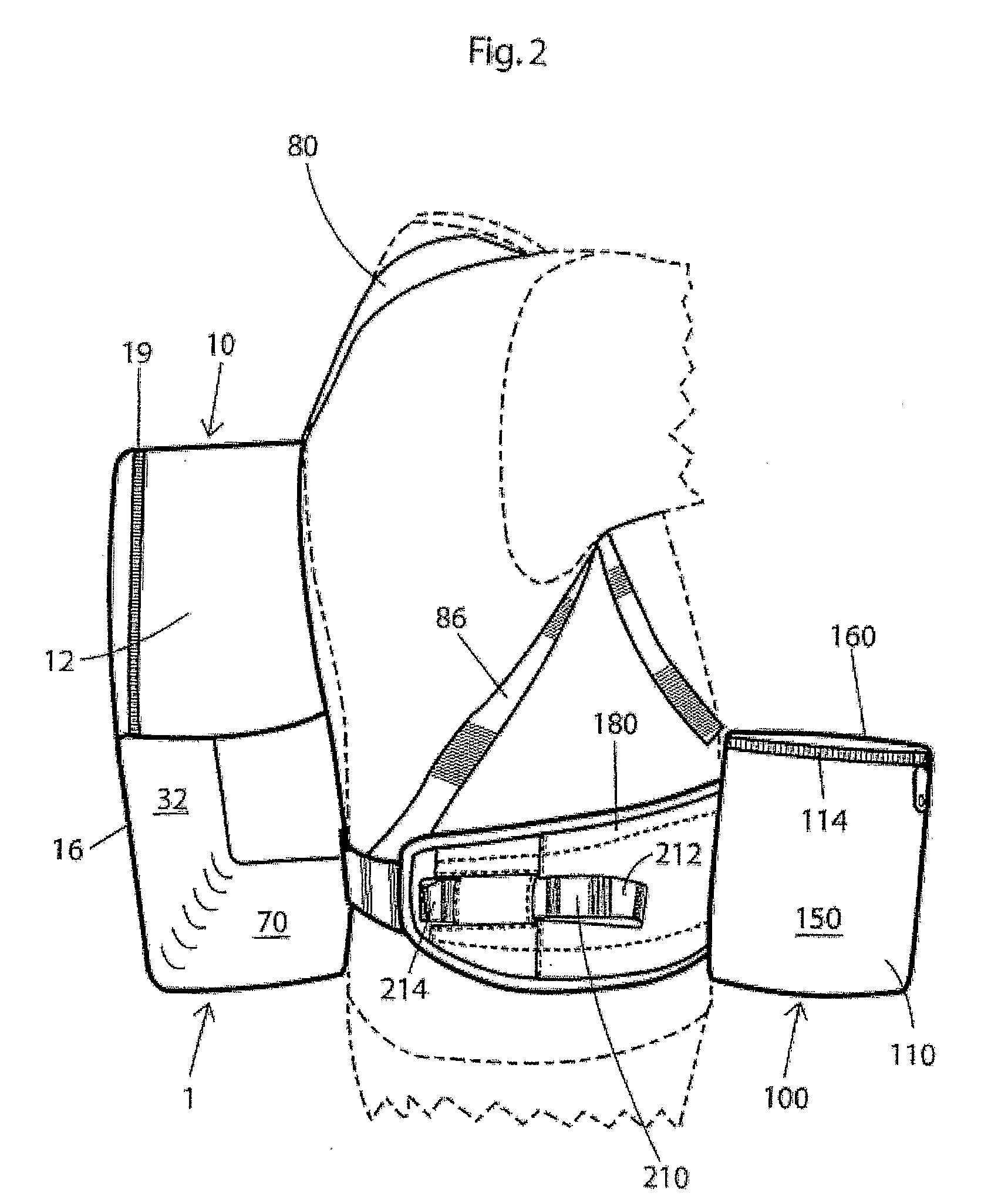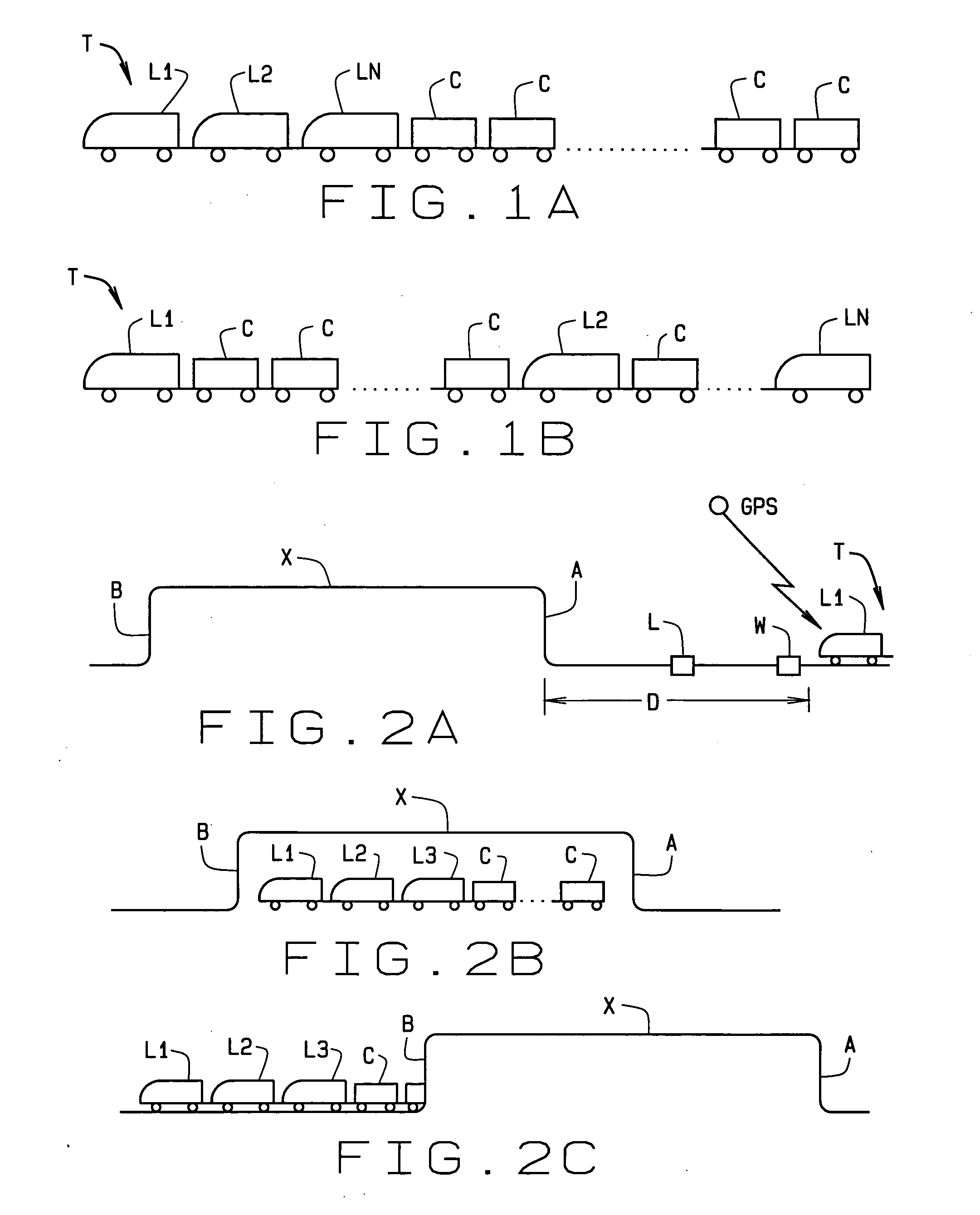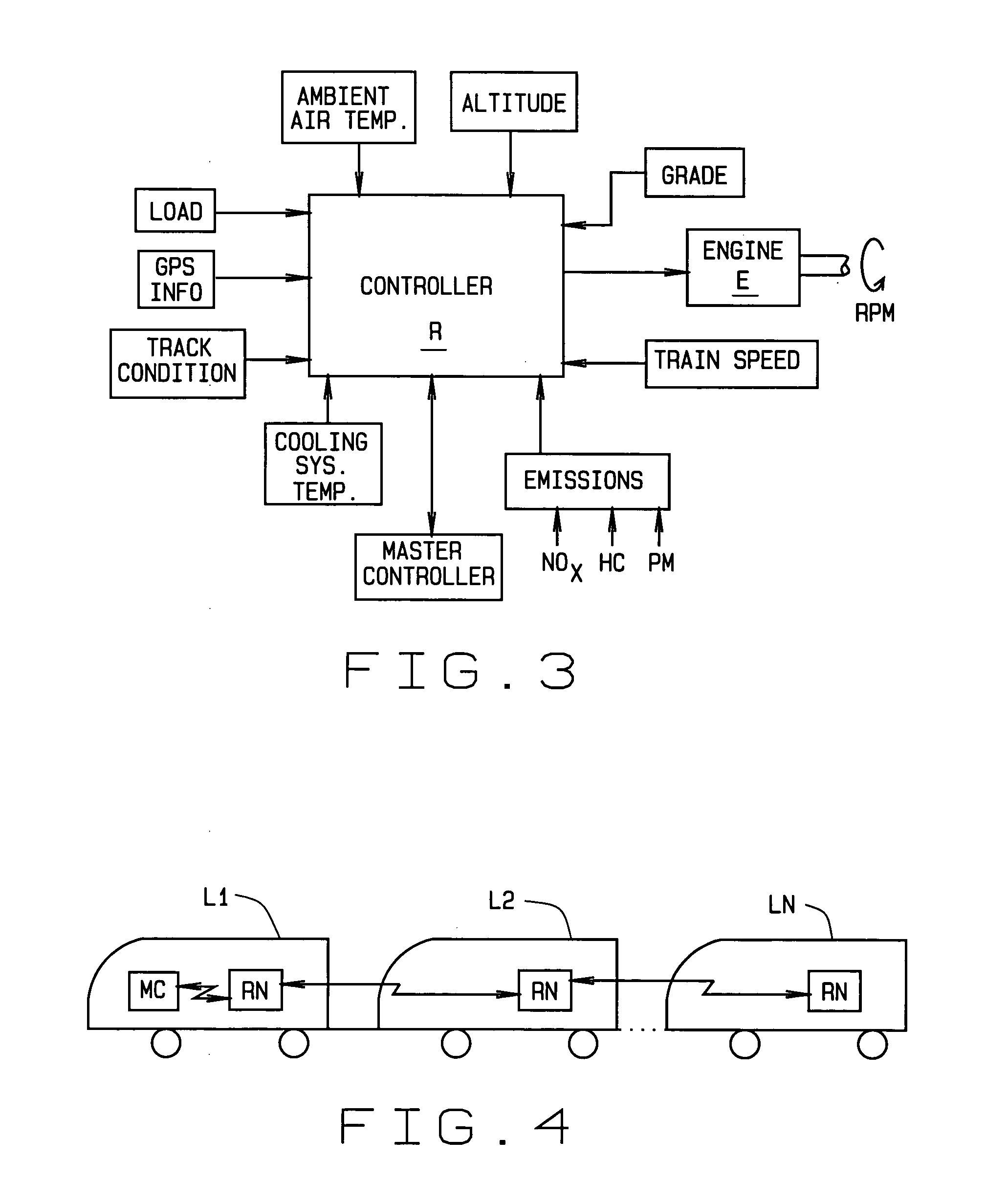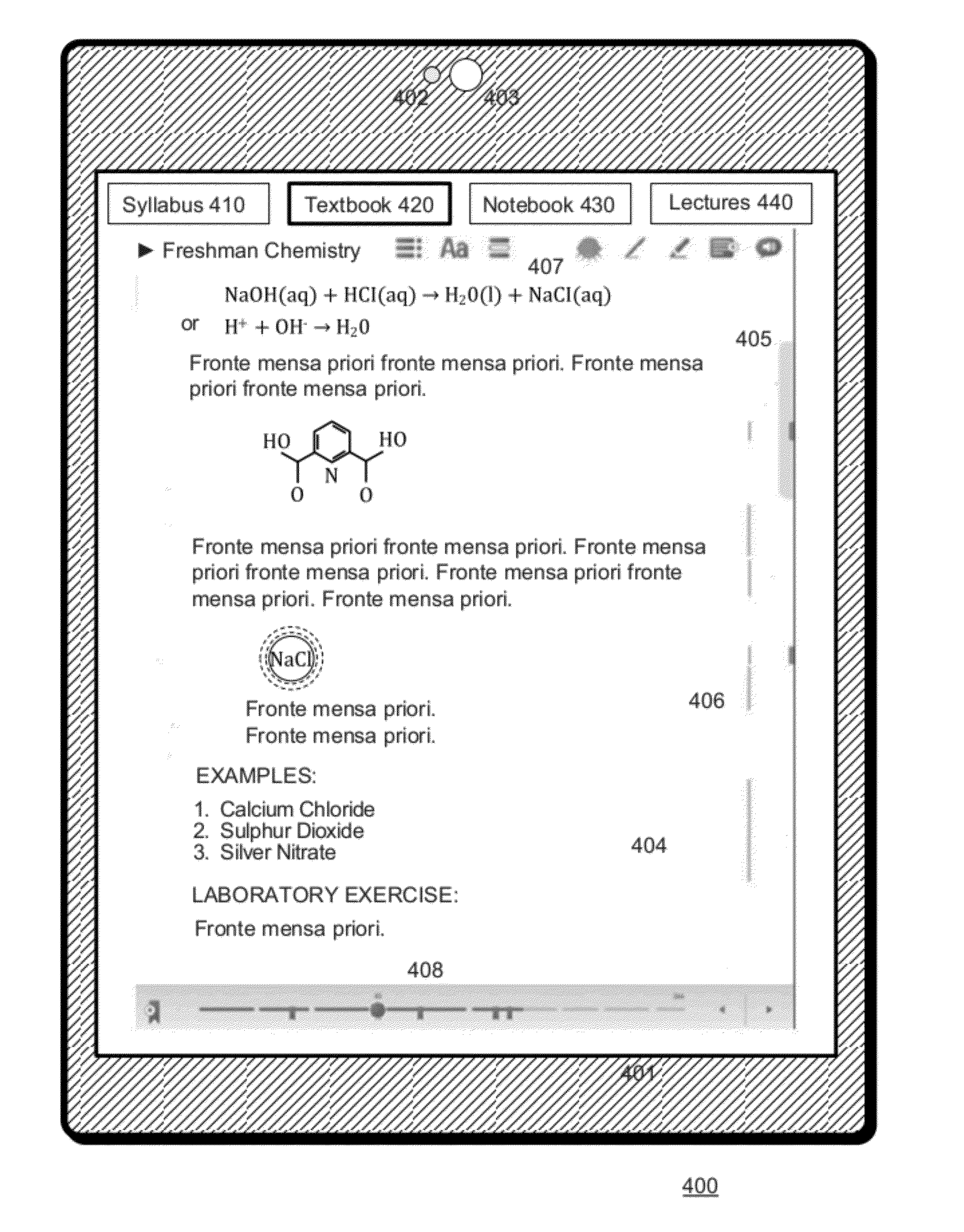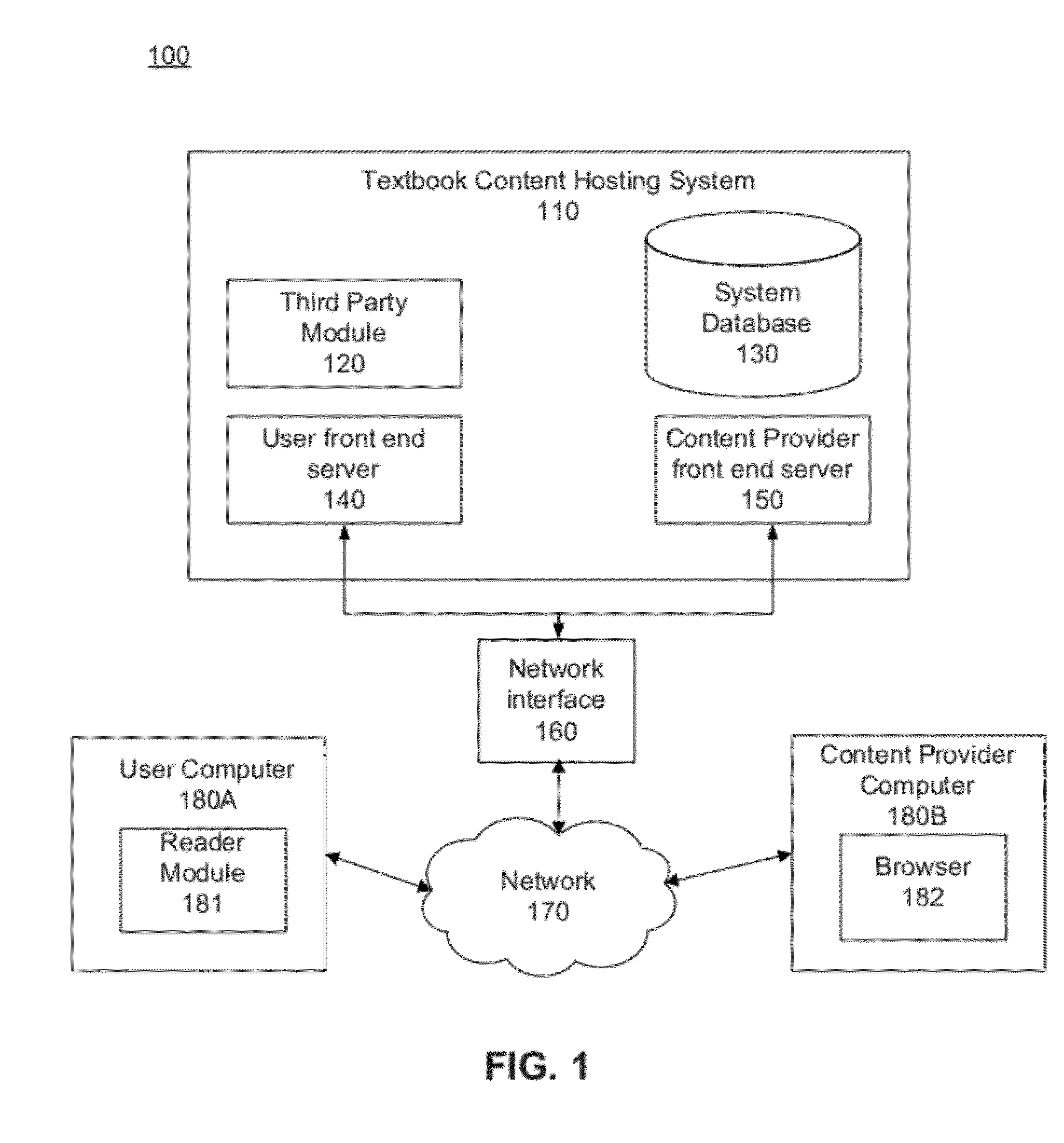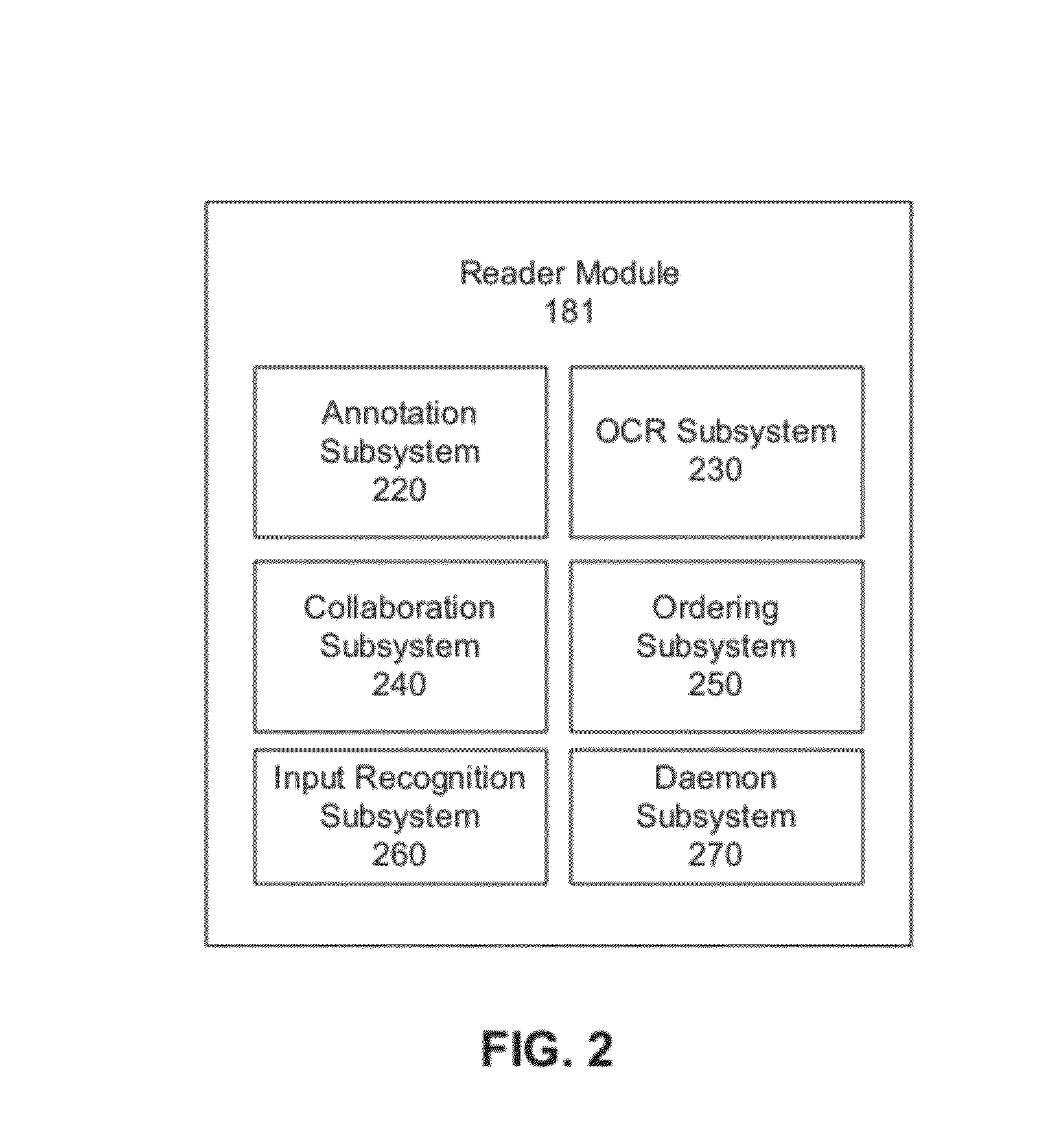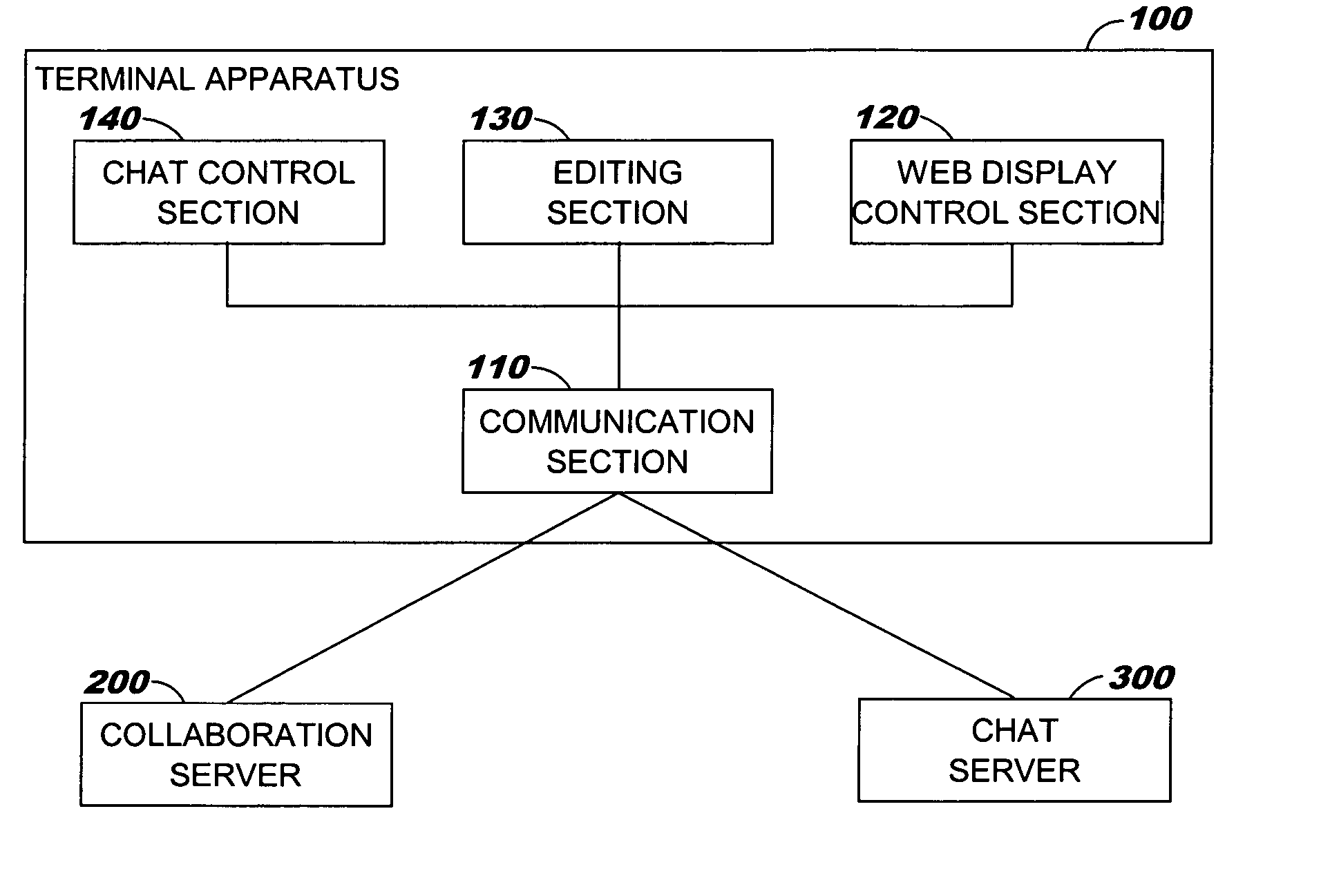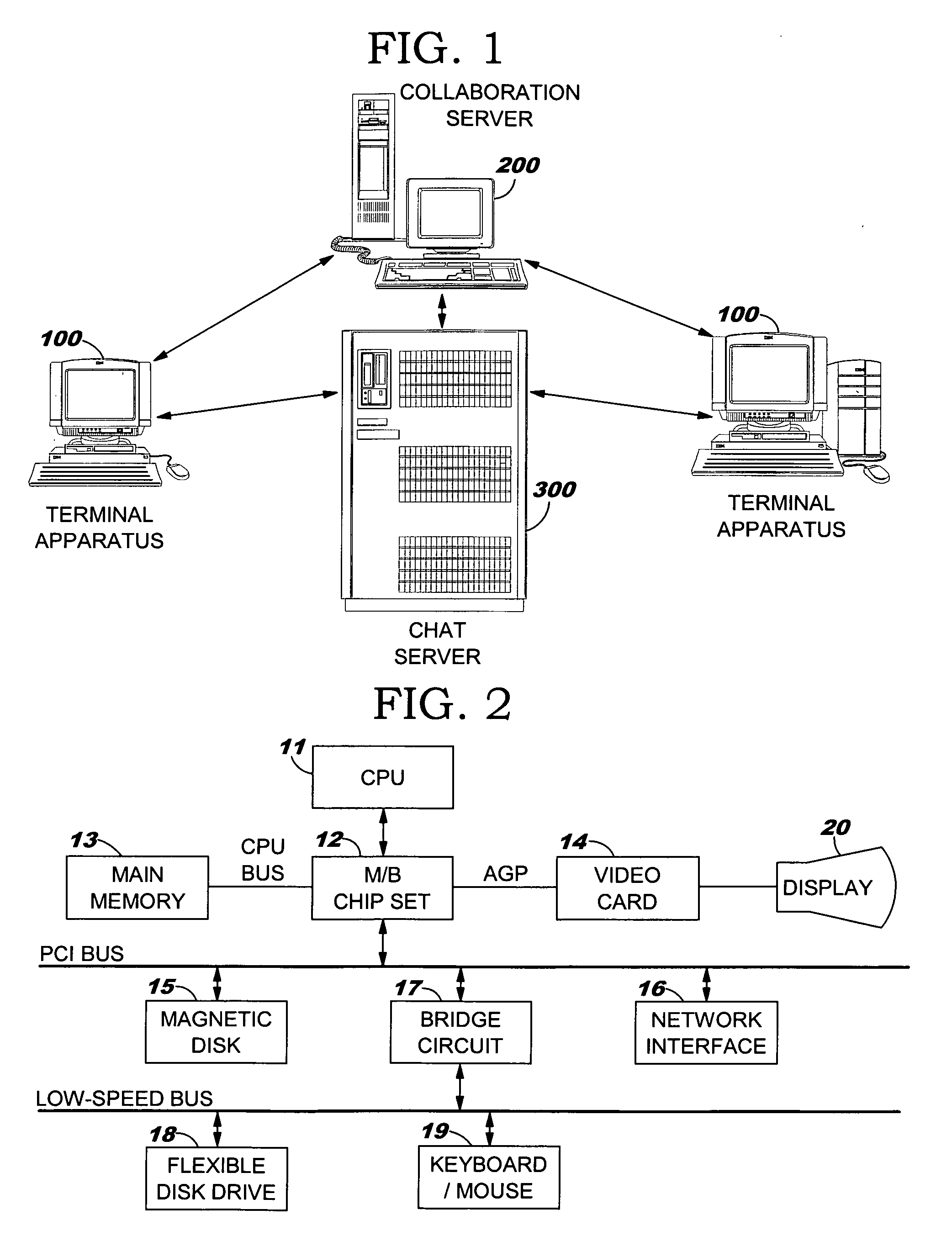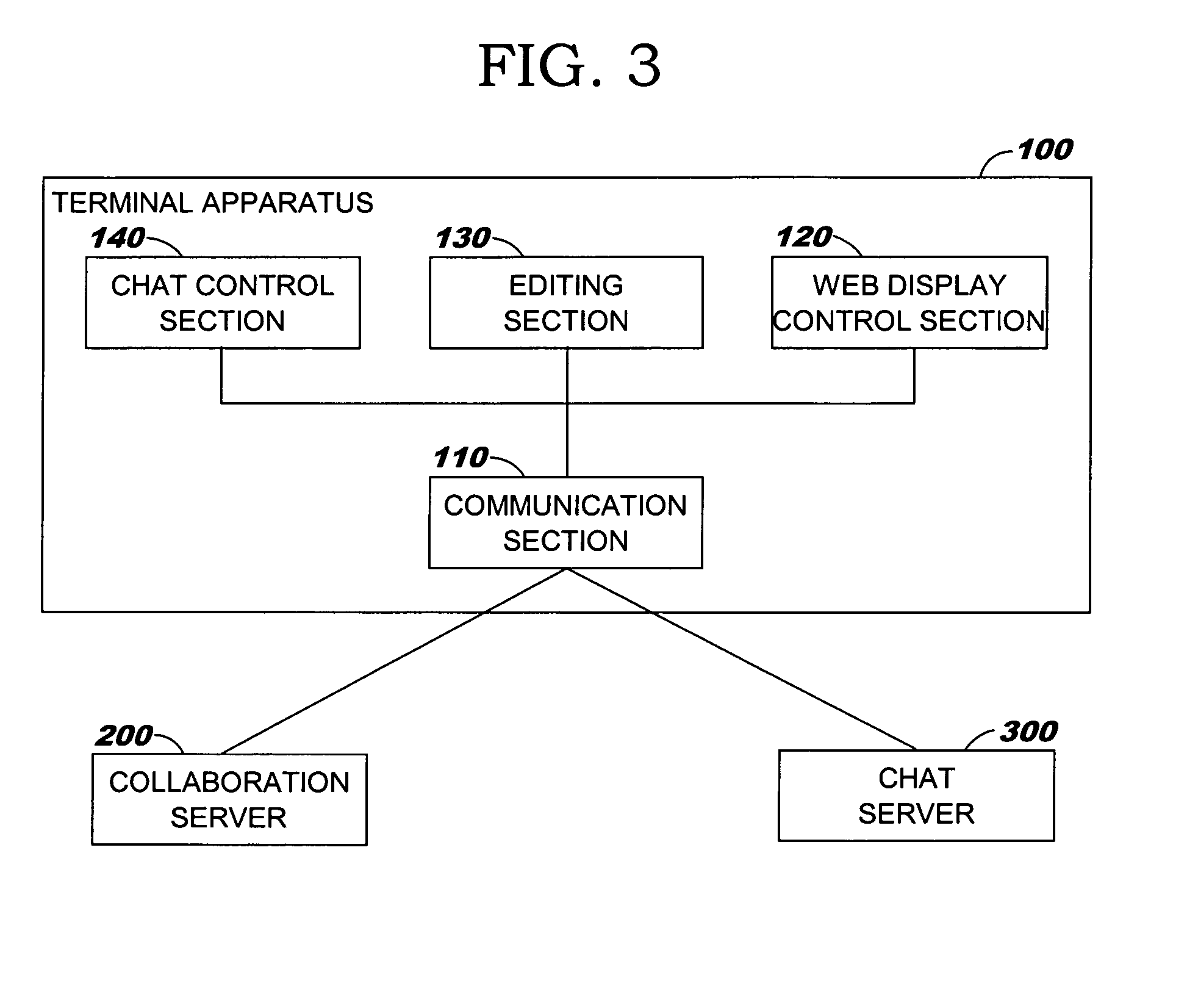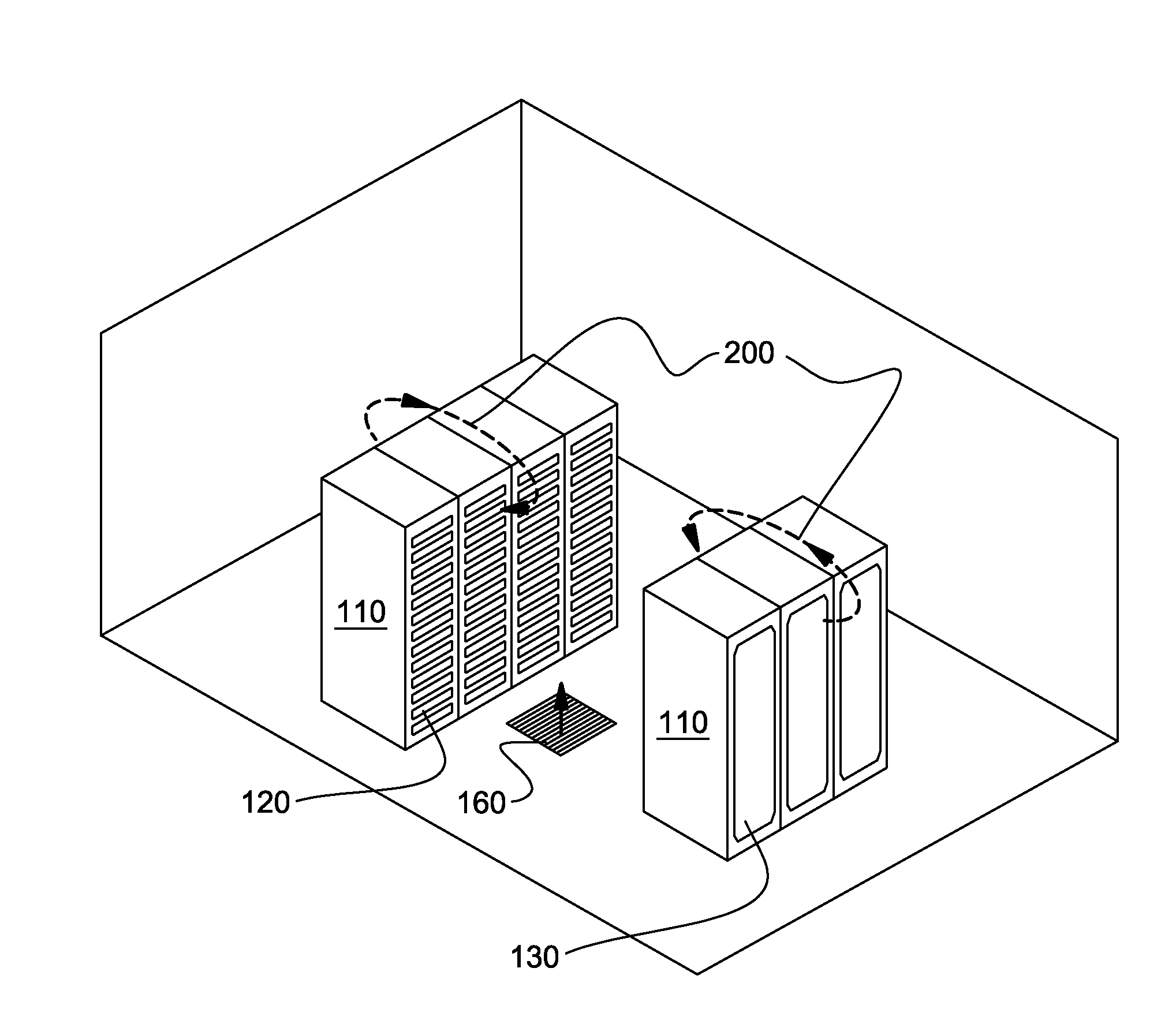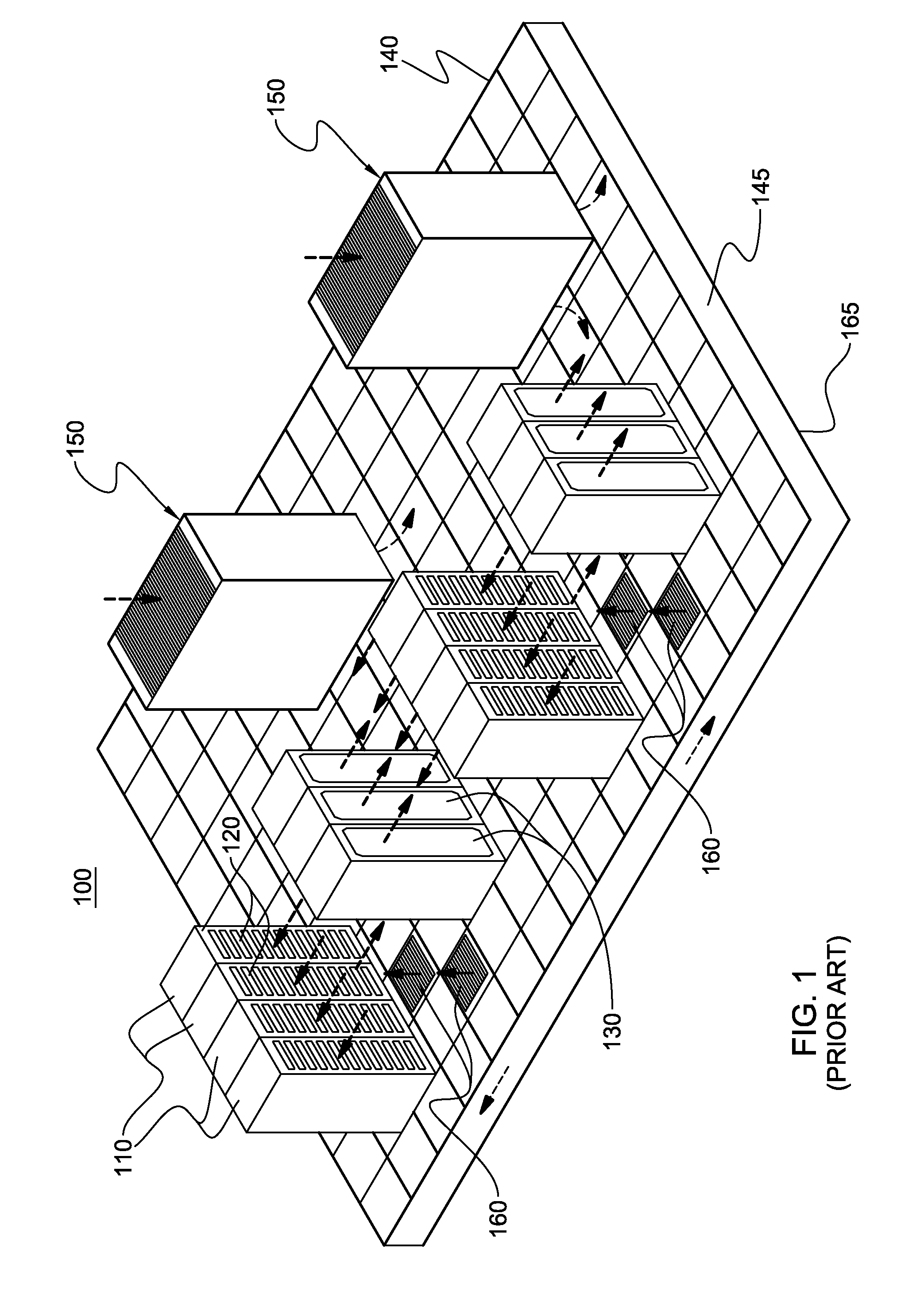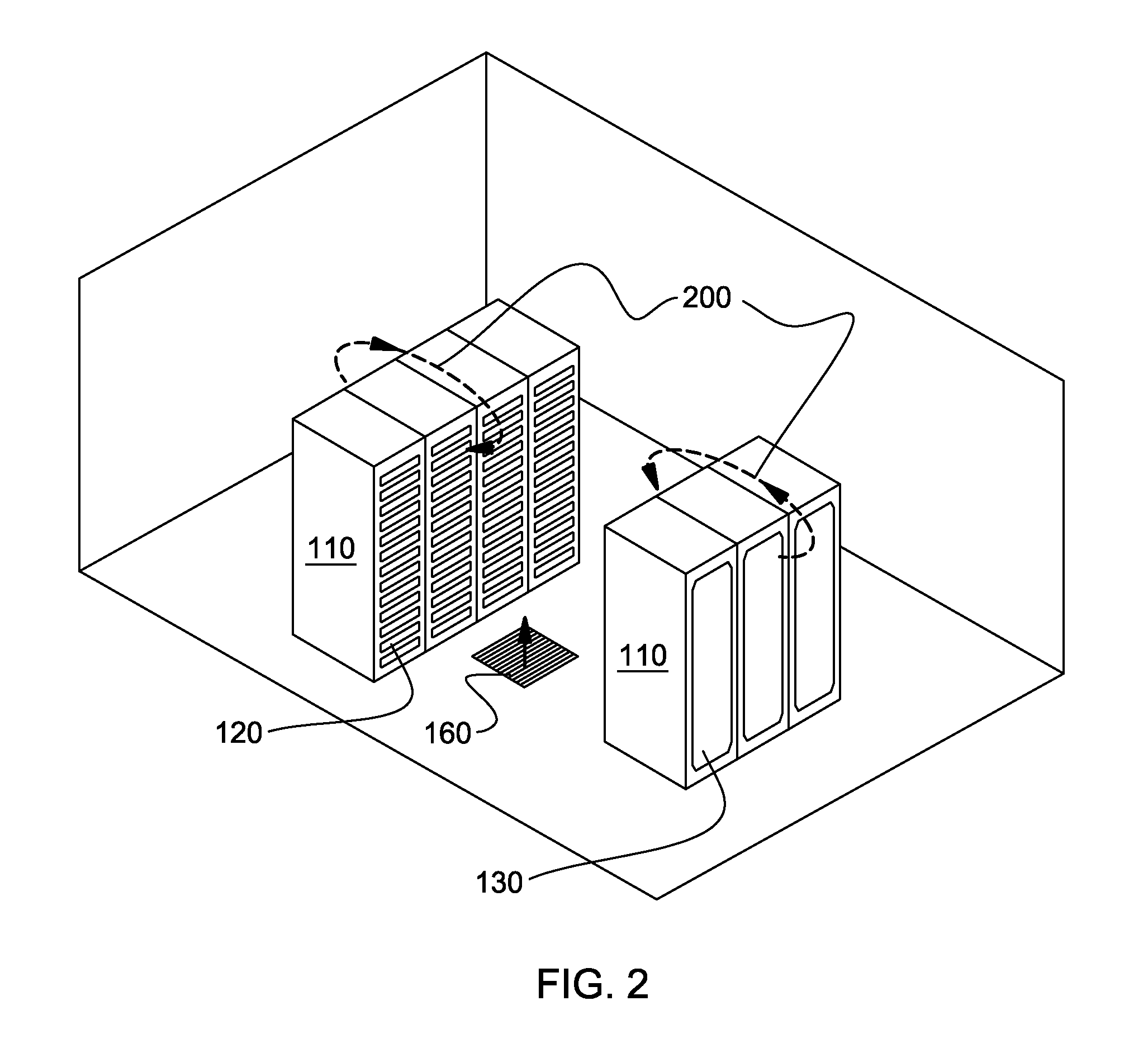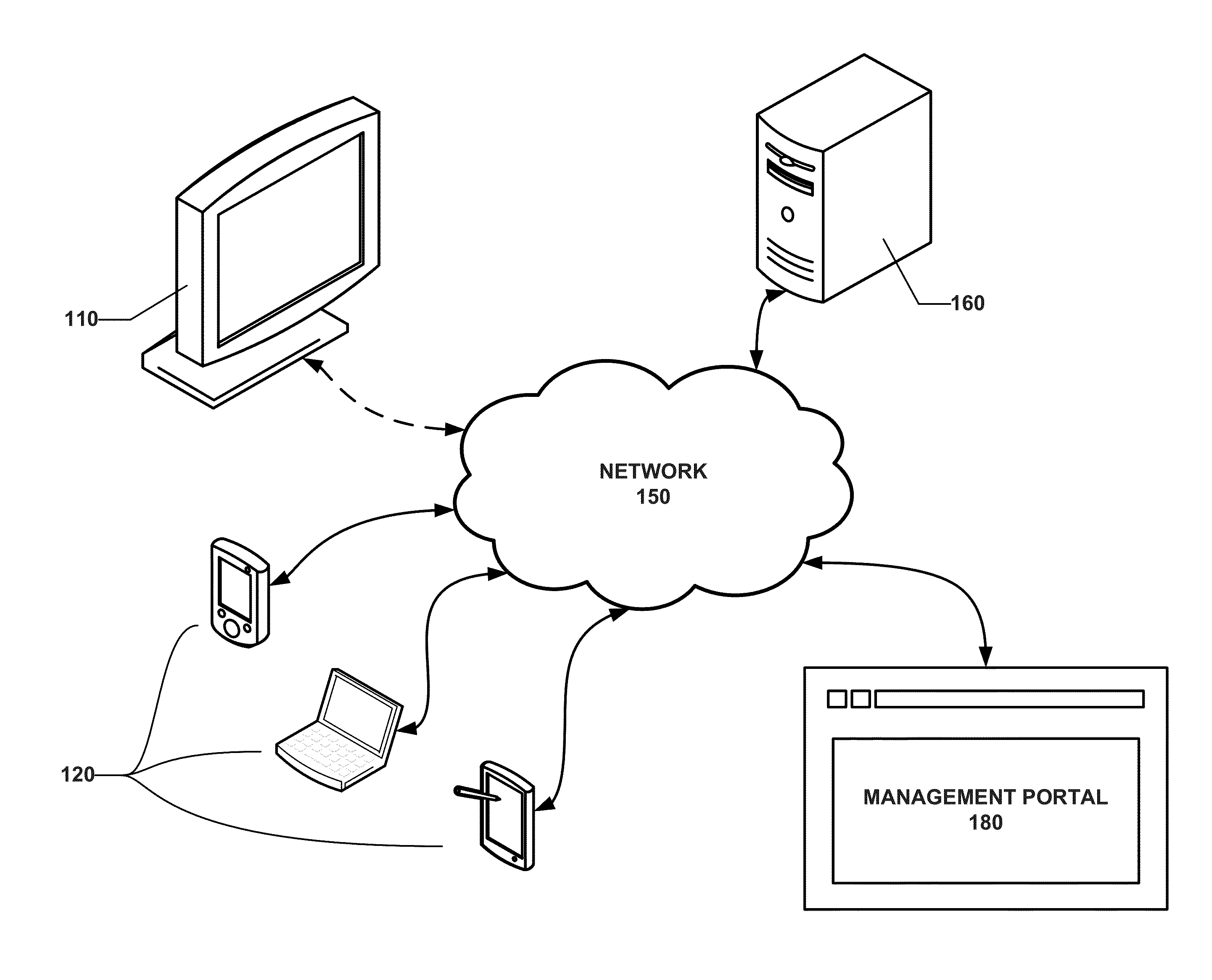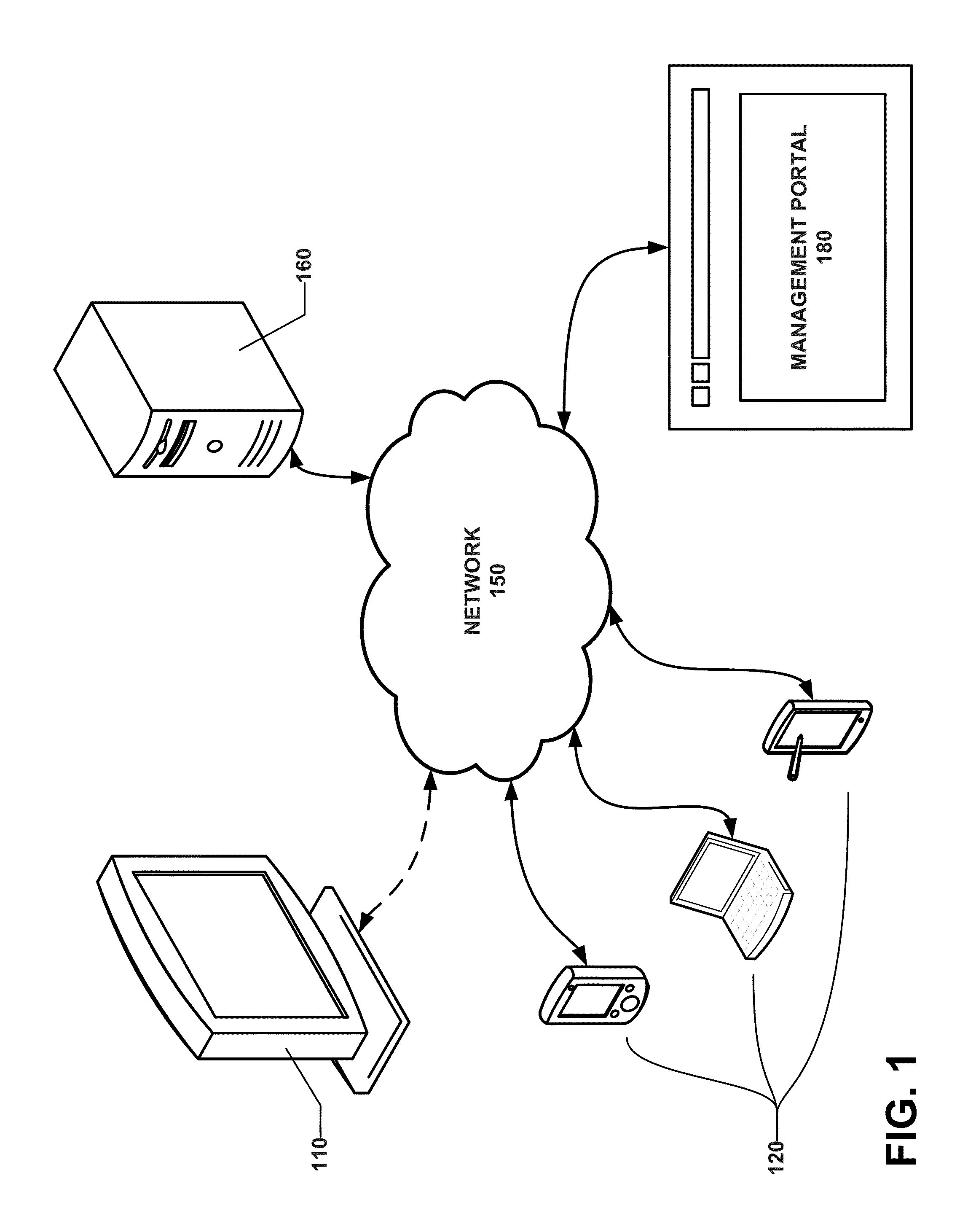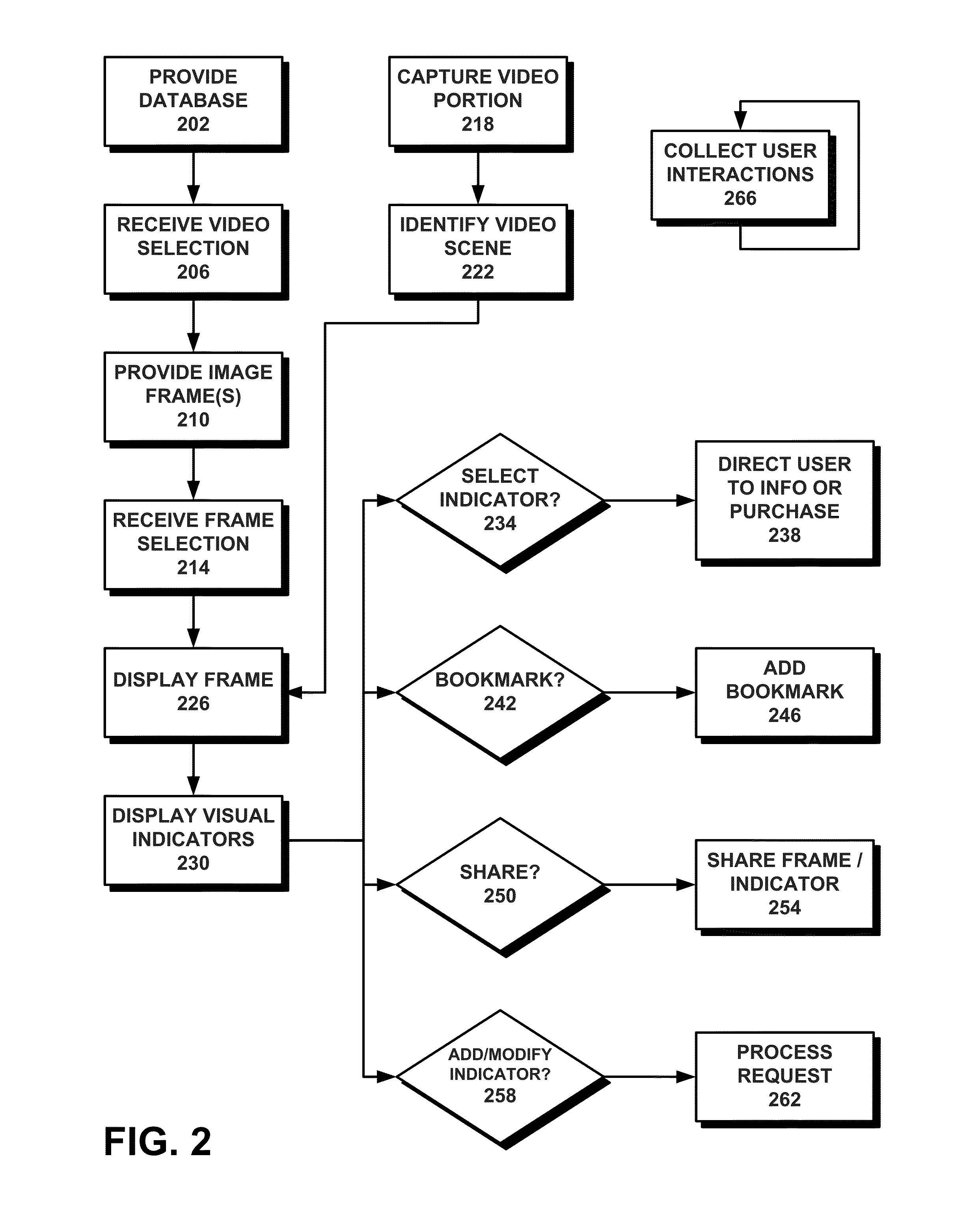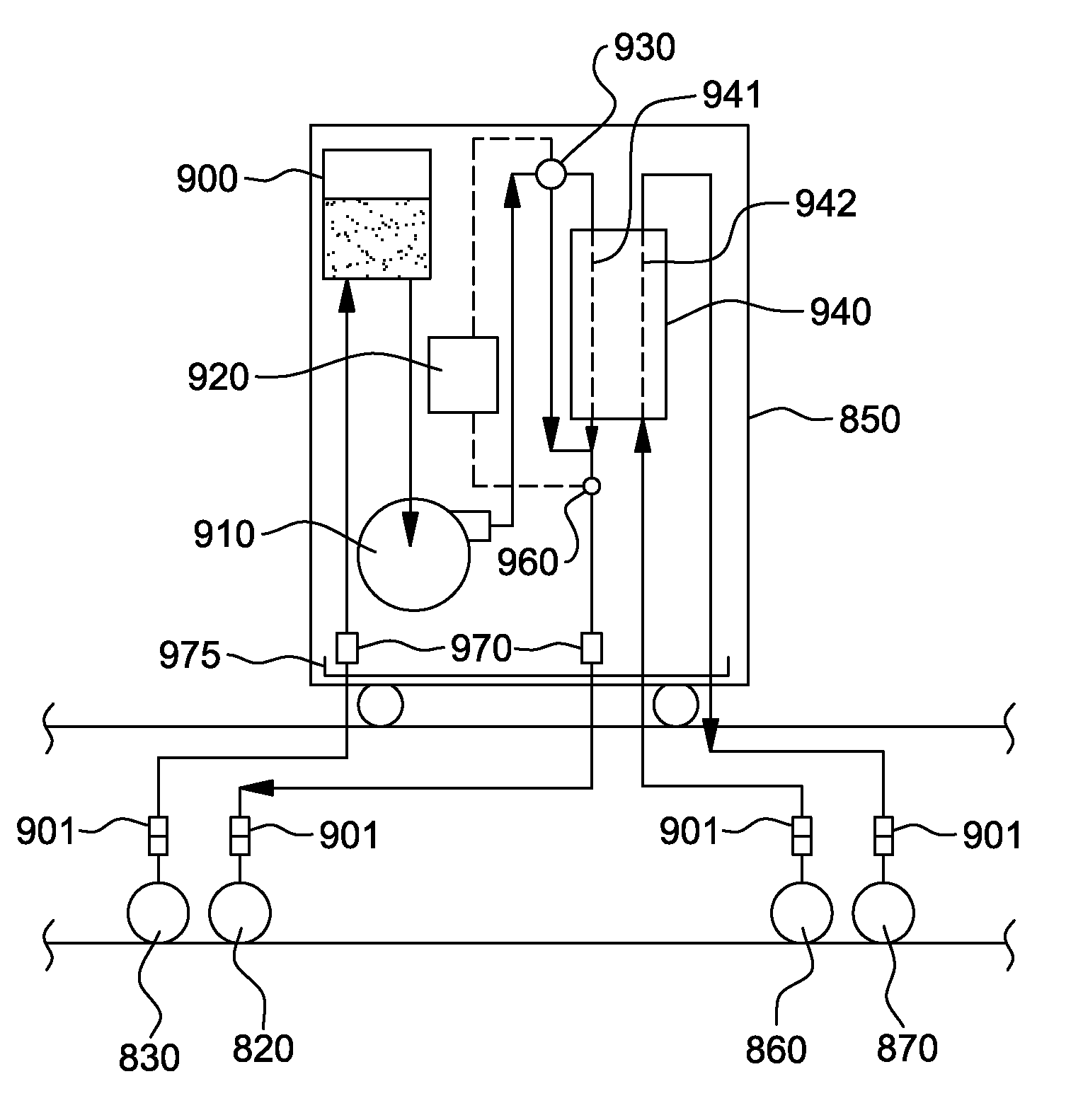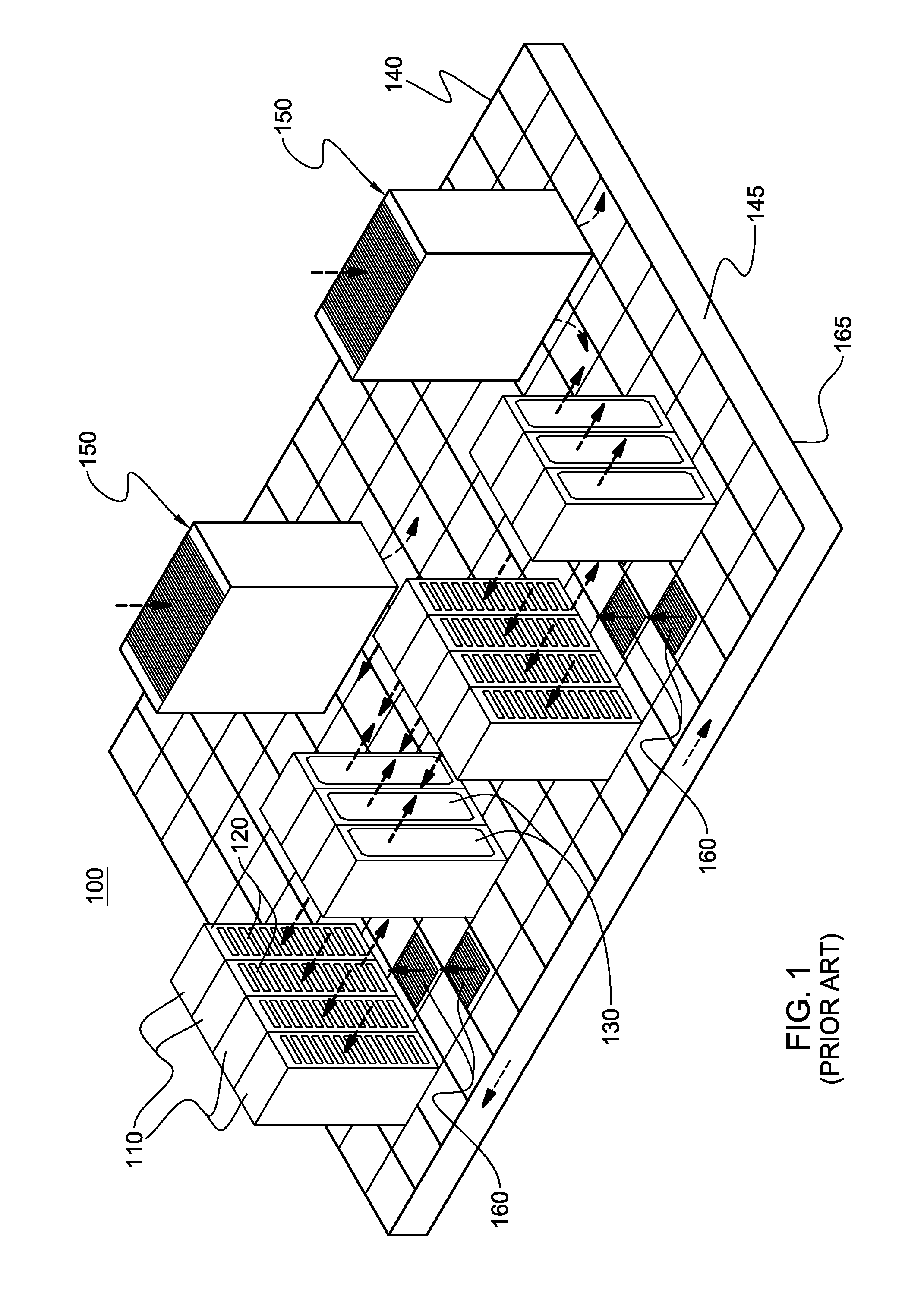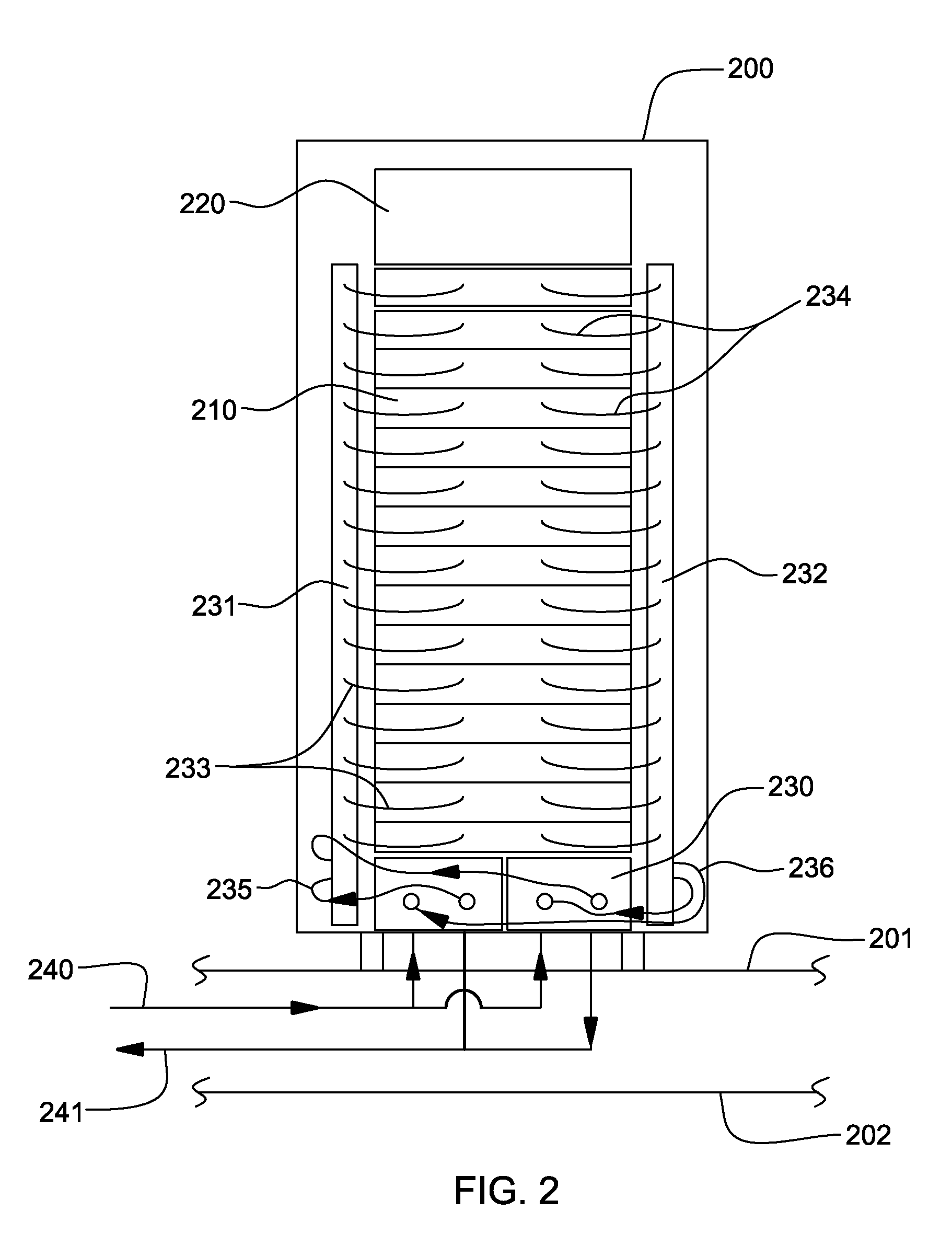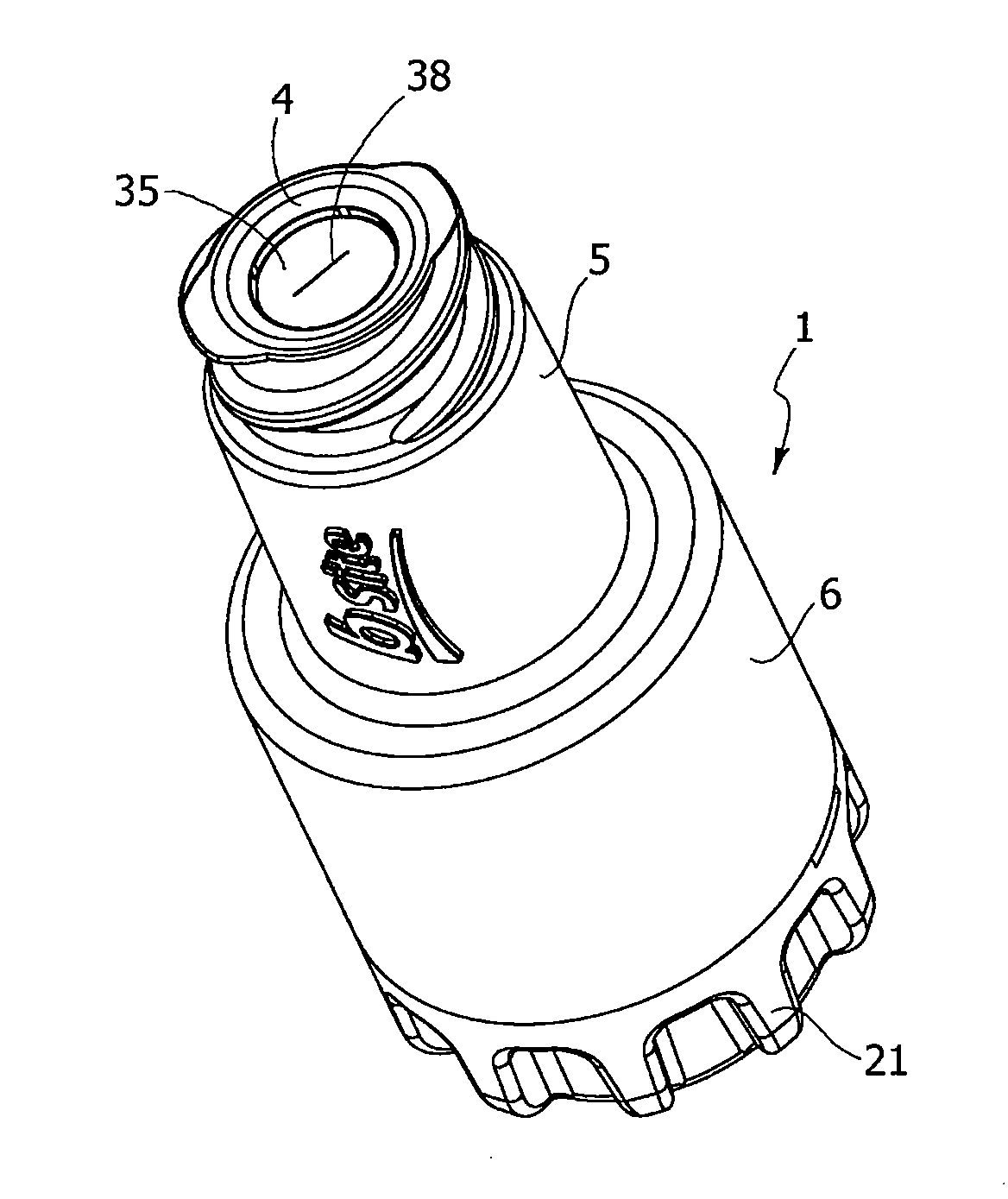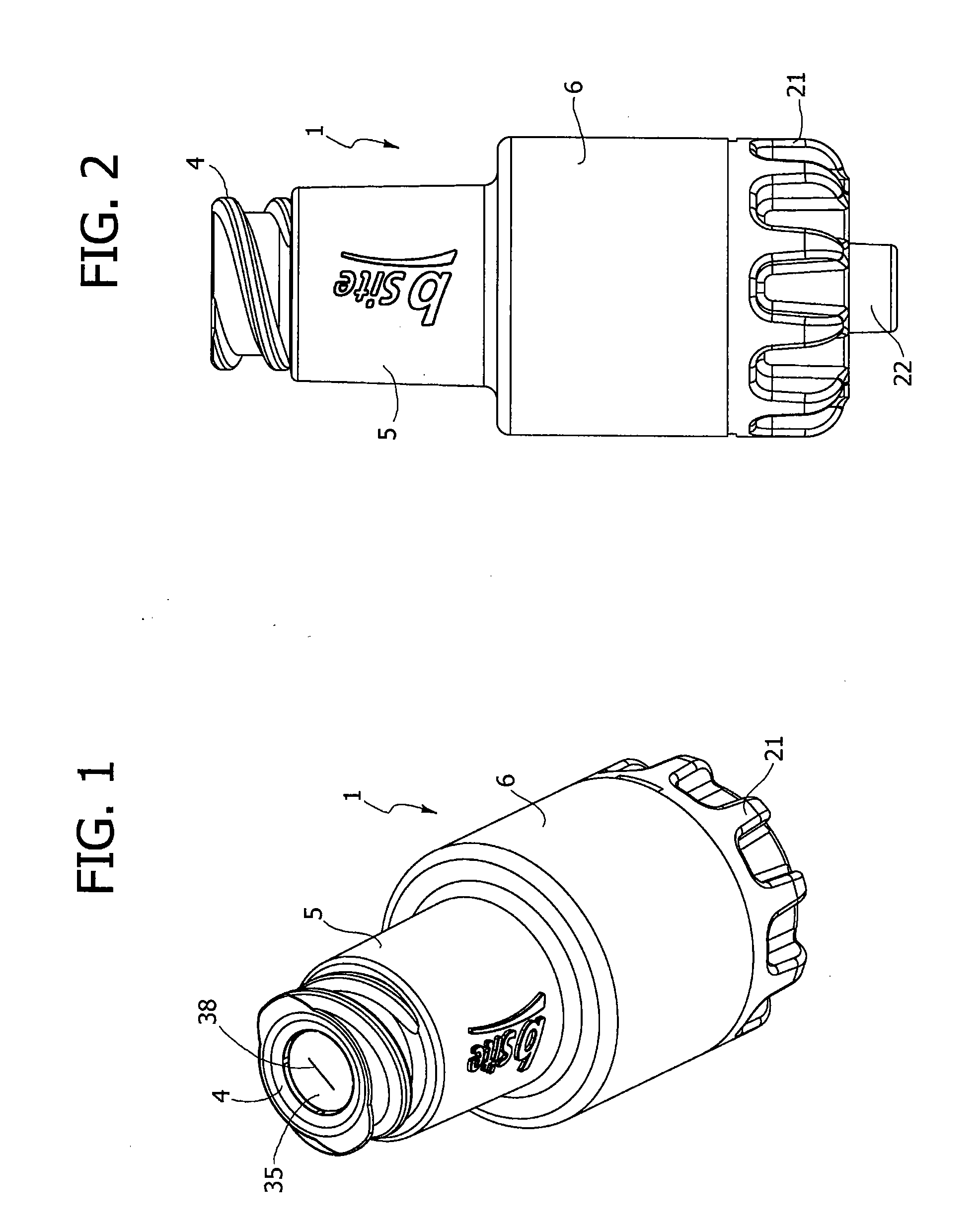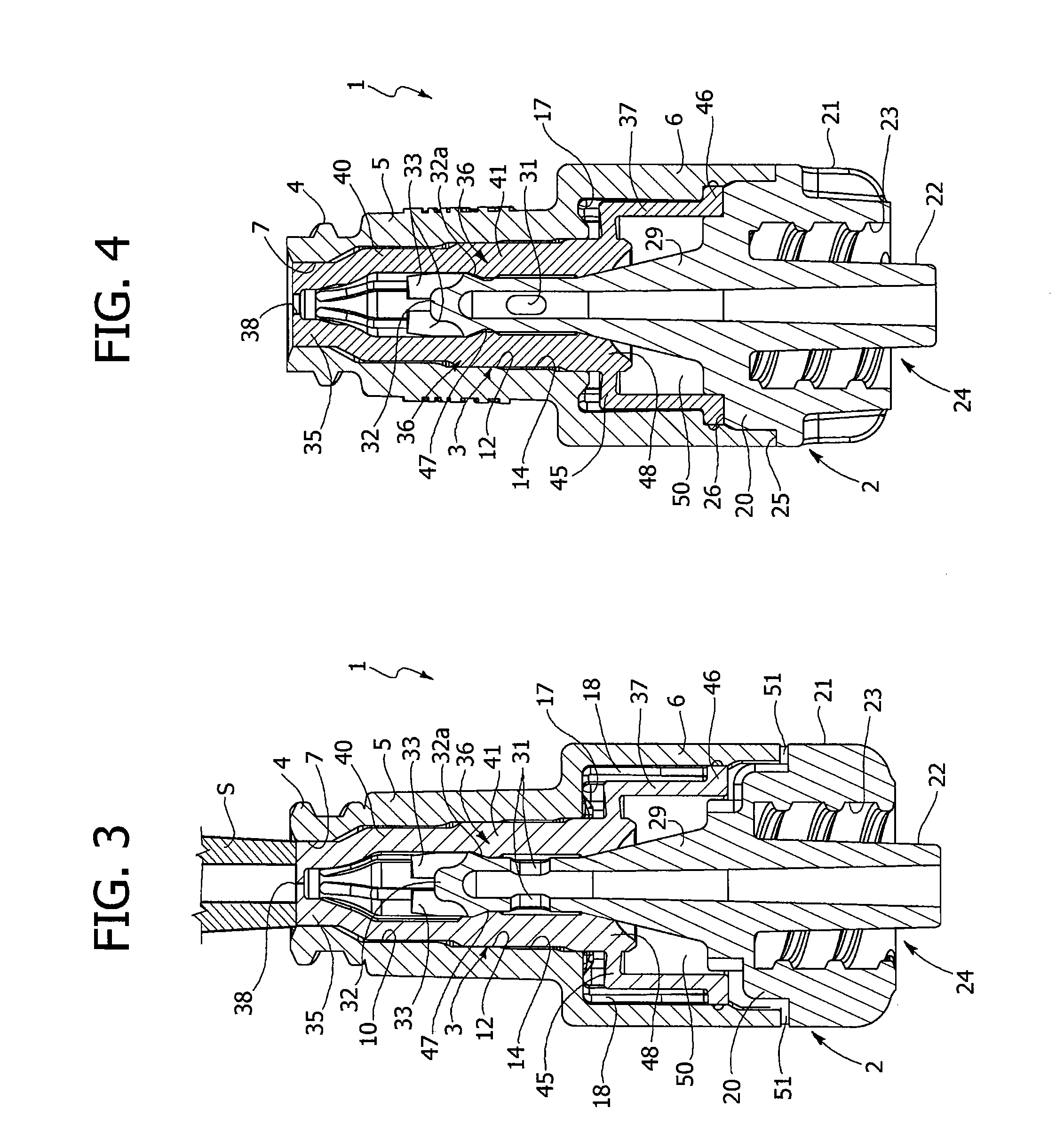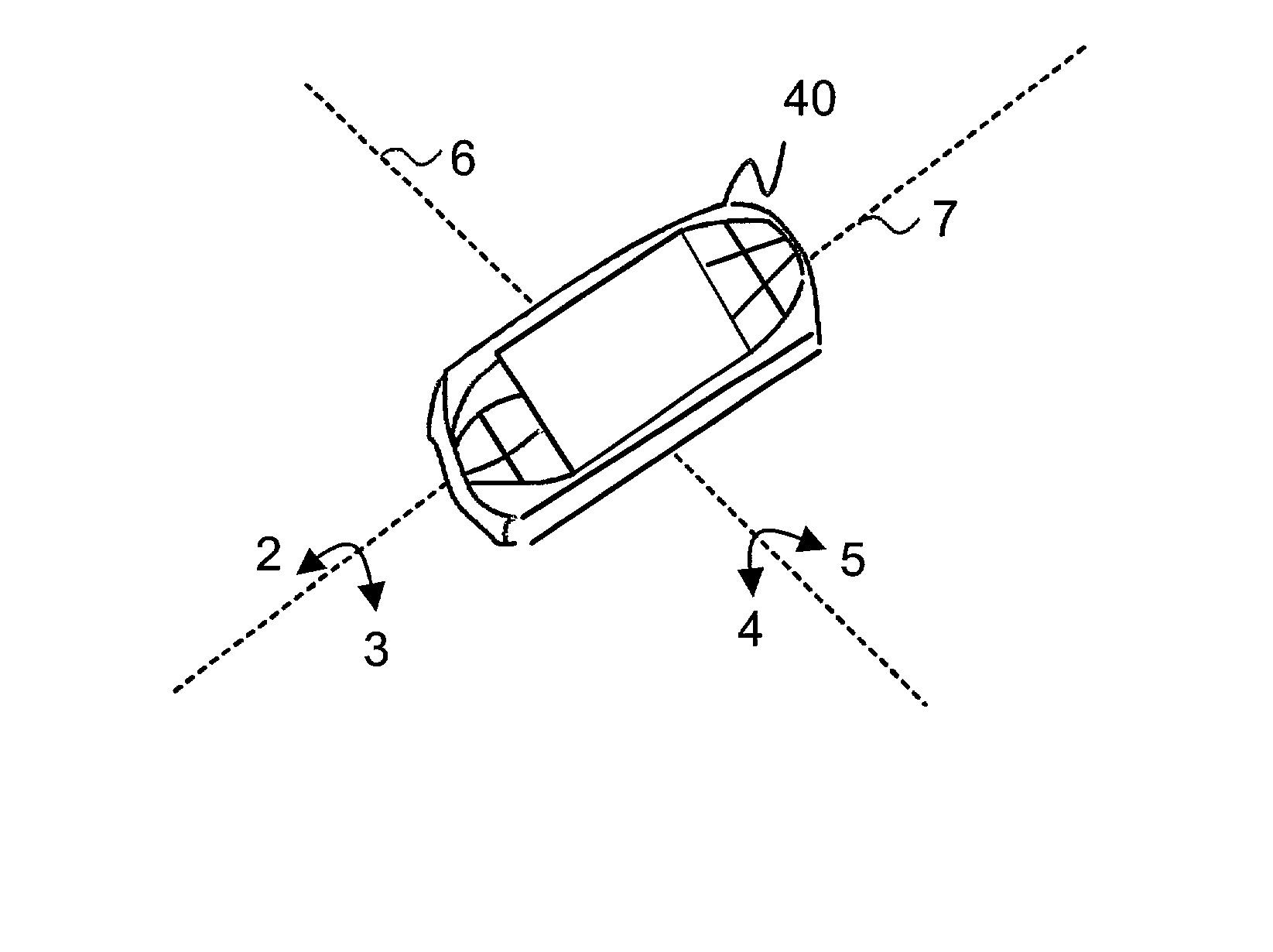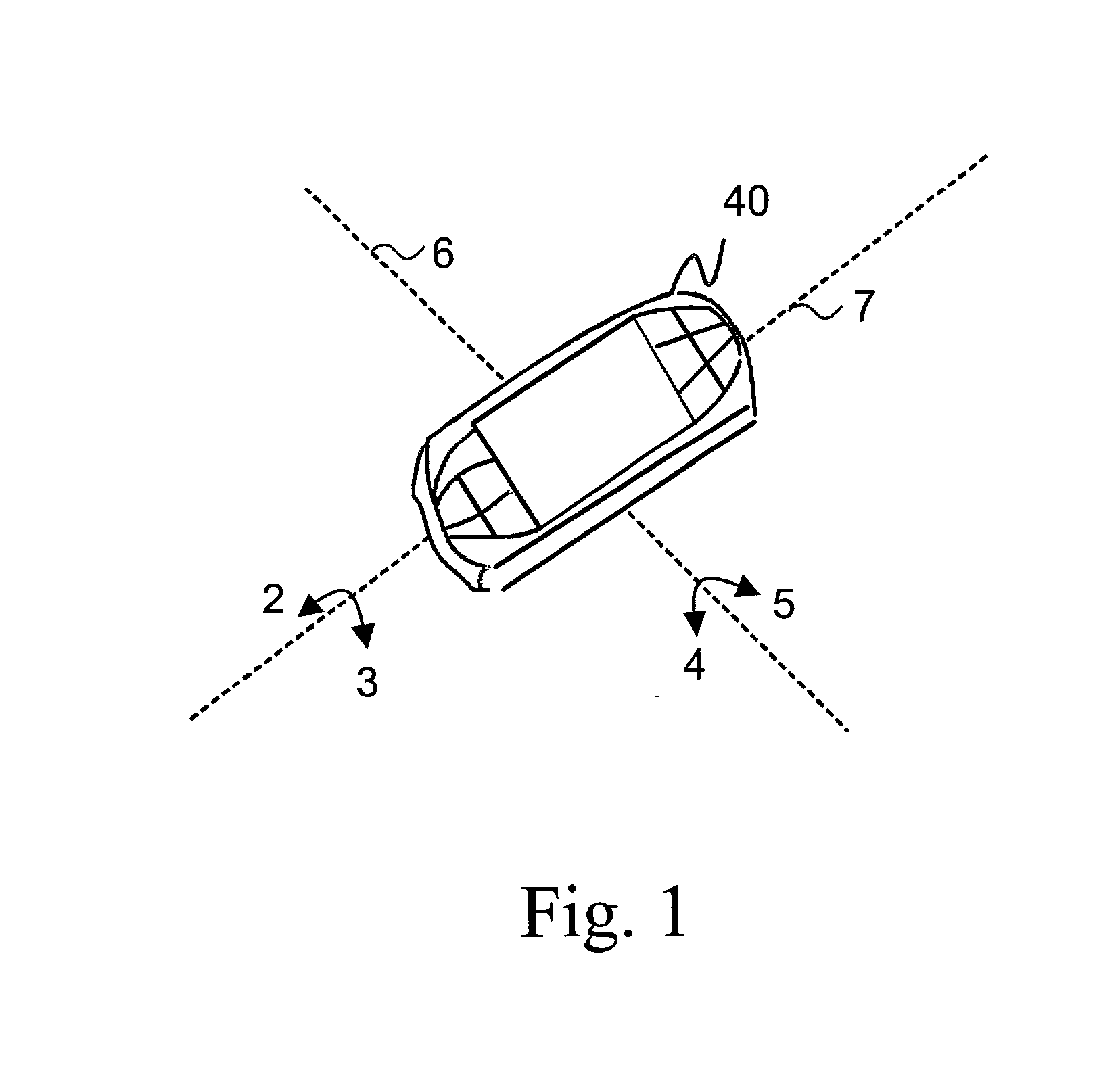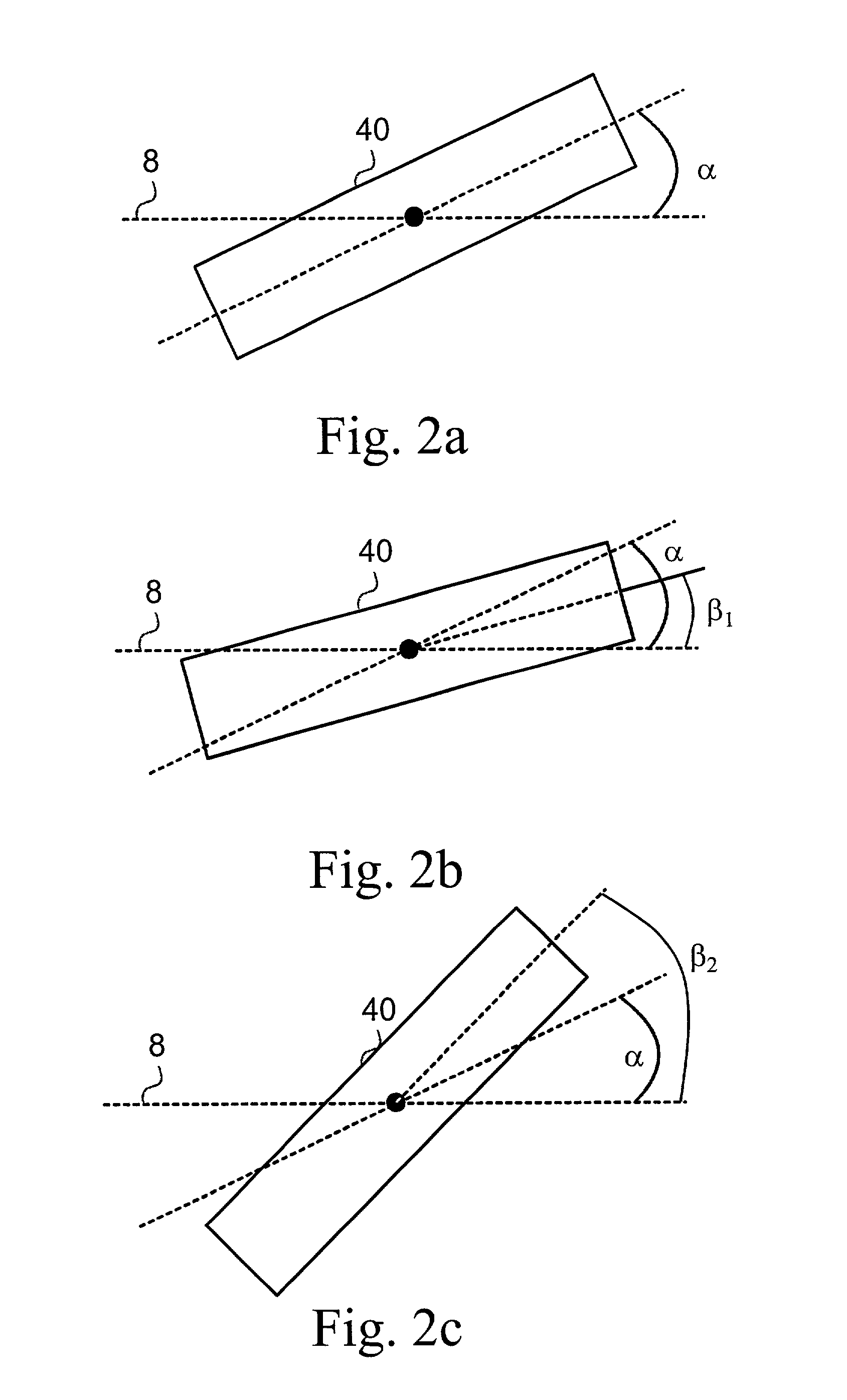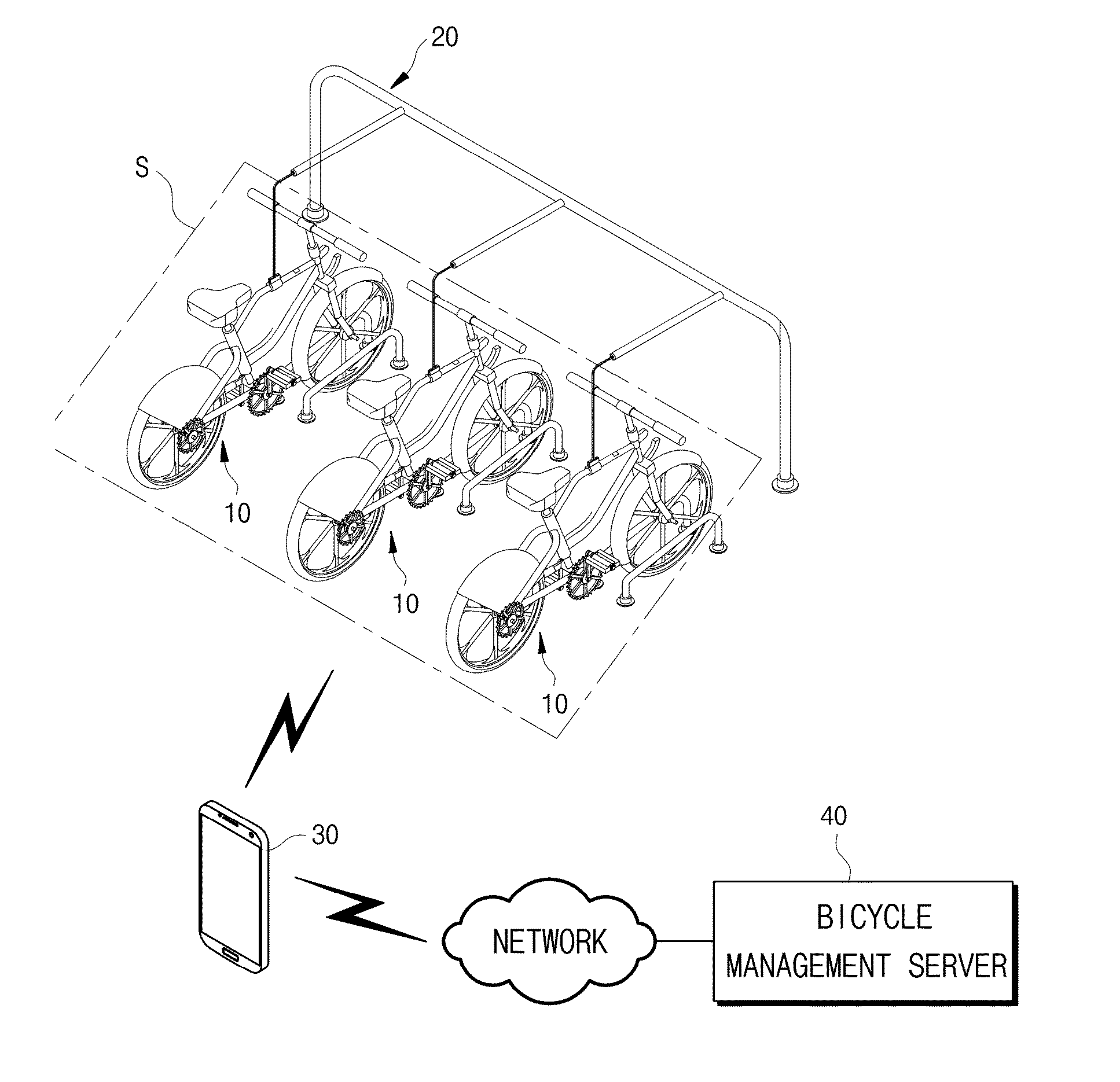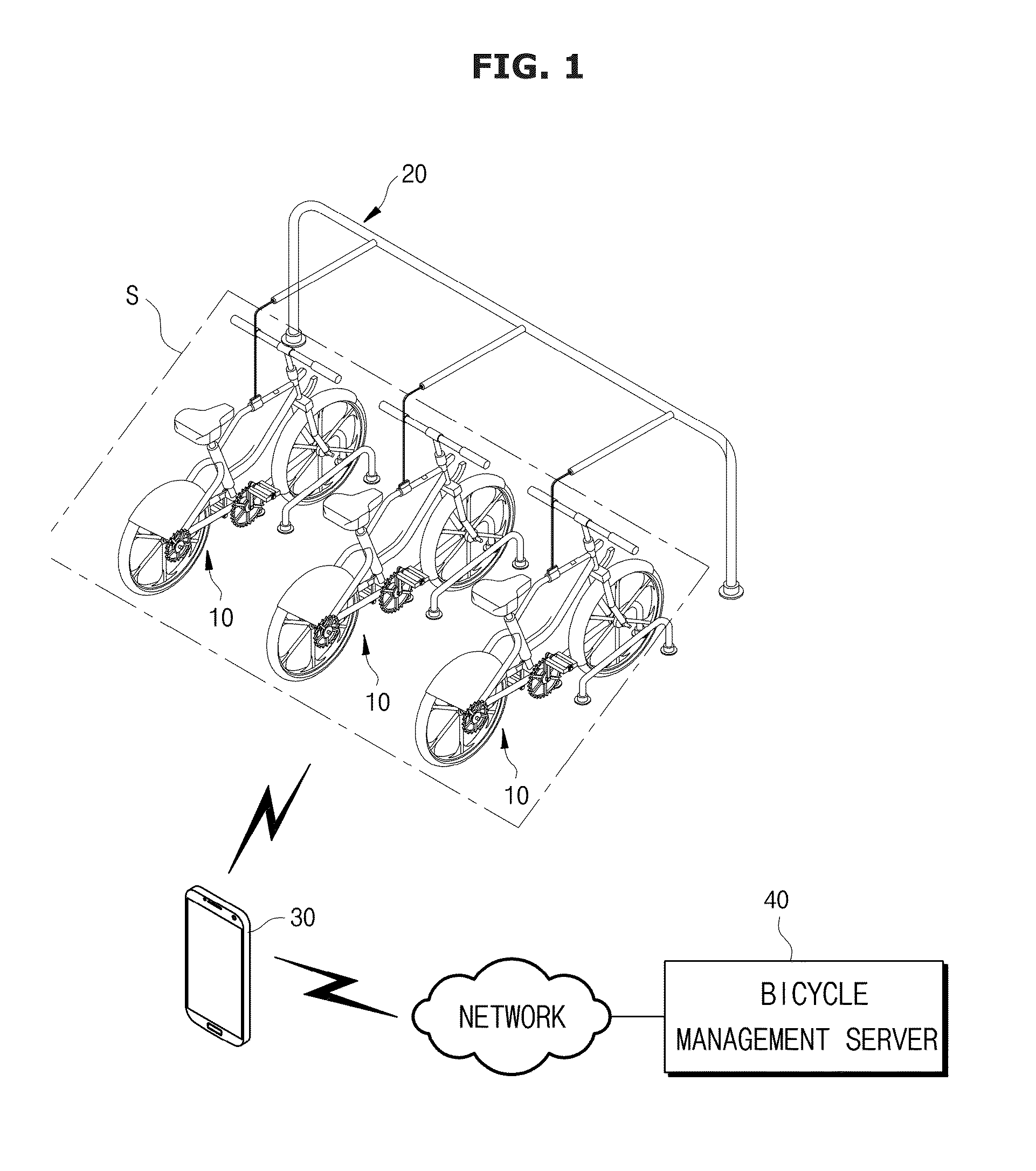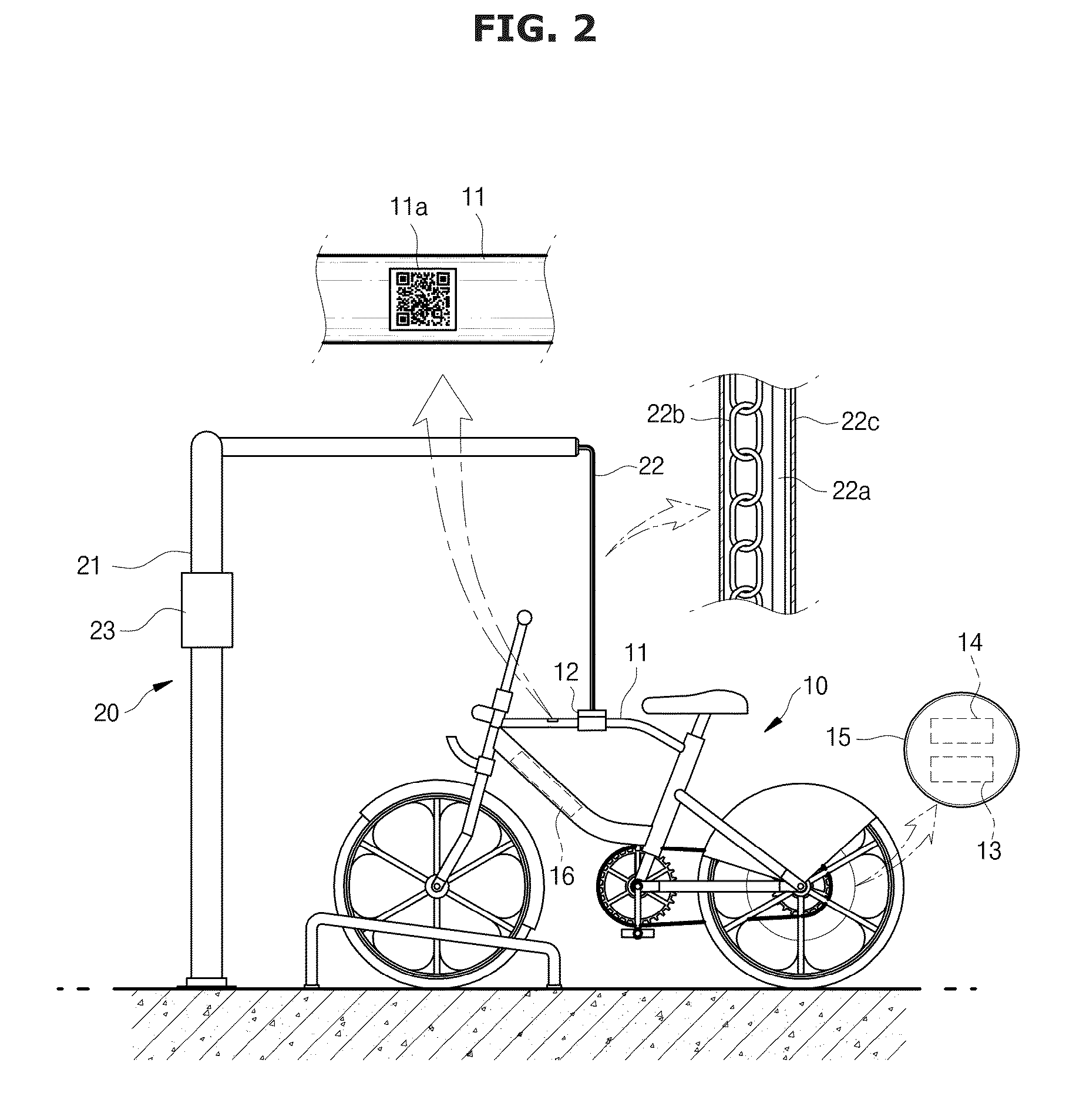Patents
Literature
1060results about How to "Easy to return" patented technology
Efficacy Topic
Property
Owner
Technical Advancement
Application Domain
Technology Topic
Technology Field Word
Patent Country/Region
Patent Type
Patent Status
Application Year
Inventor
Gaming device method involving multiple classes of credits, wagering of contingent winners, a special purpose meter therefor, and a player-determinable bonus round
InactiveUS20070026924A1Entertaining for playerEasy to returnApparatus for meter-controlled dispensingVideo gamesHuman–computer interaction
Owner:TAYLOR WILLIAM ARTHUR
Collapsible insulated container
A collapsible insulated container has a base wall and a peripheral wall with an open end defining an enclosure. The peripheral wall has at least two layers and is divided into elongate pockets between the layers, with foldable crease lines between adjacent pockets. Each pocket contains a flexible-walled, insulating gel pack which substantially fills the pocket. The crease lines may be defined by stitching securing the outer and inner layers of the container together. The gel packs may be surrounded by matting, foam or mesh material which is sewn into the lines of stitching, or may have integral peripheral rims sewn into the lines of stitching. The container is foldable between an erect, open condition and a storage condition in which it is folded along the crease lines into a substantially flattened package.
Owner:PACKIT
Apparatus and method for managing luggage handling
InactiveUS6750757B1Low costEasy to returnStampsElectric signal transmission systemsTelecommunicationsEngineering
A system for managing luggage handling includes: (a) a central information management appliance; (b) a plurality of portable impulse radio communication devices; and (c) at least one impulse radio transceiving instrument. The at least one impulse radio transceiving instrument, the plurality of communication devices and the central information management appliance are in communication. Selected portable impulse radio communication devices of the plurality of portable impulse radio communication devices are coded communication devices. Respective coded communication devices are attached with respective luggage items and communicate indication of at least one item relating to the respective luggage item.
Owner:HUMATICS CORP
Ultrasonic probe
InactiveUS20060173329A1Easy to controlEasy to returnAnalogue/digital conversionElectric signal transmission systemsUltrasound probe
The ultrasonic probe of the present invention includes an ultrasonic element unit for transmitting and receiving ultrasonic waves, an oscillation mechanism for causing oscillation to the ultrasonic element unit and a detector for detecting the oscillation of the ultrasonic element unit. The detector detects the oscillation angle and the oscillation origin of the ultrasonic element unit, and when the oscillation range of the ultrasonic element unit is divided at its oscillation origin into two regions of a positive region and a negative region, the detector detects in which area the ultrasonic element unit is located. In use of the ultrasonic probe, a control of origin return for returning the ultrasonic element unit to its oscillation origin is performed on the basis of the result of the detection by the detector.
Owner:KONICA MINOLTA INC
Expandable reamer apparatus for enlarging boreholes while drilling and methods of use
ActiveUS7036611B2Reduce capacityReduce the cross-sectional areaSurveyDrill bitsFixed bearingWell drilling
An expandable reamer apparatus and methods for reaming a borehole, wherein a laterally movable blade carried by a tubular body may be selectively positioned at an inward position and an expanded position. The laterally movable blade, held inwardly by blade-biasing elements, may be forced outwardly by drilling fluid selectively allowed to communicate therewith by way of an actuation sleeve disposed within the tubular body. Alternatively, a separation element may transmit force or pressure from the drilling fluid to the movable blade. Further, a chamber in communication with the movable blade may be pressurized by way of a downhole turbine or pump. A ridged seal wiper, compensator, movable bearing pad, fixed bearing pad preceding the movable blade, or an adjustable spacer element to alter expanded blade position may be included within the expandable reamer. In addition, a drilling fluid pressure response indicating an operational characteristic of the expandable reamer may be generated.
Owner:BAKER HUGHES OILFIELD OPERATIONS LLC
Self-sealing male connector
InactiveUS7040598B2Limit longitudinal movementEasy to returnValve arrangementsSurgeryCuffScrew thread
A self-sealing male connector having a body, a resilient boot mounted over the body, and a male thread hub. The body is formed with an elongate post that extends to the distal end. The body includes a fluid flow lumen extending from its proximal end to its distal end. At its proximal end, the body may be formed as a female Luer connector, or may be directly connected to tubing, or other arrangements. The internal fluid flow lumen extends through the post to its distal end. The body includes a first groove in which is mounted the boot. In a second groove is mounted the thread cuff. The thread cuff is used to engage a female connector and through thread action, draw in into engagement with the post. As the female connector is further engaged with eh sealed male connector, the post protrudes through the boot and into fluid communication with the female fluid flow passage thus establishing a flow path through both connectors. The boot forms a seal with the female connector when engaged and returns to seal the male connector post and fluid flow passage within disconnected from the female connector.
Owner:CAREFUSION 303 INC
Perorally removeable anti-reflux valve implantation
InactiveUS20060041319A1Easy to closeEasy to bendEar treatmentHeart valvesReflux valveVacuum assisted
Disclosed are esophageal anti-reflux valve prostheses, and tools and procedures for peroral implantation and extraction of the prostheses. The prostheses disclosed have a semipermeable membrane to allow retrograde passage of gas, magnets disposed at a distal end of the sleeve to facilitate closure, and an outwardly bendable array of spikes that are longitudinally aligned for peroral insertion and lockable into a radially outwardly deployed configuration to keep the prosthesis from dislocating after implantation. The implantation tool has inner and outer concentric tubes, the inner tube releasably threadably connected to the prosthesis, the outer tube reverse threaded with the inner tube to advance a distal headpiece to engage, deploy and lock the spikes into the deployed configuration. A vacuum assist can be used to help impact the lumen wall on the spikes. The extraction tool is similar to the implantation tool with an inner tube for threadably engaging the prosthesis, an outer tube with a distal crown with a plurality of shoes to unseat and unlock the spikes, and an overtube shield to receive the spikes and facilitate extraction of the prosthesis.
Owner:REFLUX CORP
Portable screening room
ActiveUS7533182B2Move quicklyEasy to returnCathode-ray tube indicatorsMultiple digital computer combinationsMultimedia
A method and system are provided for screening media segments received from at least one originator. The method includes receiving at least one media segment from an originator, providing the media segment to at least one screener, associating feedback from the at least one screener with the at least one segment, thereby obtaining associated feedback, and delivering the associated feedback regarding the at least one segment to the originator of the media segment. The feedback provided to the originator is input by a screener using a portable screening room. The system for screening media segments includes an interface enabling communication between the originator of the media segment and at least one screener screening the media segment and a portable screening room used by the at least one screener to associate feedback with the media segment that is then sent to the originator.
Owner:STARZ DISTRIBUTION
Process and system for syngas production from biomass materials
A process and system suitable for producing syngas from biomass materials. The process and system entail the compaction of a loose biomass material to remove air therefrom and form a compacted biomass material. The compacted biomass material is then introduced into a reactor and heated in the substantial absence of air so as not to combust the compacted biomass material. Instead, the compacted biomass material is heated to a temperature at which organic molecules within the compacted biomass material break down to form ash and gases comprising carbon monoxide and hydrogen gas. Thereafter, the carbon monoxide and hydrogen gas are released from the reactor, and the ash is removed from the reactor.
Owner:GREEN FORTRESS ENG INC
Liquid-based cooling apparatus for an electronics rack
InactiveUS7450385B1Improve cooling effectIncrease supplyHeat exchanger casingsCooling/ventilation/heating modificationsElectronicsEngineering
A cooling apparatus is provided for facilitating cooling of electronics drawers of an electronics rack. The apparatus includes a bi-fold door assembly configured for mounting to the electronics rack. The door assembly includes a first door and a second door, each configured for separate, hinged mounting to the electronics rack. The apparatus further includes a coolant distribution apparatus, wherein a coolant supply manifold thereof is mounted to the first door and a coolant return manifold thereof is mounted to the second door. Separate swivel connections are coupled in fluid communication with the coolant supply and return manifolds for facilitating supply and return of coolant to and from the manifolds, and for facilitating pivotal movement of the doors relative to the electronics rack. A plurality of coolant distribution ports are provided within the supply and return manifolds, and disposed to facilitate supply and return of coolant to the electronics drawers.
Owner:LENOVO GLOBAL TECH INT LTD
Portable terminal device
InactiveUS7171243B2Easy to operateEasy accessAutomatic call-answering/message-recording/conversation-recordingTransmissionTerminal equipmentComputer terminal
A portable terminal is disclosed and which is adapted to display thereon a plurality of functions as a menu for allowing a desired one of the plurality of functions to be selected and executed, comprising: a detailed menu encompassing various functions of the overall portable terminal; a simplified menu including highly frequently used functions which are extracted from those of the detailed menu and having a hierarchy structure different from that of the detailed menu; and display switching means for switching between said first menu and said second menu to be displayed exclusively from each other. The portable terminal thus constructed is excellent in its operability in particular for users who are aged or unfamiliar with the portable terminal by the provision of the simplified and detailed for execution of readily menu manipulation.
Owner:FUJITSU CONNECTED TECH LTD
Systems and Methods for Manipulating User Annotations in Electronic Books
ActiveUS20120218305A1Easy to useEasy to navigateGeometric image transformationCathode-ray tube indicatorsAccelerometerElectronic book
An electronic book system provides interfaces particularly suited to students' use of textbooks. A finger press on a touch screen produces a contextual menu with user choices that relate to where the finger was pressed or what the user was recently doing with the book. A student provisionally navigates through a book by a specific gesture which, when it stops, returns the user to the previous position in the book. Annotations are displayed and hidden using specific gestures and through selective movement of the reader as sensed by its accelerometer.
Owner:GOOGLE LLC
Lost item notification and recovery system
InactiveUS20080079581A1Minimization requirementsPromote recoveryFrequency-division multiplex detailsTime-division multiplexCountermeasureReward system
A largely or totally automated lost item notification and recovery system that avoids language barriers by providing a short description of the item entered by the subscriber and stored in a database in any lost item notification message communicated to the subscriber concerning the item. The lost item notification message may also include an indication of the language used by the reporting party when placing the lost item report, and may also include an indication of the geographic location where the lost item report originated. The system may also activate pre-defined countermeasures associated with the lost item once the item has been reported lost and implement a reward system providing compensation to the reporting party or others upon successful return of the lost item.
Owner:PRICE TOM
Method and apparatus for negative pressure therapy
InactiveUS20070167884A1Cost reductionRequirement be decreaseBlood stagnation preventionPneumatic massageEdemaVenous thromboembolic disease
Devices that employ external compression stocking-type garments in the treatment of edema, chronic wounds, deep venous thrombosis prevention or claudication all share a number of significant limitations. These include the frequent need for custom fitting to assure an appropriate fit, vigilant maintenance to assure a continued “good fit,” limited compliance with proper use by patients and difficulty of application. There is a large body of evidence demonstrating that patients often decline to wear the compressive stockings as prescribed or in the form that would be most beneficial because they find these devices to be difficult to put on and take off. Building on the limitations of existing therapies, and distilled lessons learned from the field of prosthetics and wound healing, the present invention employs vacuum-assisted negative pressure to provide compression and help pump fluid from the tissues of affected limbs. The device is embodied in the form of a flexible stocking-like garment that will utilize a pumping mechanism to generate negative pressure around the limb and thus create vacuum compression that will mobilize fluid in a limb and increase venous return to the heart. Through the use of a circumferential wrap, the present invention provides a major advance in both the distribution of vacuum and the securing of the device over the limb.
Owner:THERANOVA LLC
Collapsible Insulated Container
ActiveUS20100270317A1Easy to foldEasy to returnLighting and heating apparatusBagsBiomedical engineering
A collapsible insulated container has a base wall and a peripheral wall with an open end defining an enclosure. The peripheral wall has at least two layers and is divided into elongate pockets between the layers, with foldable crease lines between adjacent pockets. Each pocket contains a flexible-walled, insulating gel pack which substantially fills the pocket. The crease lines may be defined by stitching securing the outer and inner layers of the container together. The gel packs may be surrounded by matting, foam or mesh material which is sewn into the lines of stitching, or may have integral peripheral rims sewn into the lines of stitching. The container is foldable between an erect, open condition and a storage condition in which it is folded along the crease lines into a substantially flattened package.
Owner:PACKIT
Electronic Book Interface Systems and Methods
InactiveUS20120221938A1Easy to useEasy to navigateGeometric image transformationNatural language data processingAccelerometerElectronic book
An electronic book system provides interfaces particularly suited to students' use of textbooks. A finger press on a touch screen produces a contextual menu with user choices that relate to where the finger was pressed or what the user was recently doing with the book. A student provisionally navigates through a book by a specific gesture which, when it stops, returns the user to the previous position in the book. Annotations are displayed and hidden using specific gestures and through selective movement of the reader as sensed by its accelerometer.
Owner:GOOGLE LLC
Tightening mechanisms and applications including the same
ActiveUS20130269219A1Reduce the overall heightEasy to returnMetal-working apparatusShoe lace fasteningsEngineeringMechanical engineering
This disclosure relates to articles that include a tightening mechanism, such as reel-based lace tightening mechanism, configured to tighten the article by rotation of a knob. The articles can include a concealing portion that is configured to conceal or protect at least a portion of the tightening mechanism, such as the knob. The concealing portion can be configured to prevent unintentional actuation of the tightening mechanism, such as during contact sports. The concealing portion can be configured to hide the tightening mechanism from view to improve the visual appearance of the article. The concealing portion can be collapsible such that a user can press the concealing portion down to expose the knob of the tightening mechanism.
Owner:BOA TECHNOLOGY
Method for valuing intellectual property
InactiveUS7188069B2Easy to returnDifferent typeResourcesElectric/magnetic computingIntellectual propertyCalculation methods
A method of placing a discrete value on an intellectual property asset through a series of associations and calculations that determine the proportional contribution of an intellectual property asset to the competitive advantage of a related product in a real market. The methodology of the present invention first associates the intellectual property asset with a related tangible asset that embodies the intellectual property asset. After a set of parameters that define the tangible asset are identified, the tangible asset is quantitatively compared to competing tangible assets in the marketplace to determine its overall competitive advantage relative to those competing assets. The contribution of the intellectual property asset to the average competitive advantage of the tangible asset in which it is embodied is calculated by first comparing the intellectual property asset to substitute intellectual property assets that are embodied in competing tangible assets and associated with the same parameter. Next, the intellectual property asset is compared to complementary intellectual property assets that are included in the same tangible asset and associated with the same parameter group. Based upon the proportional competitive advantage contribution of the intellectual property asset to the average competitive advantage of the tangible asset, a percentage of the tangible asset's present value is assigned to the intellectual property asset. The present invention can also be used for planning development of pre-market products, calculating the value of a license to a licensor and licensee, and selecting among alternative research and development investments.
Owner:SYRACUSE UNIVERSITY
Method and device for browsing information on a display
InactiveUS20060129951A1Easy to returnEfficient use ofStatic indicating devicesDigital data processing detailsHand heldDisplay device
Information is browsed on a display device of a hand-held device naturally and logically essentially in a mirror-like way when the portion of the virtual data object displayed on the display device is moved in the same direction as the hand-held device is tilted. That is, the movements of the portion of the virtual data object displayed on the display device depends on the orientation of the hand-held device. A certain orientation of the hand-held device always displays the same portion of the virtual data object on the display device. The browsing method described above is extremely logical, and the movements and responses to the movements are natural.
Owner:APPLE INC
System and method for killing a RFID tag
ActiveUS20060187046A1Easy to returnMemory record carrier reading problemsSubscribers indirect connectionUltrasound attenuationTransmitted power
System and method for disabling a RFID tag. A preferred embodiment comprises attenuating a signal received at an antenna of the RFID tag based upon a status of the RFID tag and responding to an instruction in the received signal if the attenuated signal is detectable. The attenuation of the received signal requires that the received signal have a signal strength greater than a specified threshold in order for the instruction in the received signal to be detectable. This means that for a given signal transmit power, the RFID tag must be within a certain distance from a RFID reader attempting to retrieve information from the RFID tag. By setting the attenuation amount at a sufficiently high level, the method ensures that the RFID reader must be substantially adjacent to the RFID tag, preventing the unintended retrieval of unique identification information by RFID readers remotely located from the RFID tag.
Owner:TEXAS INSTR INC
Backpack and Waist Bag Carrying System
The invention provides a backpack (10) and cooperating waist bag (100) carrying system. In one embodiment the backpack has a lower or lumbar region below the bag portion of the backpack that releasably contains the receiver of the waist bag when the belt of the waist bag is secured around the bearer's waist and the backpack is worn on the bearer's back. The receiver of the waist bag can be moved without having to take off the backpack so that the receiver of the waist bag is disposed to the bearer's front and the bearer can gain access to the contents the receiver. The bearer can then move the receiver back to the lower region of the backpack and the combination of the backpack and the waist bag then will appear to be a normal backpack with a waist belt. While moving the receiver, the waist bag remains operatively connected to the backpack.
Owner:THINK TANK PHOTO
Strategies for locomotive operation in tunnel conditions
ActiveUS20050109882A1Promote recoveryEasy to returnDigital data processing detailsSignalling indicators on vehicleEngineeringThermal recovery
A method of controlling operation of a train (T) for passage of the train through a tunnel. The train has a plurality of locomotives (L1-Ln) pulling the train. The position of the lead locomotive relative to the tunnel entrance is determined, as is the amount of time before the train enters the tunnel. Each locomotive is separately configured for passage through the tunnel as a function of performance characteristics of the locomotive and the locomotive's current operating status, as the train approaches the tunnel. Once the train enters the tunnel, the performance characteristics of each locomotive are continually monitored. The performance requirements for one or more of the locomotives are then dynamically changed as a function of conditions within the tunnel and the current performance characteristics of each locomotive. This is done to maintain a sufficient combined performance capability from the locomotives to move the train through the tunnel. Upon exiting the tunnel, the locomotives' full operating capabilities are quickly restored by enhancing their thermal recoveries.
Owner:GE GLOBAL SOURCING LLC
Electronic Book Contextual Menu Systems and Methods
ActiveUS20120221972A1Easy to useEasy to navigateGeometric image transformationNatural language data processingAccelerometerElectronic book
An electronic book system provides interfaces particularly suited to students' use of textbooks. A finger press on a touch screen produces a contextual menu with user choices that relate to where the finger was pressed or what the user was recently doing with the book. A student provisionally navigates through a book by a specific gesture which, when it stops, returns the user to the previous position in the book. Annotations are displayed and hidden using specific gestures and through selective movement of the reader as sensed by its accelerometer.
Owner:GOOGLE LLC
Collaboration server, collaboration system, and method and program for collaboration server and system
InactiveUS20050193062A1Reduce trafficHigh general versatilityMultiple digital computer combinationsOffice automationOperational systemTerminal equipment
The present invention provides a collaboration system that reduces communication traffic, is platform- and OS-independent, and has high versatility. There are provided a collaboration server connected with a plurality of terminal apparatuses through a network for obtaining, retaining, and distributing a Web page as a work screen used in collaborative work among the terminal apparatuses, and a chat server for managing chat sessions. The collaboration server participates as a chat client in a chat session managed by the chat server and distributes an operation instruction concerning the work screen as a chat message to each terminal apparatus. The work screen is reloaded into each terminal apparatus according to the operation instruction to allow the collaborative work to progress.
Owner:IBM CORP
Apparatus and method for adjusting coolant flow resistance through liquid-cooled electronics rack(s)
InactiveUS20110056675A1Improve heat transfer performanceOvercomes shortcomingTemperatue controlElectrical apparatus contructional detailsLine tubingCoolant flow
Apparatuses and methods are presented for adjusting coolant flow resistance through one or more liquid-cooled electronics racks. Flow restrictors are employed in association with multiple heat exchange tube sections of a heat exchange assembly, or in association with a plurality of coolant supply lines or coolant return lines feeding multiple heat exchange assemblies. Flow restrictors associated with respective heat exchange tube sections (or respective heat exchange assemblies) are disposed at the coolant channel inlet or coolant channel outlet of the tube sections (or of the heat exchange assemblies). These flow restrictors tailor coolant flow resistance through the heat exchange tube sections or through the heat exchange assemblies to enhance overall heat transfer within the tube sections or across heat exchange assemblies by tailoring coolant flow. In one embodiment, the flow restrictors tailor a coolant flow distribution differential across multiple heat exchange tube sections or across multiple heat exchange assemblies.
Owner:IBM CORP
Systems and methods for identifying, interacting with, and purchasing items of interest in a video
InactiveUS20150245103A1Easy to returnEasy to shareTelevision system detailsAdvertisementsVideo imageVisual perception
Systems and methods for identifying, interacting with, and purchasing items of interest in video content. A plurality of video image frames are provided to a user, and a selection of one of the image frames is received and displayed. One or more selectable visual indicators are displayed on the selected image frame, with at least one of the visual indicators being associated with a product or service shown in the image frame. The user can select one of the visual indicators to be directed to information about the product or service, including where the product or service can be purchased.
Owner:HOTDOTTV
System and method for facilitating parallel cooling of liquid-cooled electronics racks
InactiveUS8208258B2Easy to passImprove cooling effectSpace heating and ventilation safety systemsDomestic cooling apparatusNuclear engineeringCooling fluid
A cooling system and method are provided for facilitating cooling of multiple liquid-cooled electronics racks. The cooling system includes a main system coolant supply loop with a plurality of system coolant supply branch lines for facilitating supply of cooled system coolant to the electronics racks, and a main system coolant return loop with a plurality of system coolant return branch lines for facilitating return of exhausted system coolant from the electronics racks. When operational, cooled system coolant circulates through the coolant supply loop and exhausted system coolant circulates through the coolant return loop. A plurality of modular cooling units are coupled to the coolant supply loop and coolant return loop. Each modular cooling unit includes a heat exchanger to facilitate cooling of a portion of the exhausted coolant circulating through the main system coolant return loop for return as cooled system coolant to the main system coolant supply loop.
Owner:LENOVO GLOBAL TECH INT LTD
Valve connector for medical lines
ActiveUS20070218757A1Reduce axial sizeSimple and inexpensiveValve arrangementsInfusion devicesAxial displacementEngineering
A valve connector for medical infusion lines including an external tubular body with an inlet end and an outlet end, an internal hollow spike and an intermediate sealing member including a head with pre-slit and an elastic hollow element formed with fluid-tight members in contact with the hollow spike and with an elastic thrust means, which tends to maintain the elastic head in a closed condition. The elastic thrust means comprises a base part joined to the elastic hollow element of the sealing member through a generally transverse annular wall, which, during axial displacement of the elastic head from the closed condition to the open condition, bends within an annular chamber defined between the base part and a portion with conical surface of the hollow spike.
Owner:IND BORLA
Method and device for browsing information on a display
InactiveUS20020175896A1Easy to returnEfficient use ofDigital data processing detailsDigital computer detailsComputer graphics (images)Display device
The idea of the present invention is to browse information on a display device of a hand-held device naturally and logically. Characteristic of the invention is that information is browsed on the display device essentially in a mirror-like way. In other words, the portion of the virtual data object displayed on the display device is moved in the same direction as the hand-held device is tilted. In other words, the movements of the portion of the virtual data object displayed on the display device depends on the orientation of the hand-held device. An important feature of the invention is also that a certain orientation of the hand-held device always displays the same portion of the virtual data object on the display device. The browsing method described above is extremely logical, and the movements and responses to the movements are natural.
Owner:APPLE INC
Bicycle rental system and method
Disclosed herein are a bicycle rental system and method. The bicycle rental system includes a public bicycle, a bicycle holder, a bicycle management server which transmits rental approval information and return confirmation information to the outside, and a user terminal which is provided to be capable of performing wireless communicate with the public bicycle, is linked to the bicycle management server via a network, is provided with identification information of the public bicycle, creates rental approval request information during rental of the public bicycle to transmit the rental approval request information to the bicycle management server, creates return request information during return of the public bicycle to transmit the return request information to the bicycle management server, and receives the rental approval information and the return confirmation information transmitted from the bicycle management server in response to the rental approval request information and the return request information.
Owner:MANDO CORP
Features
- R&D
- Intellectual Property
- Life Sciences
- Materials
- Tech Scout
Why Patsnap Eureka
- Unparalleled Data Quality
- Higher Quality Content
- 60% Fewer Hallucinations
Social media
Patsnap Eureka Blog
Learn More Browse by: Latest US Patents, China's latest patents, Technical Efficacy Thesaurus, Application Domain, Technology Topic, Popular Technical Reports.
© 2025 PatSnap. All rights reserved.Legal|Privacy policy|Modern Slavery Act Transparency Statement|Sitemap|About US| Contact US: help@patsnap.com
